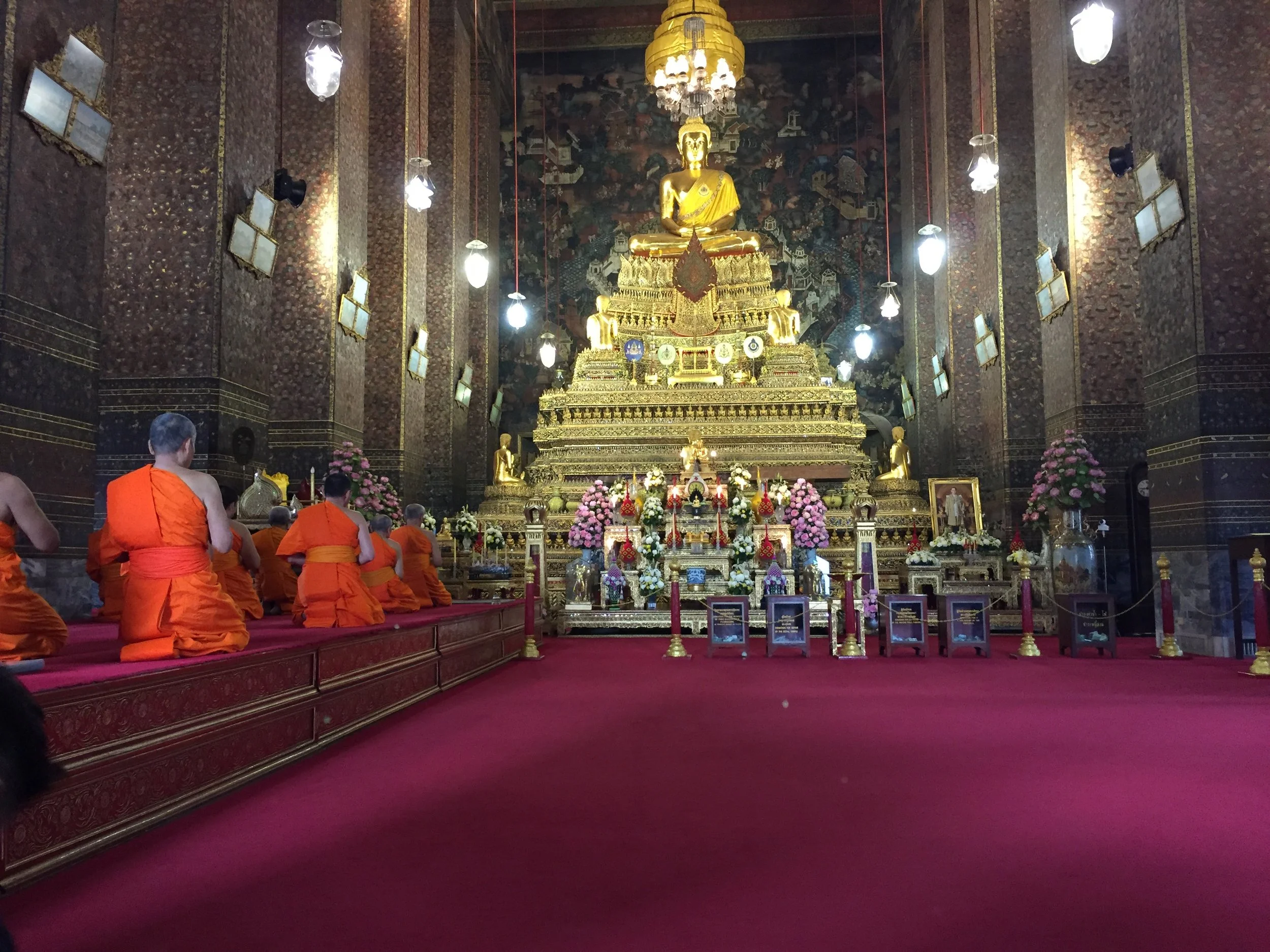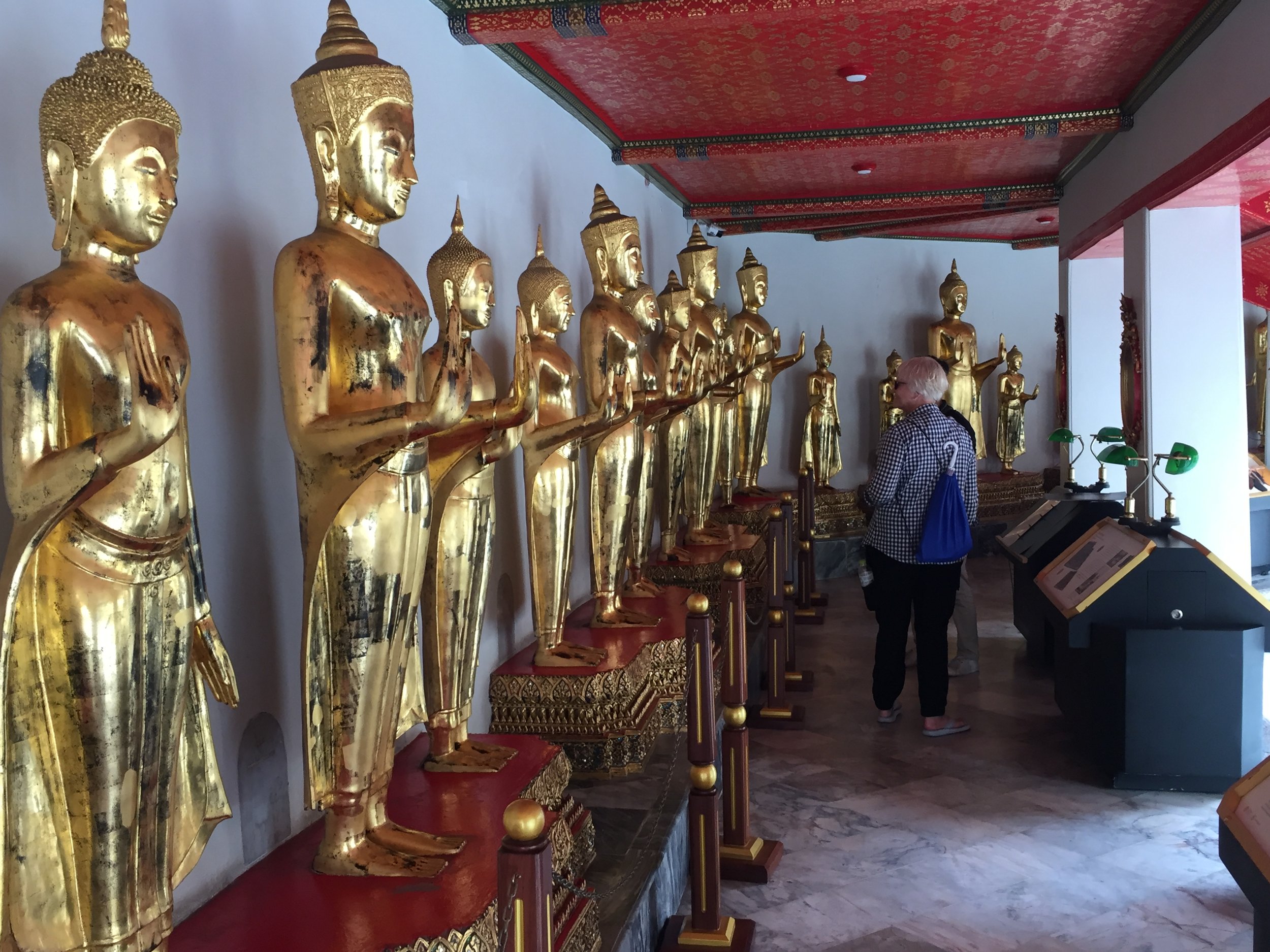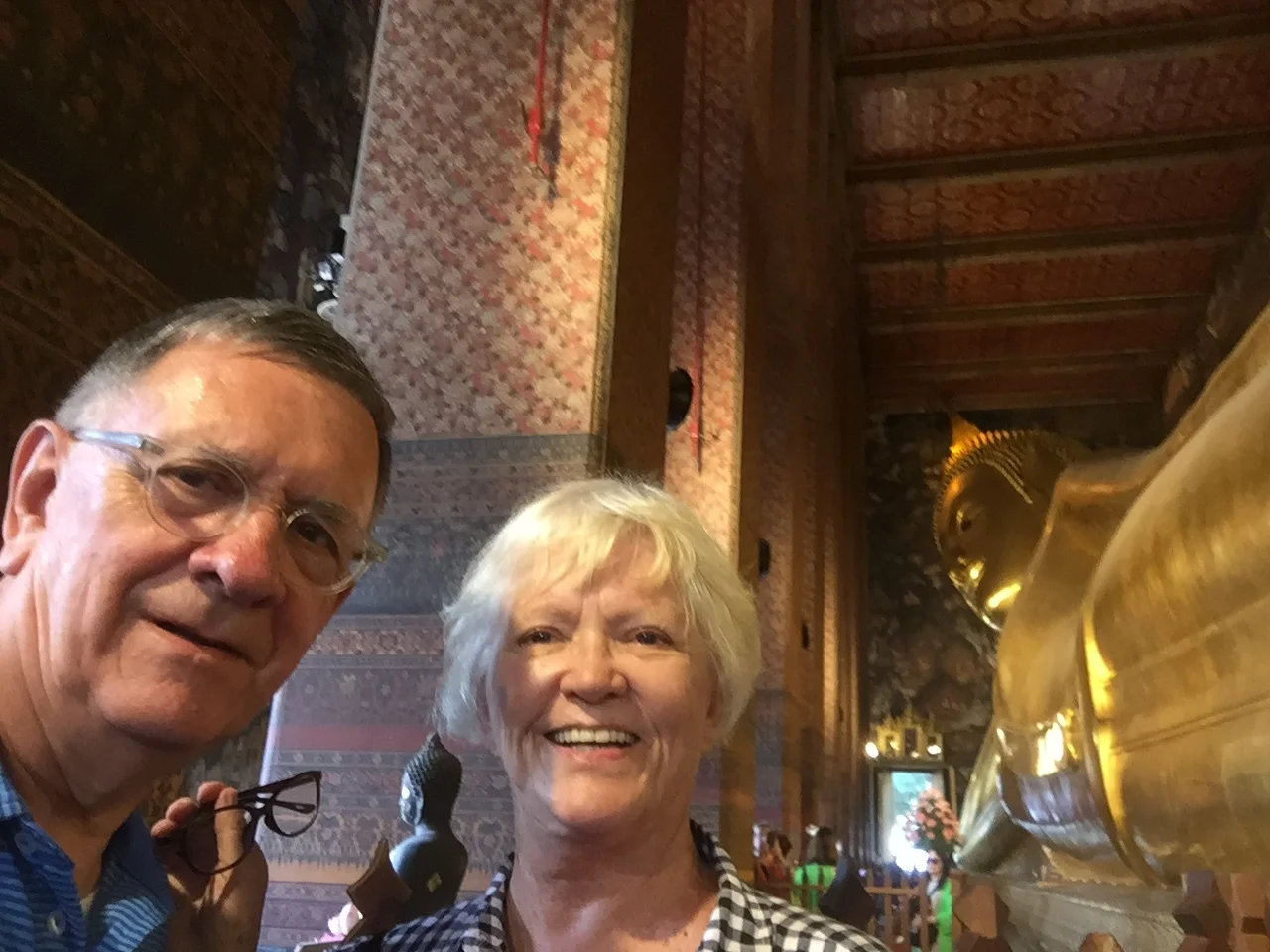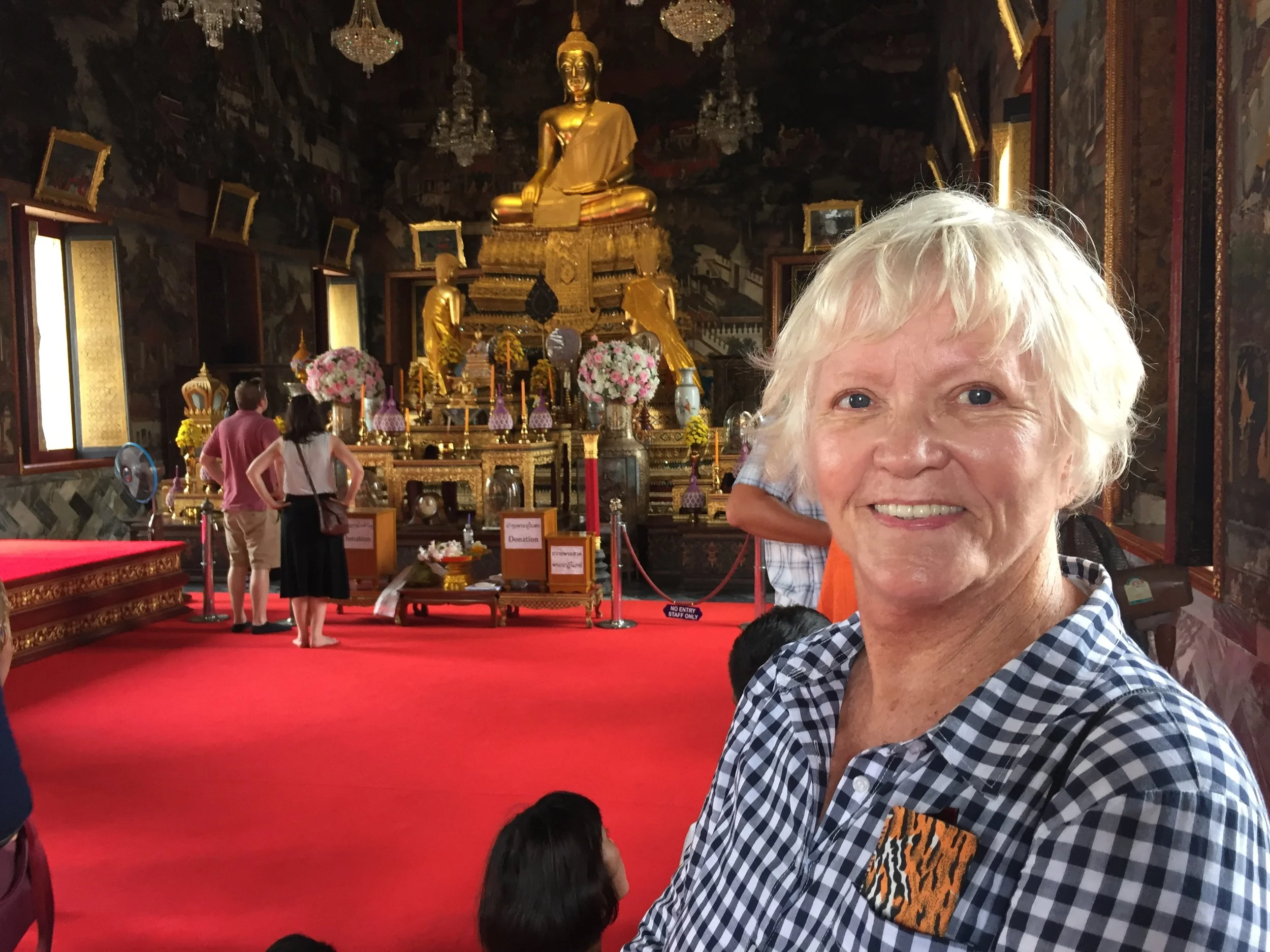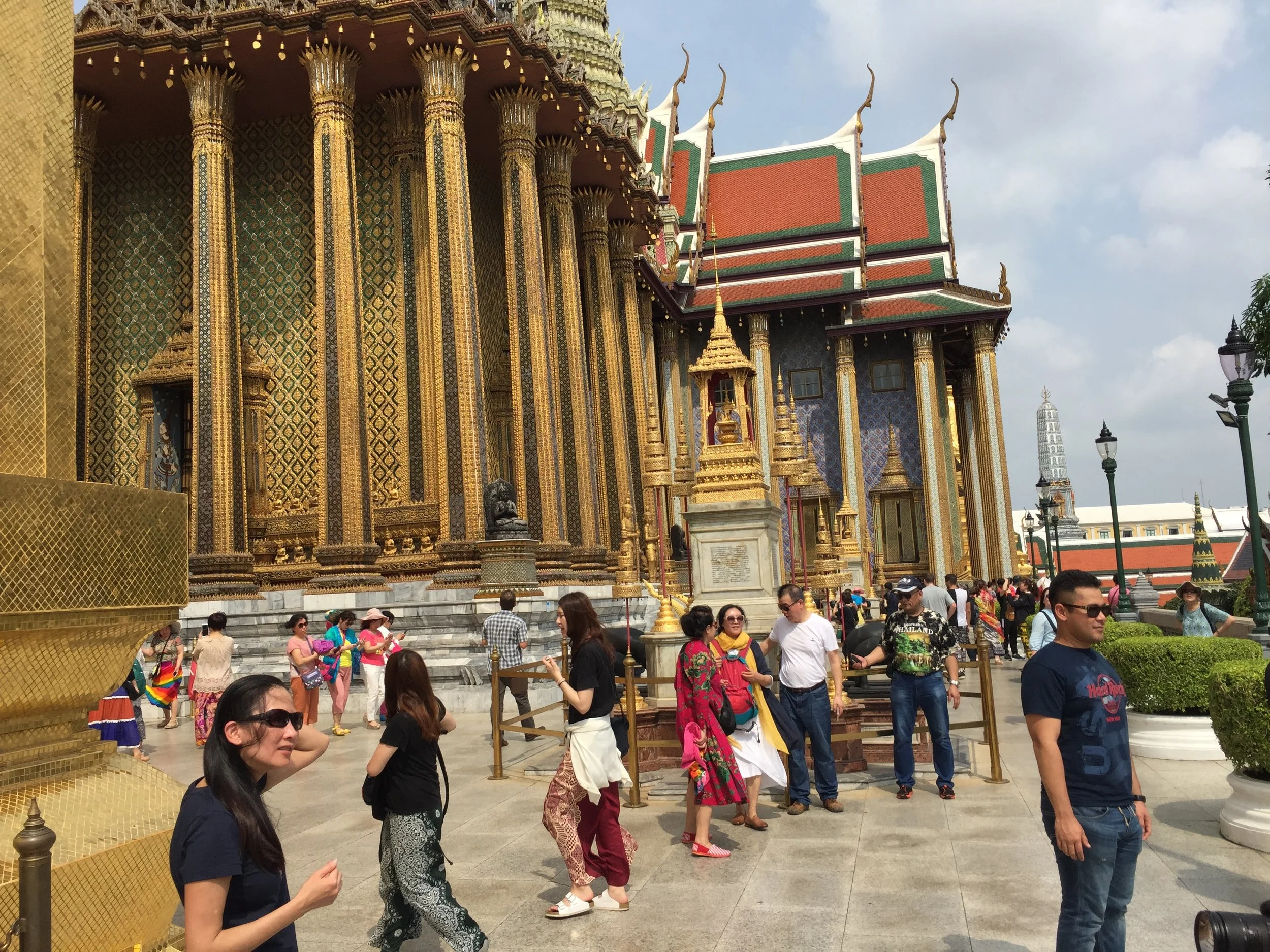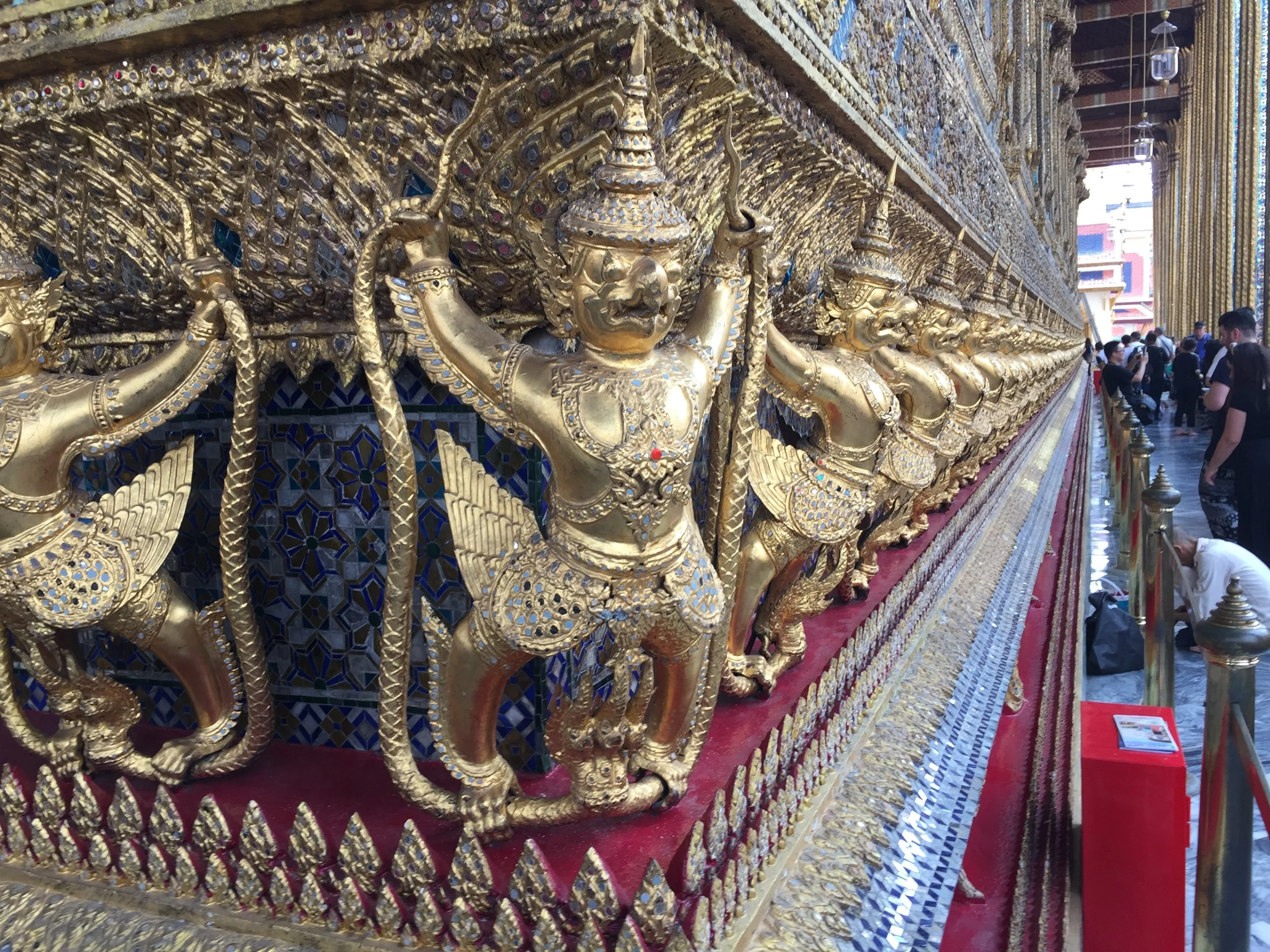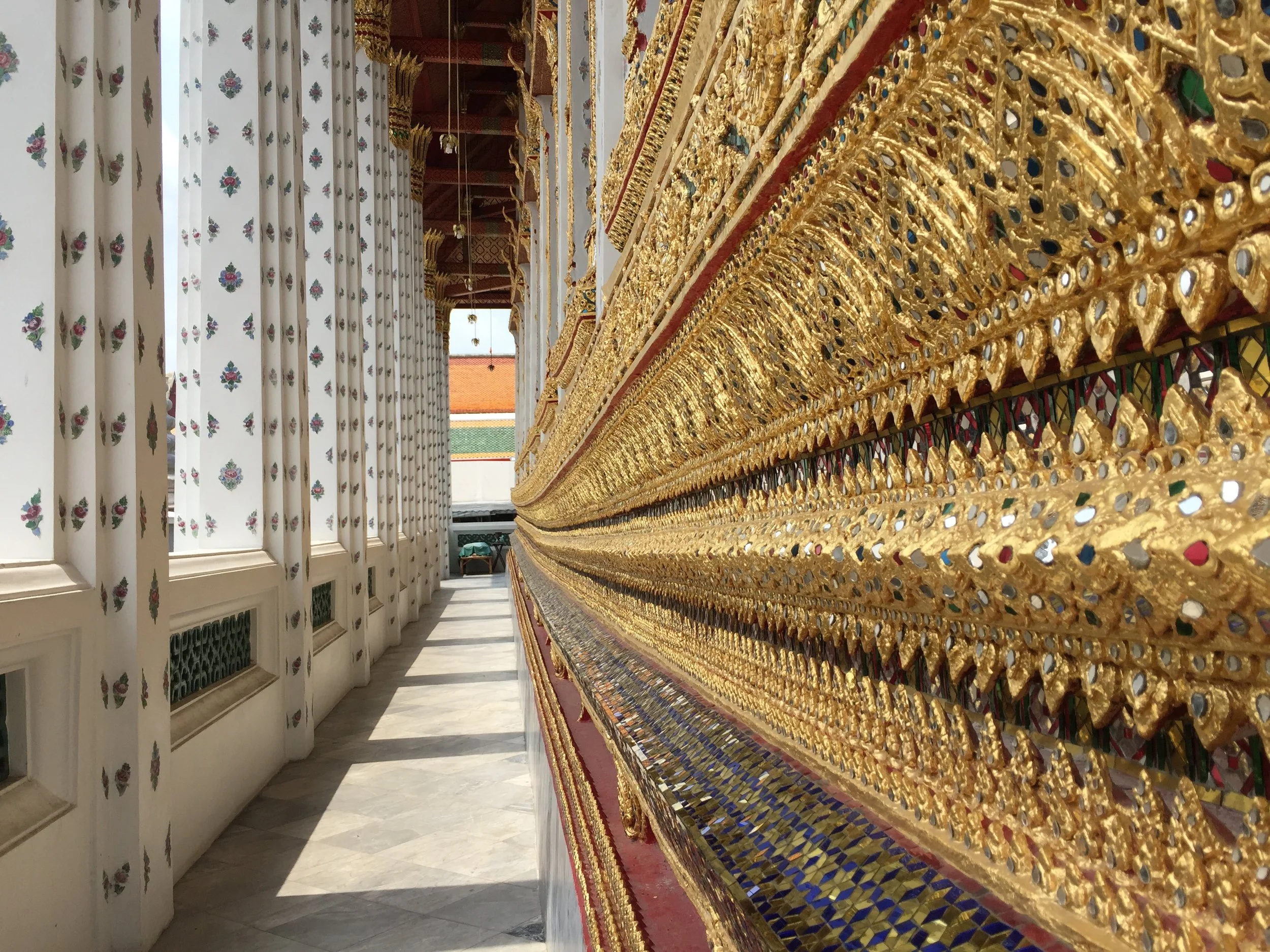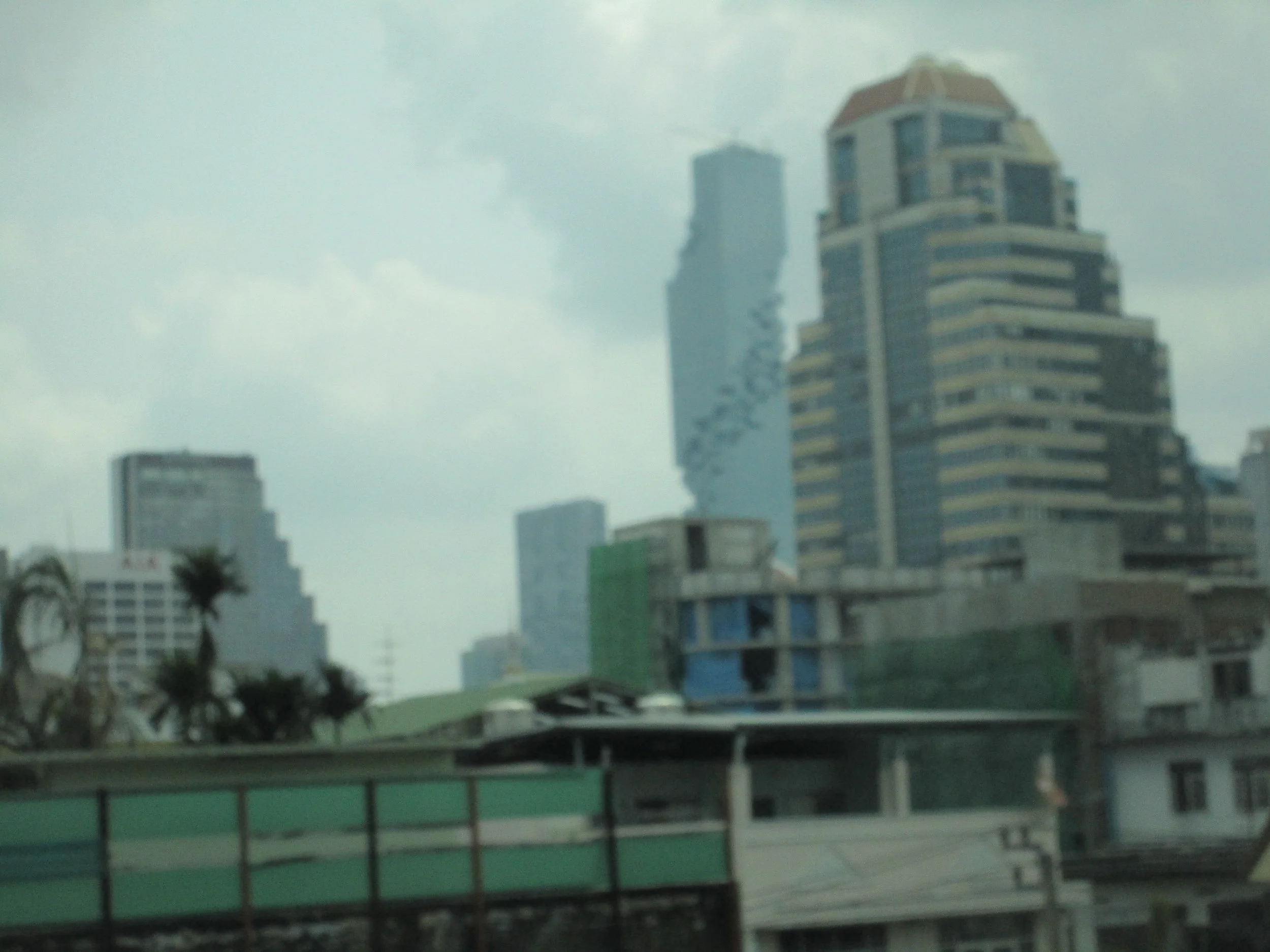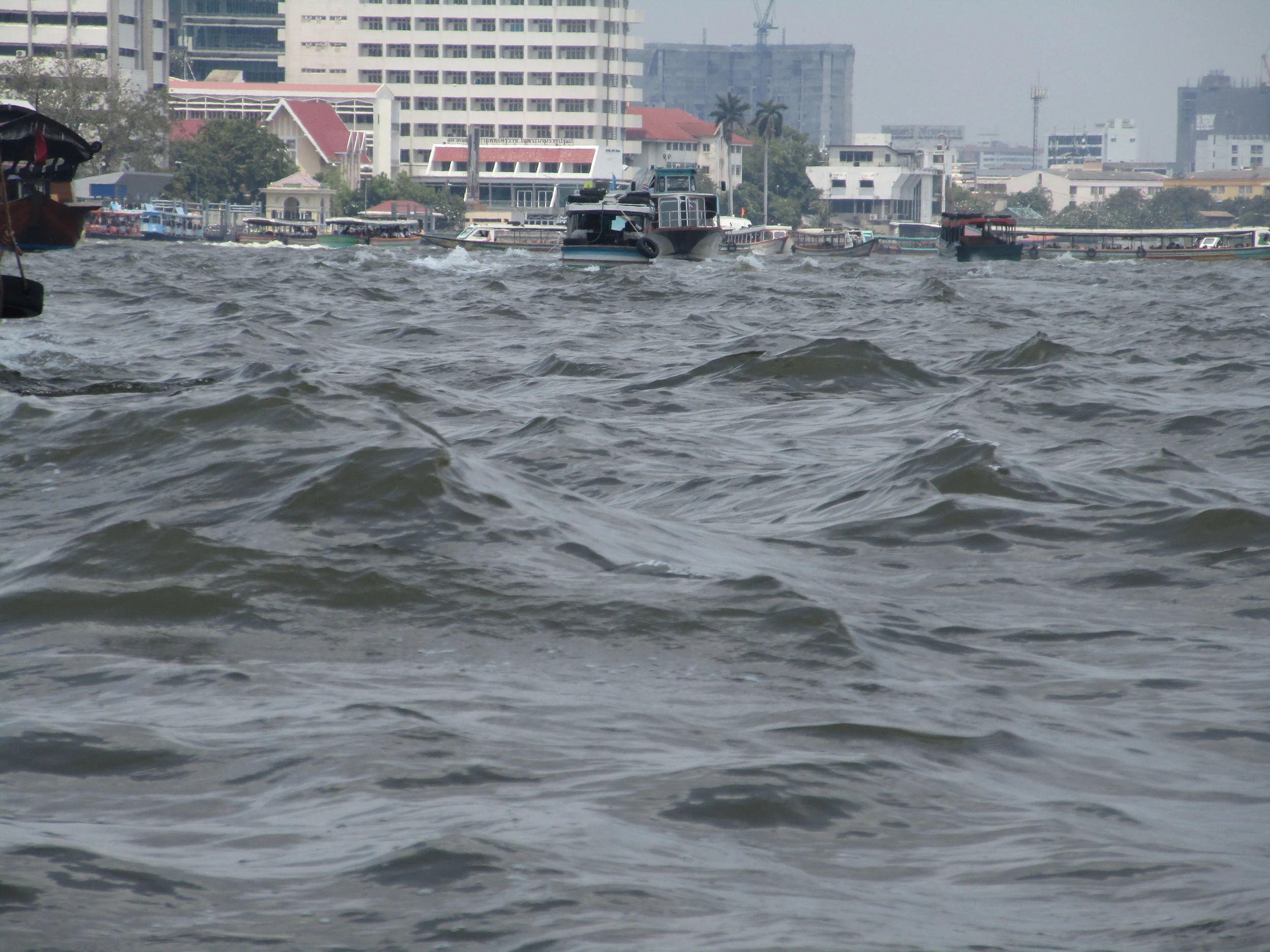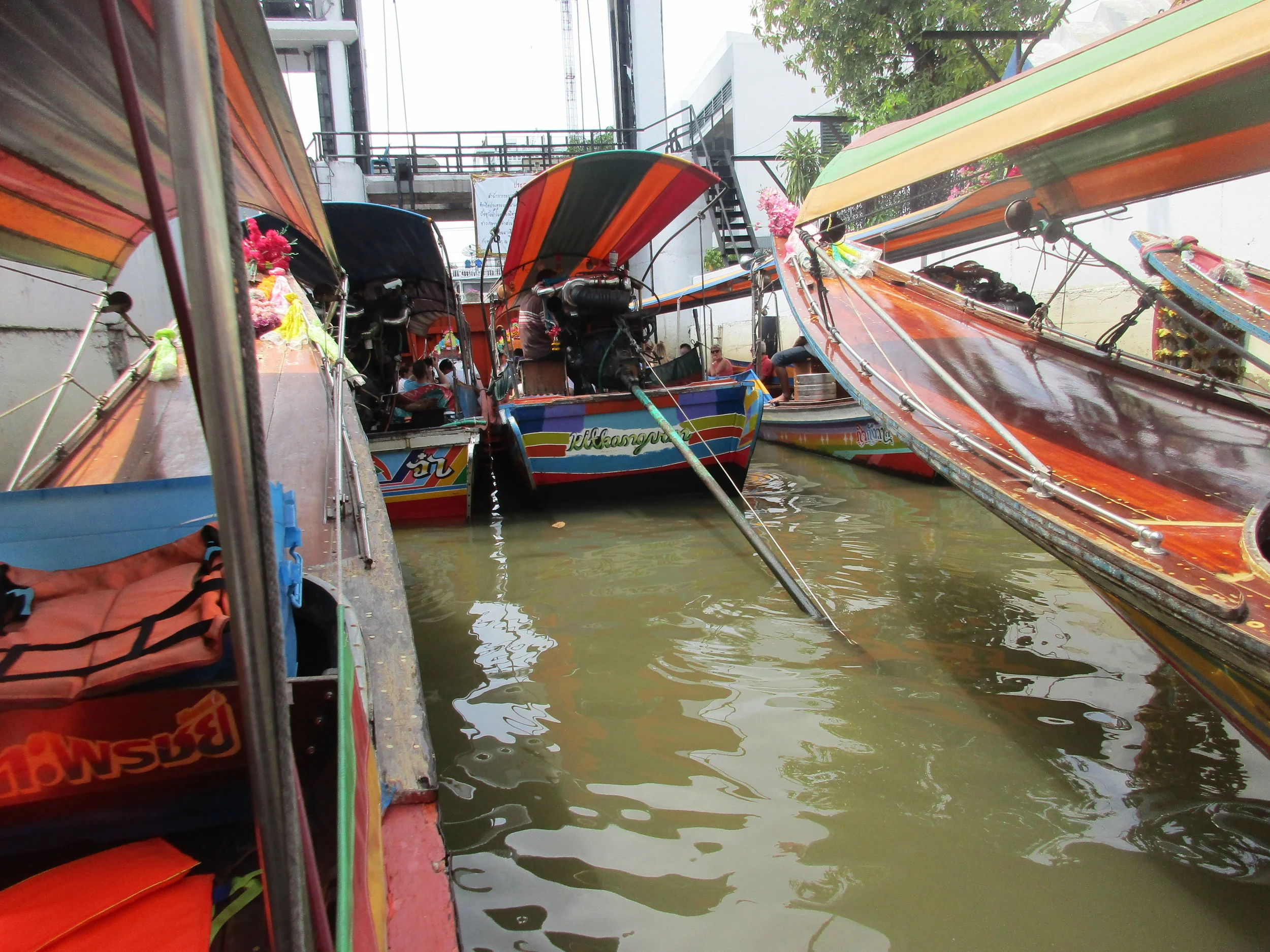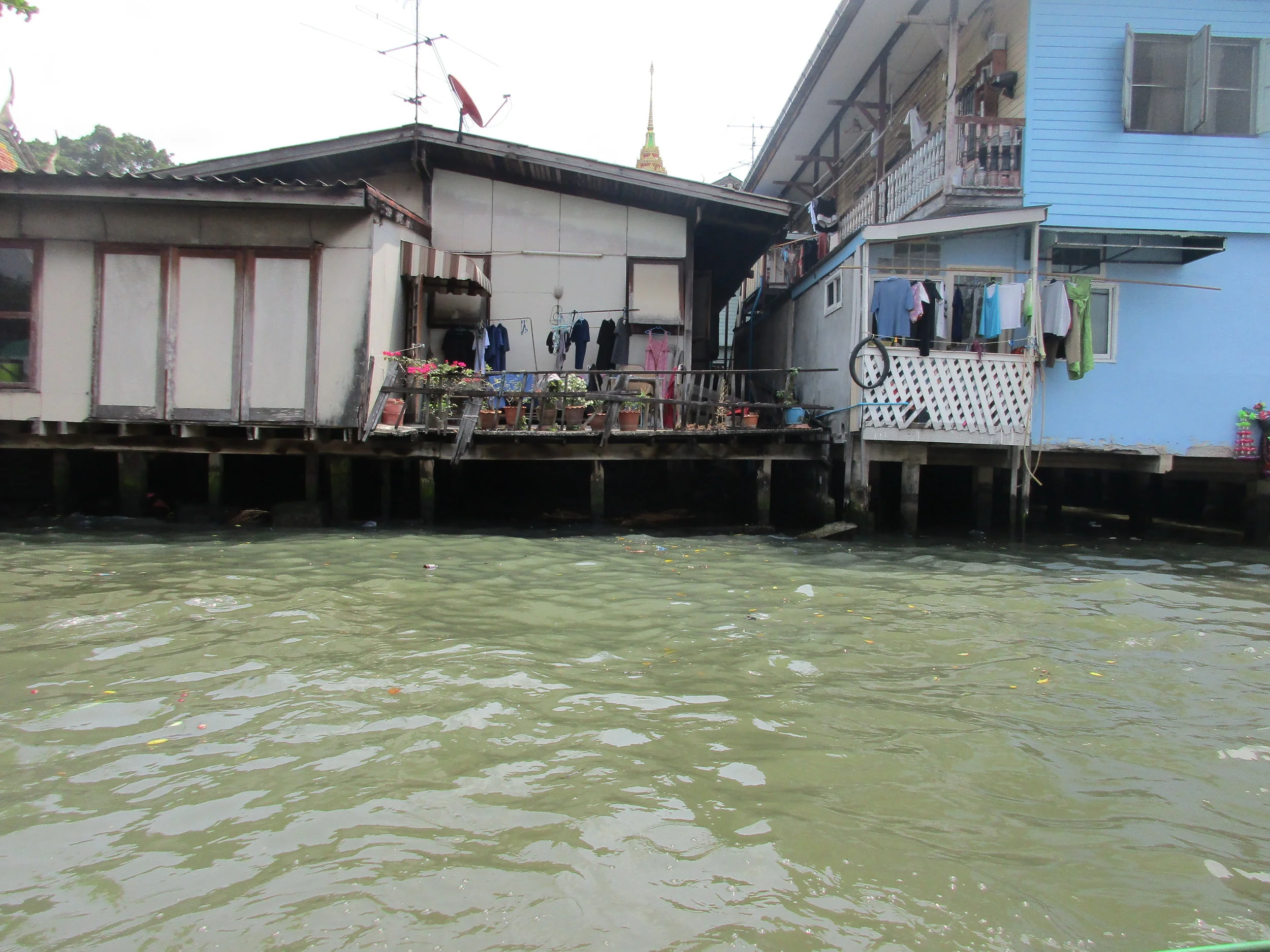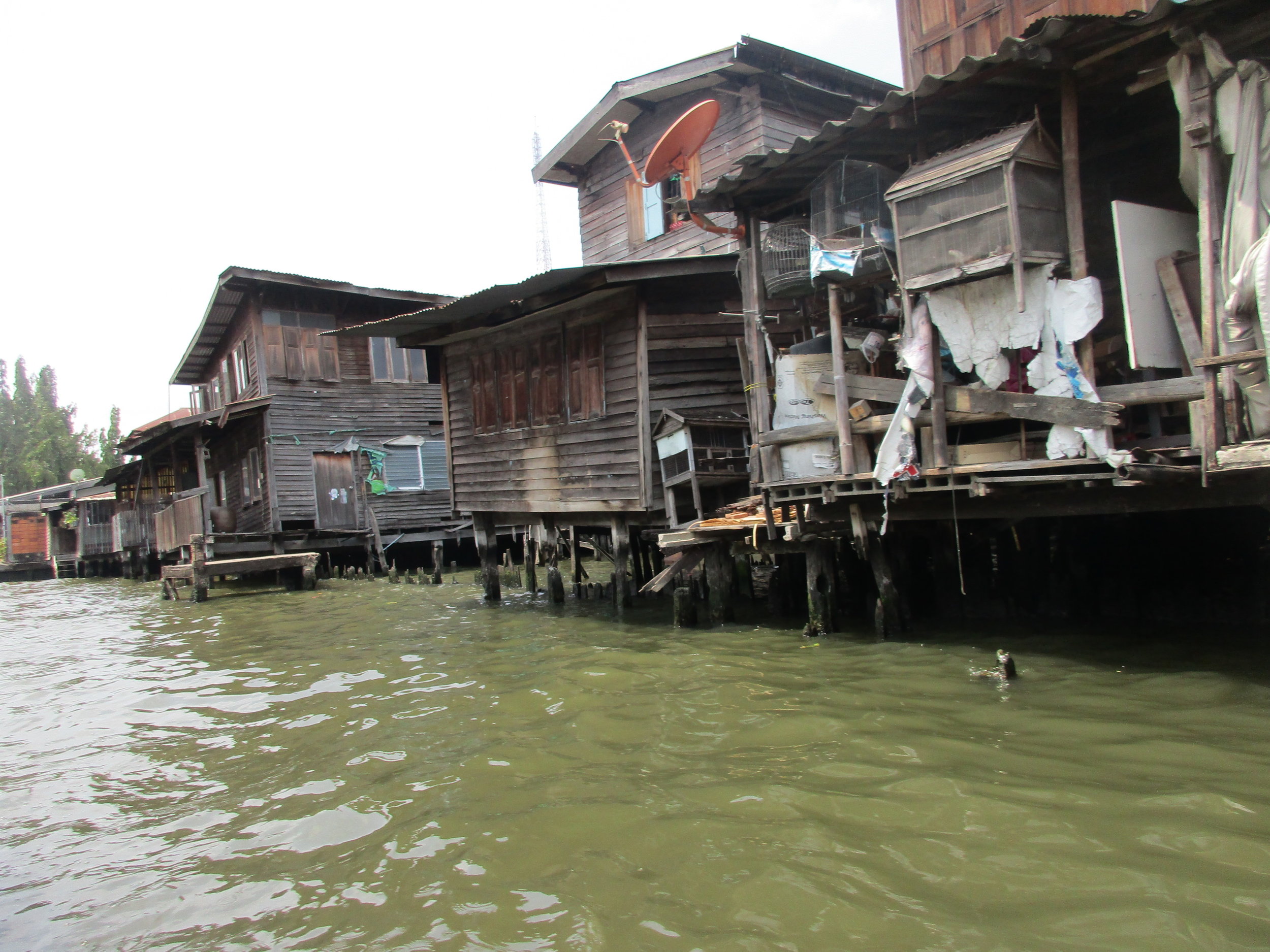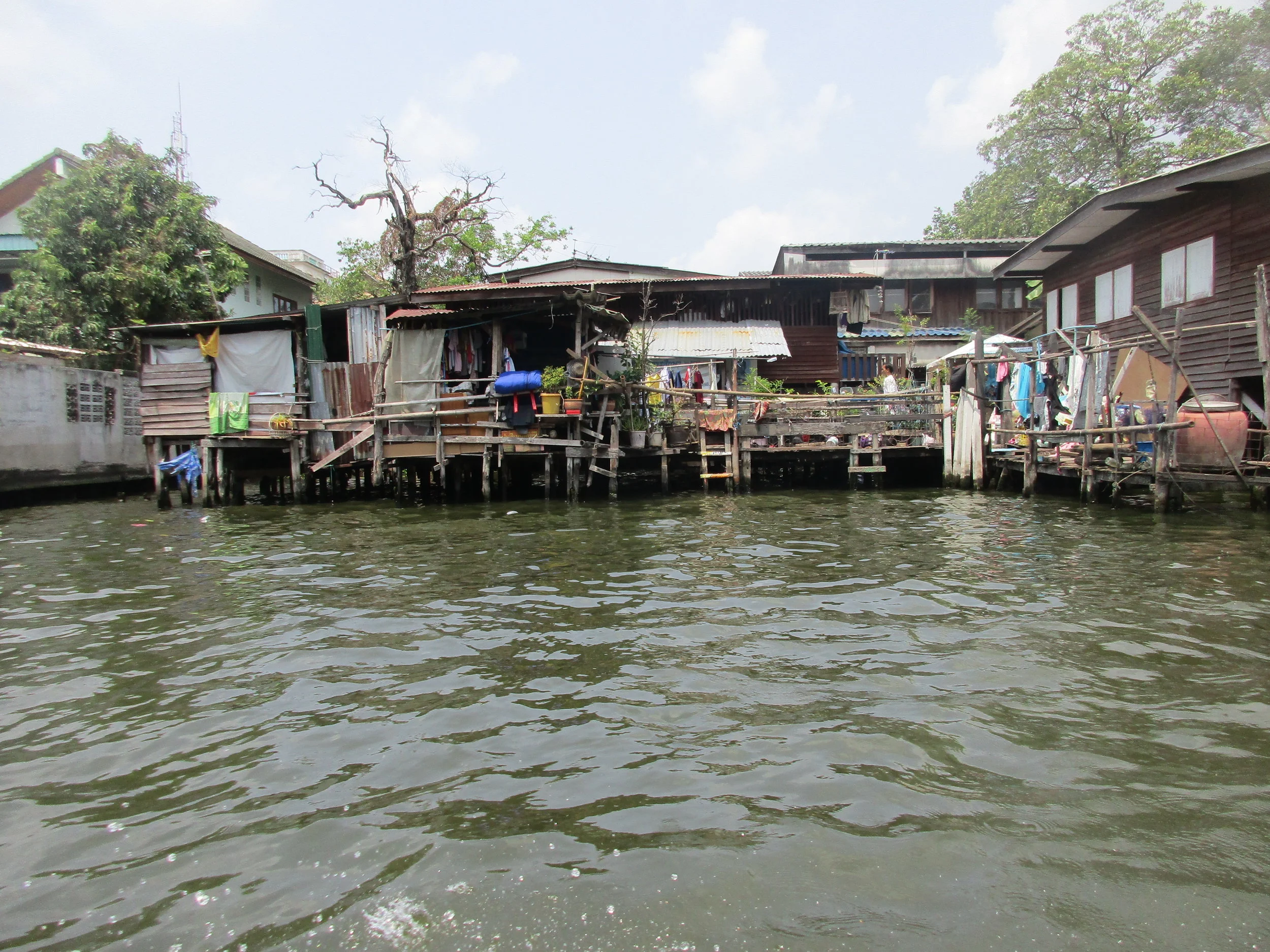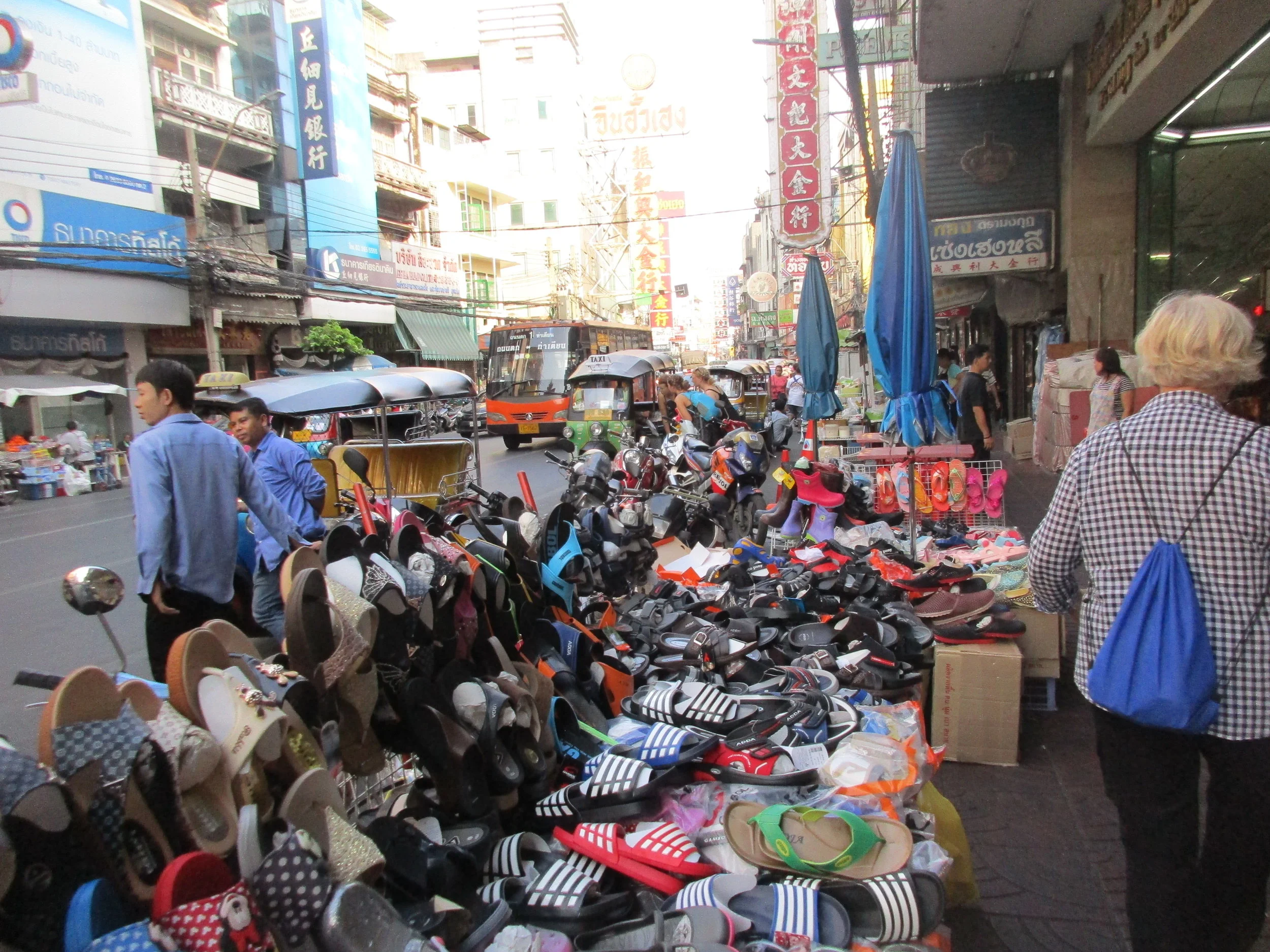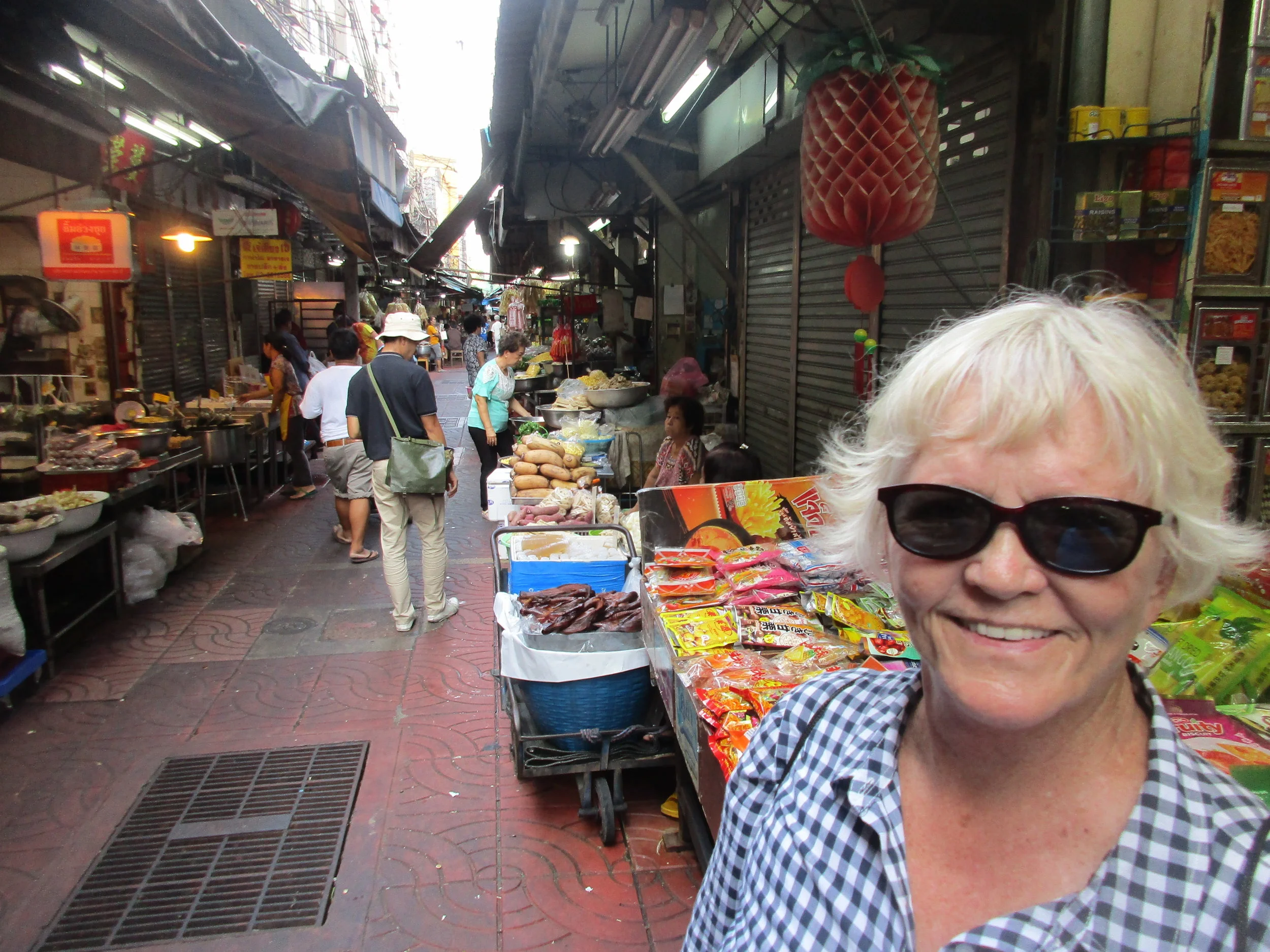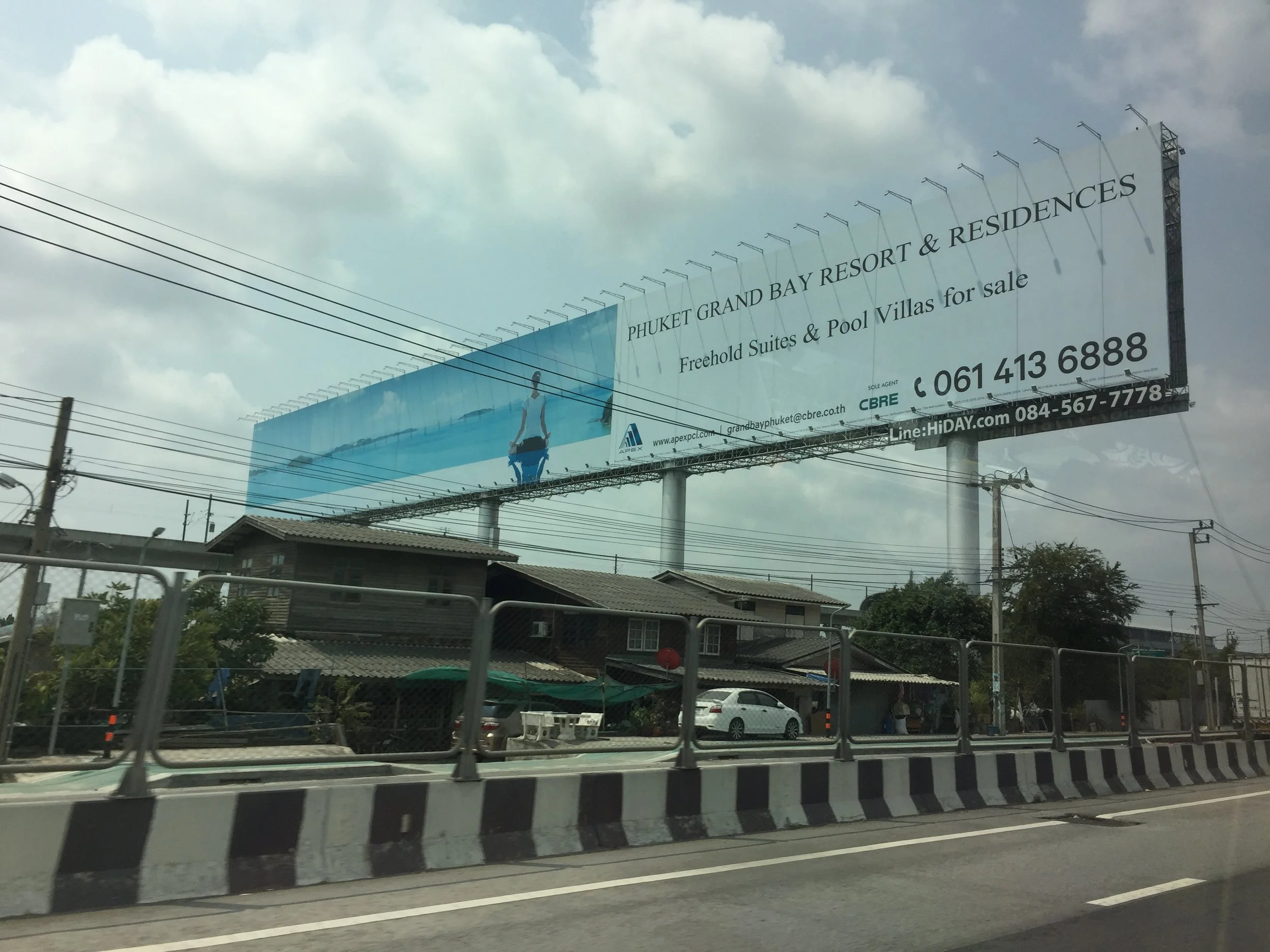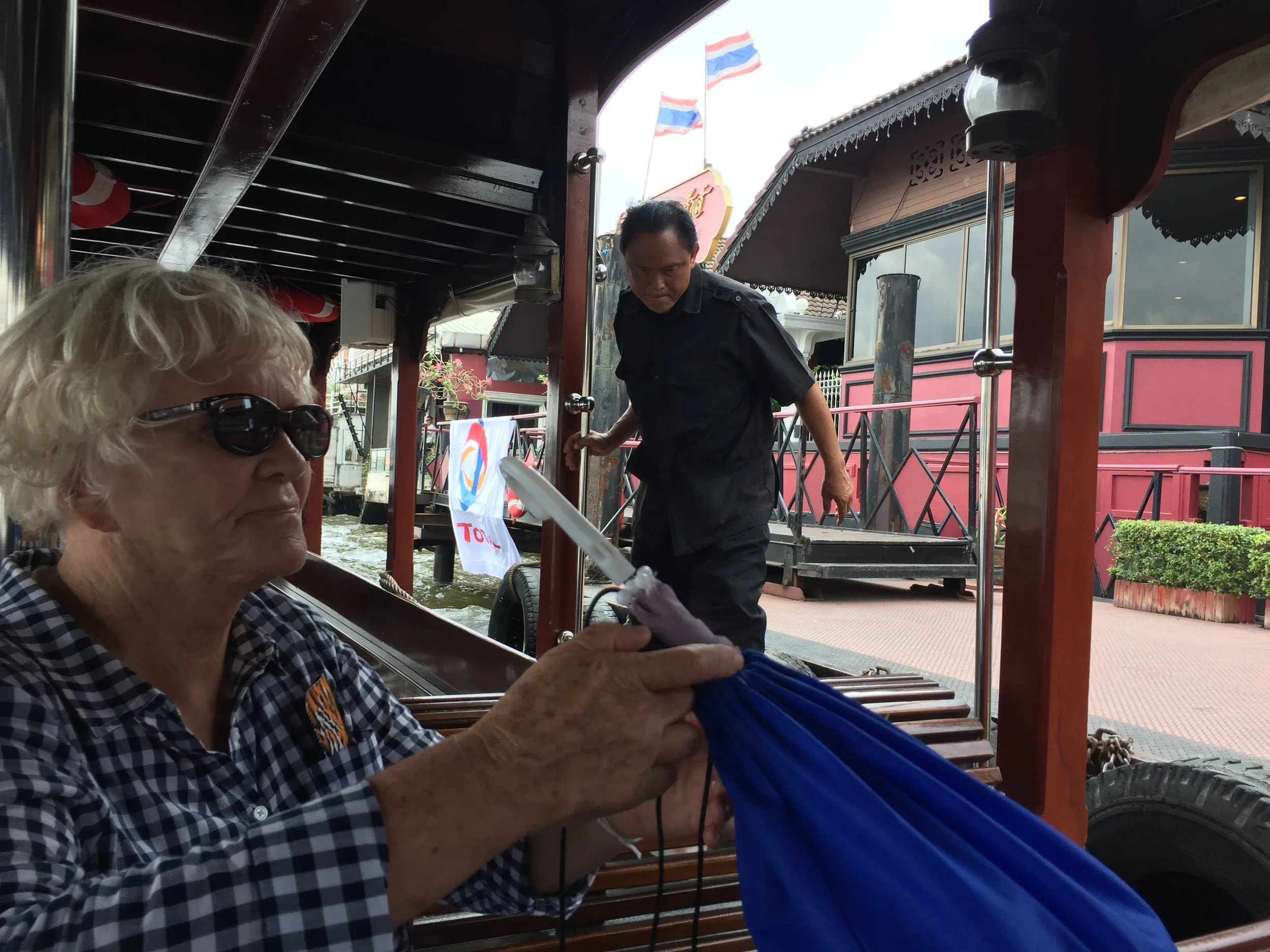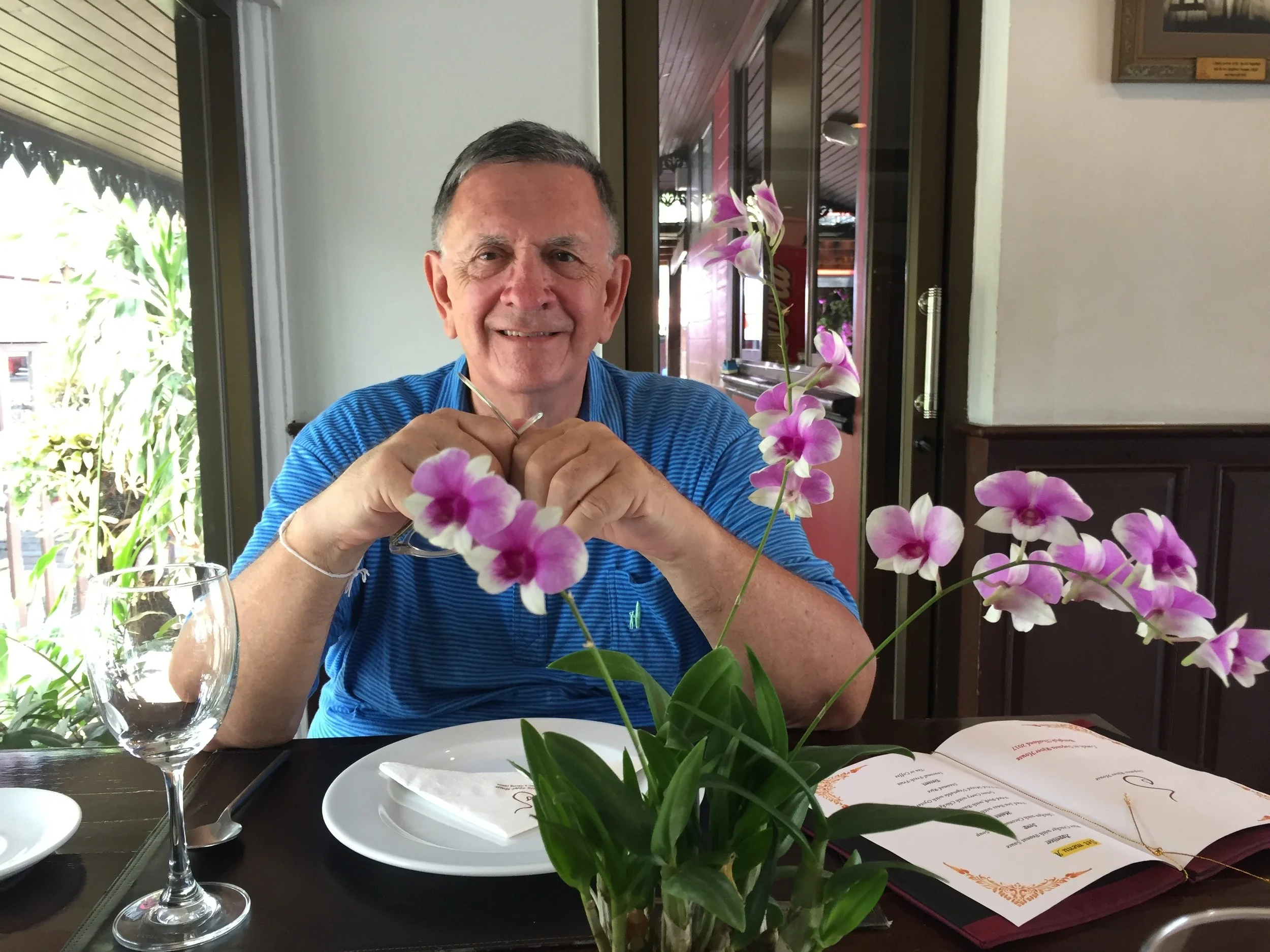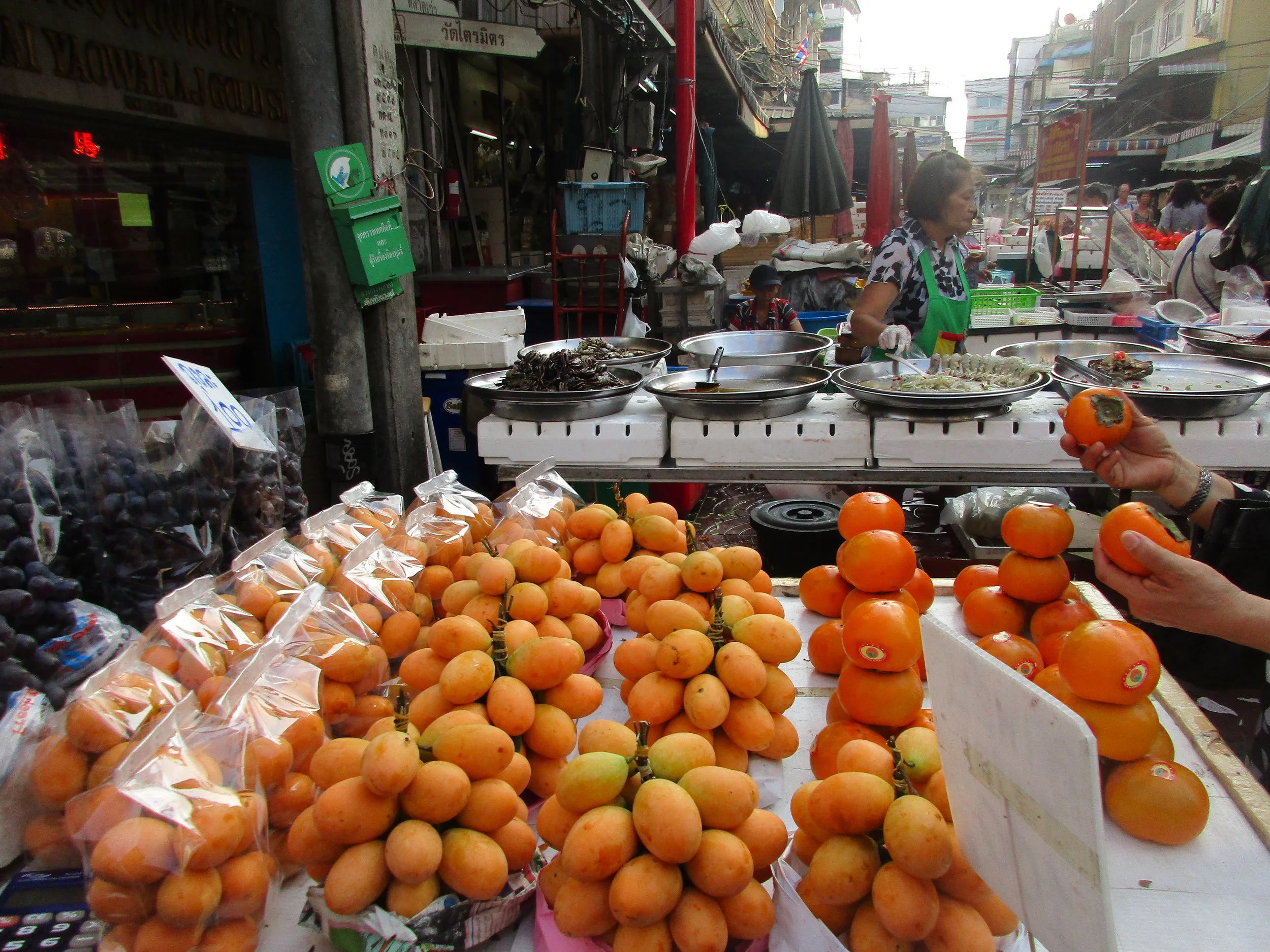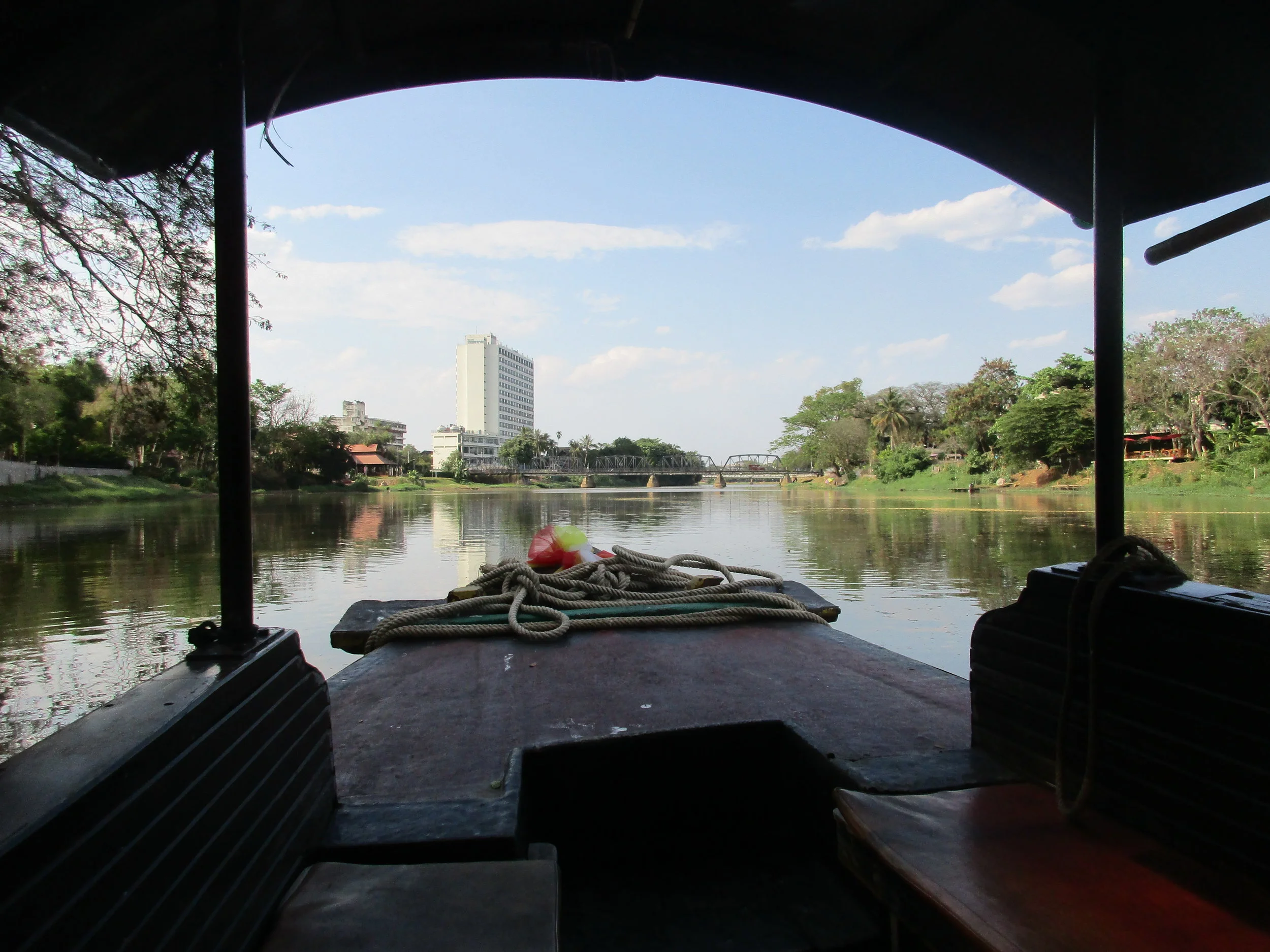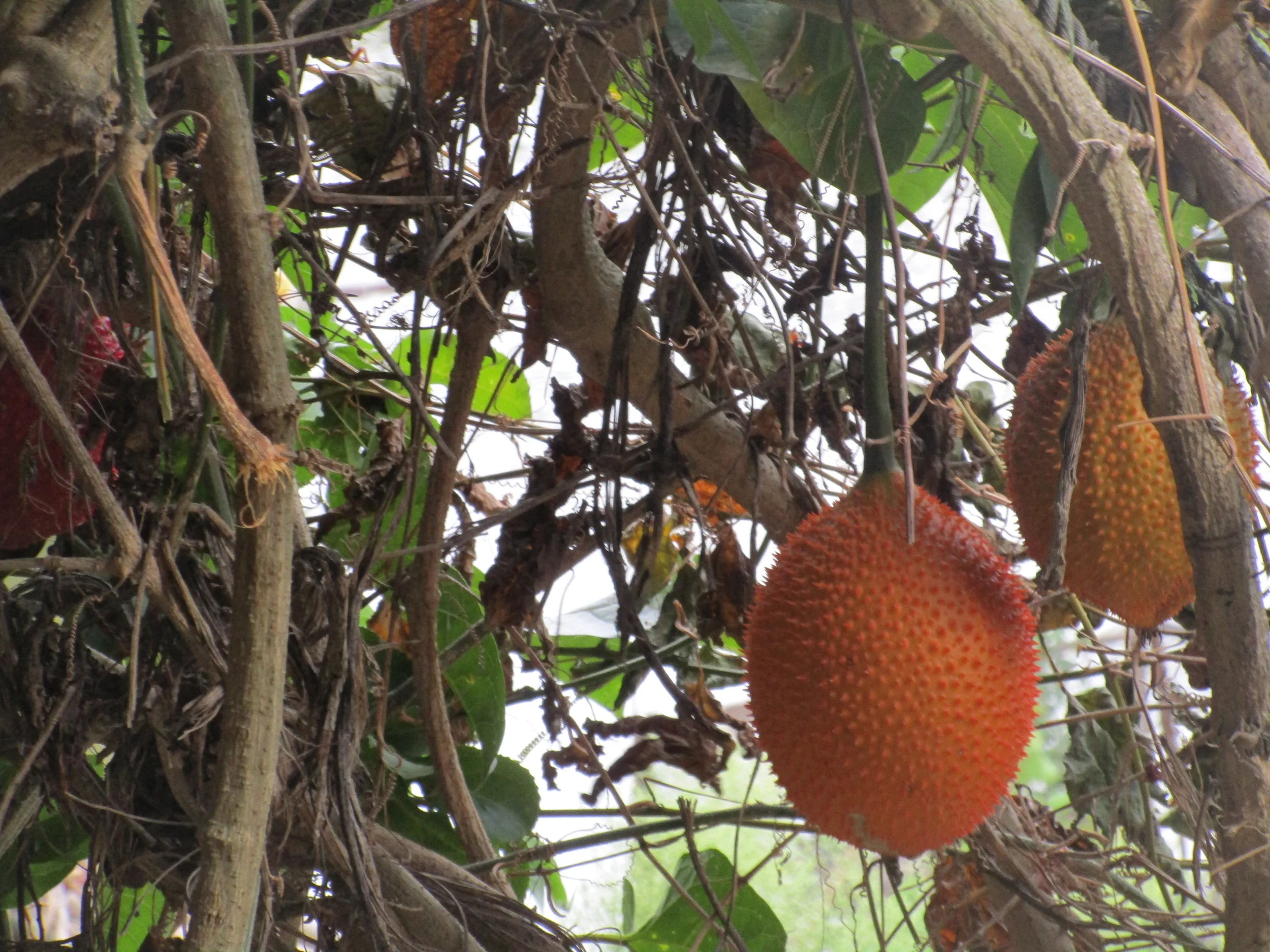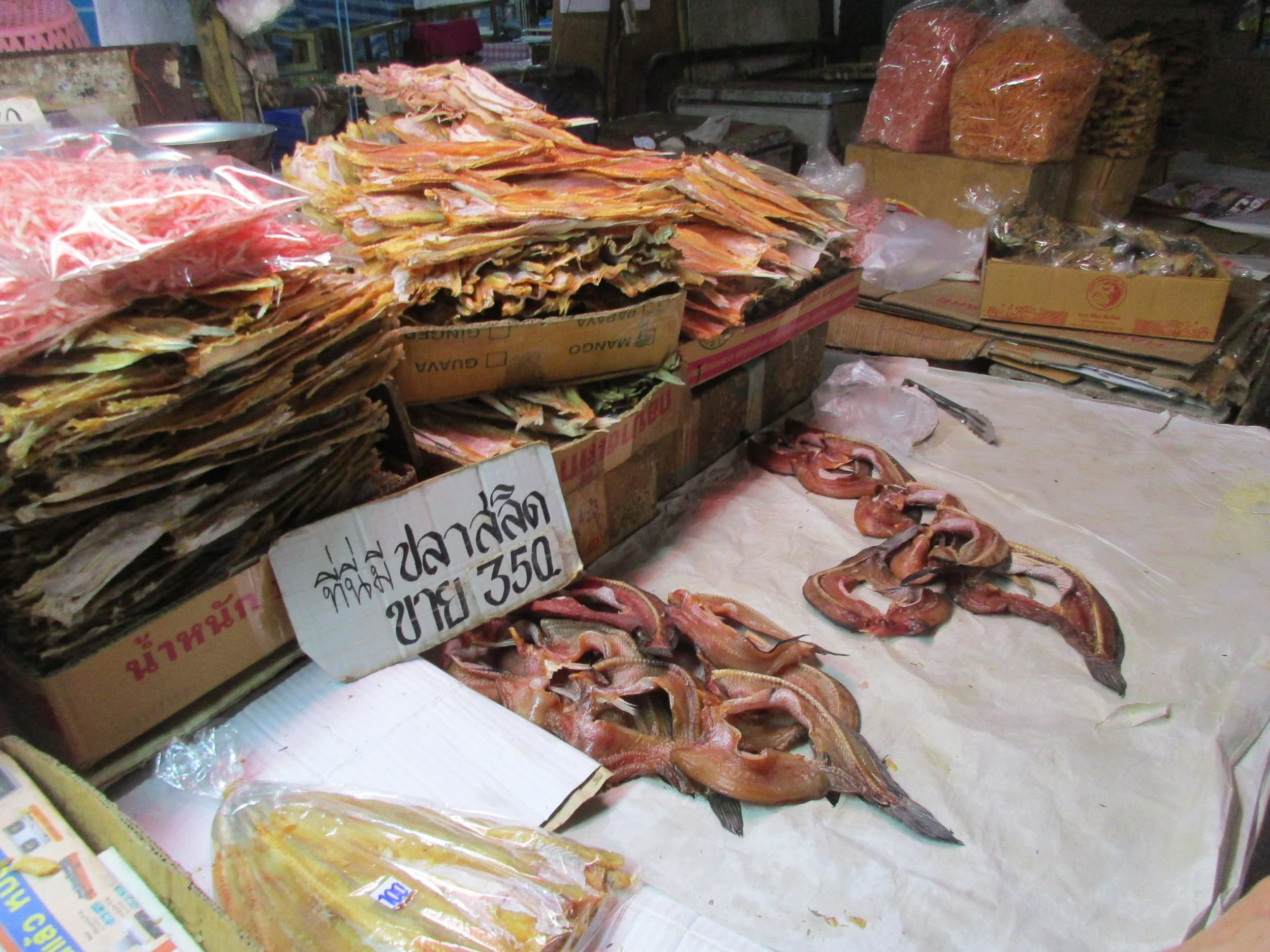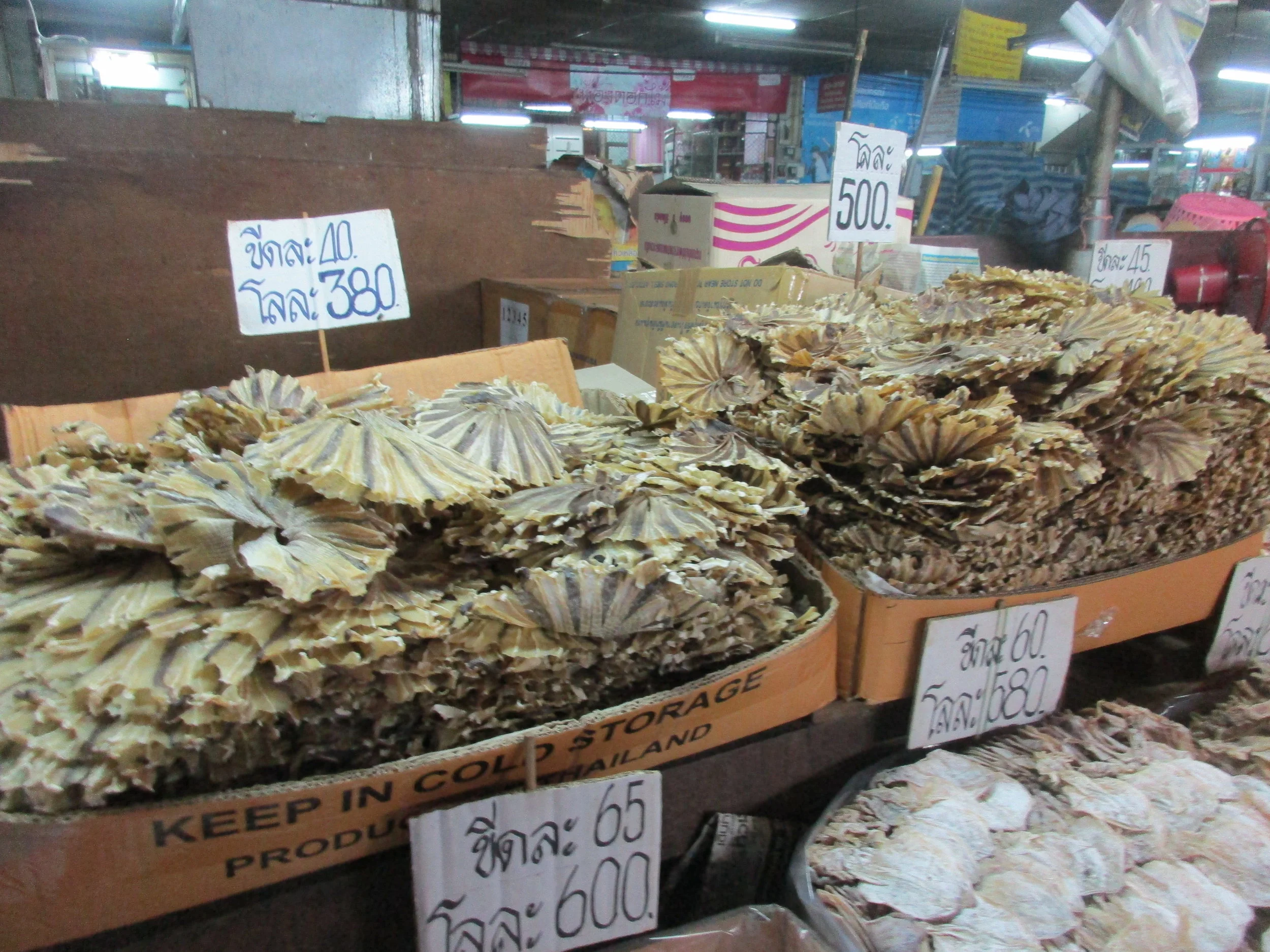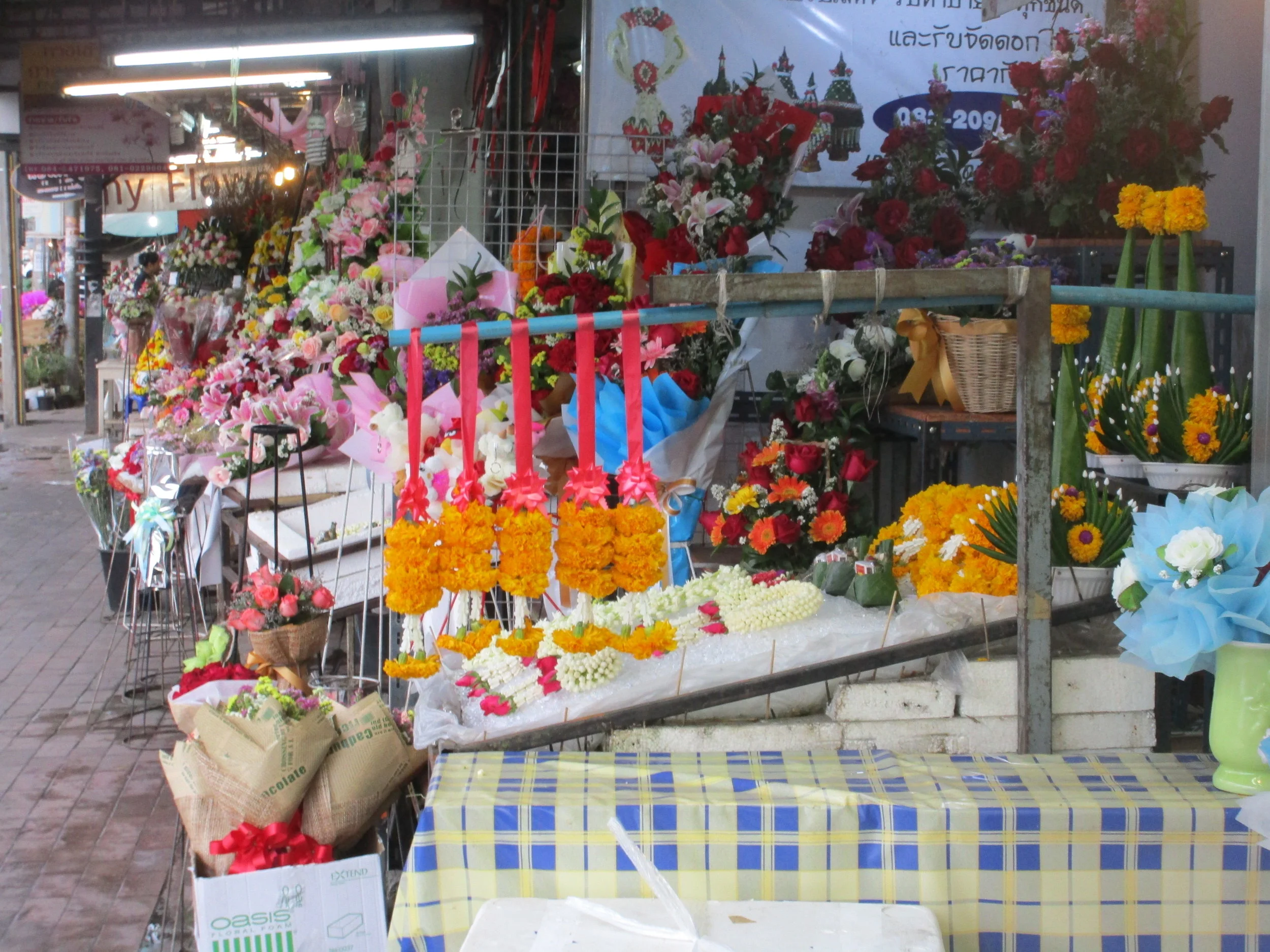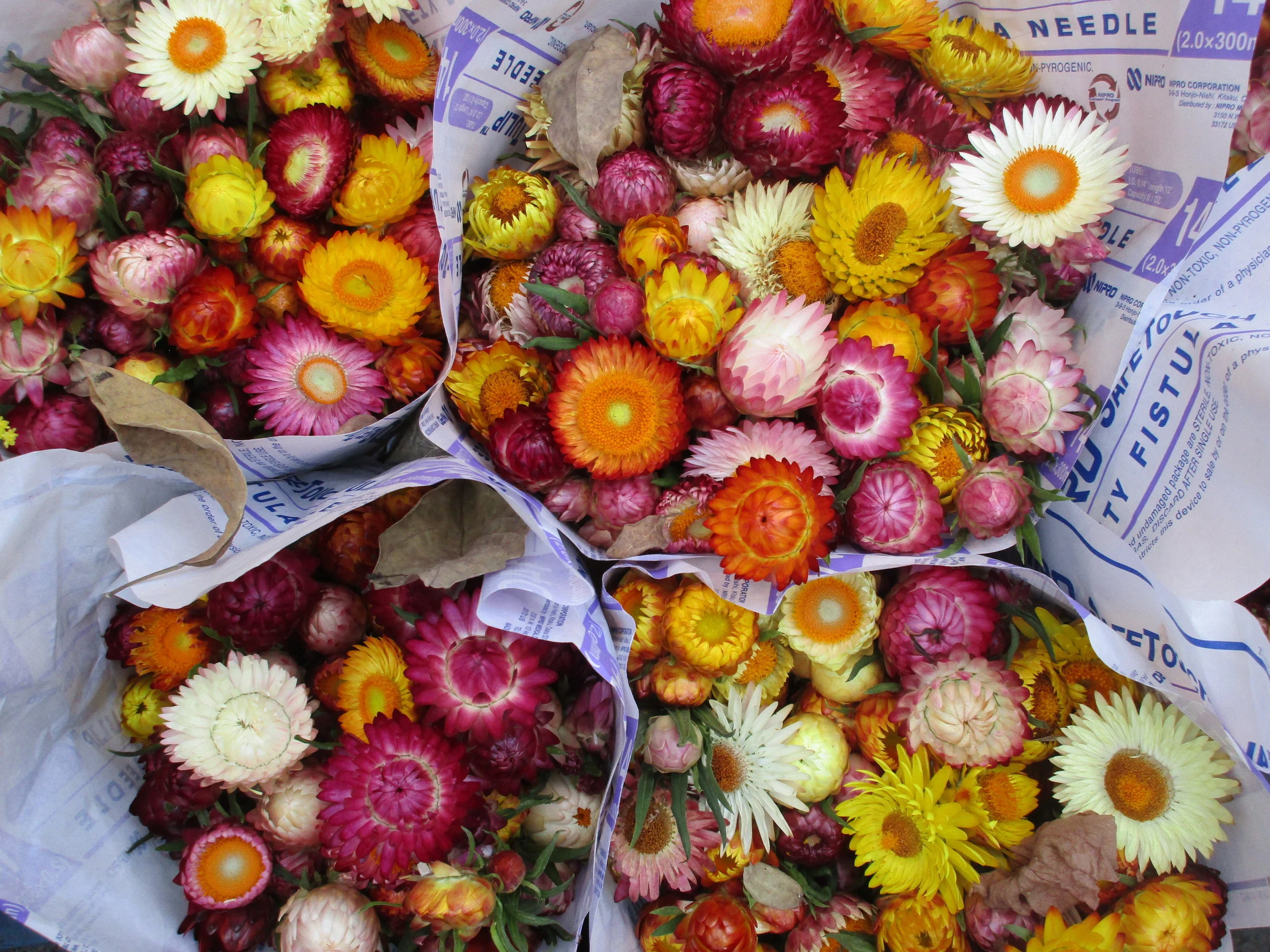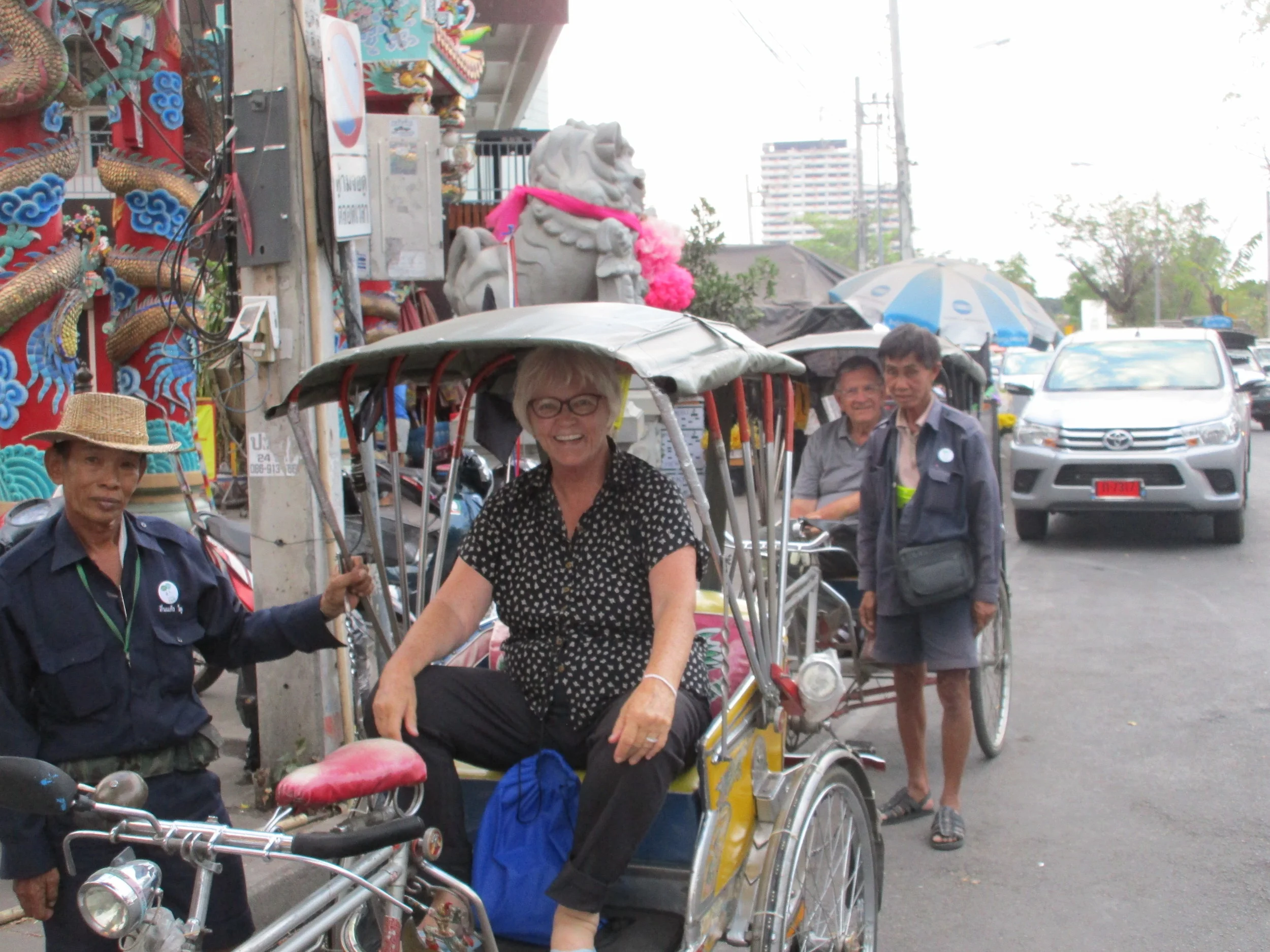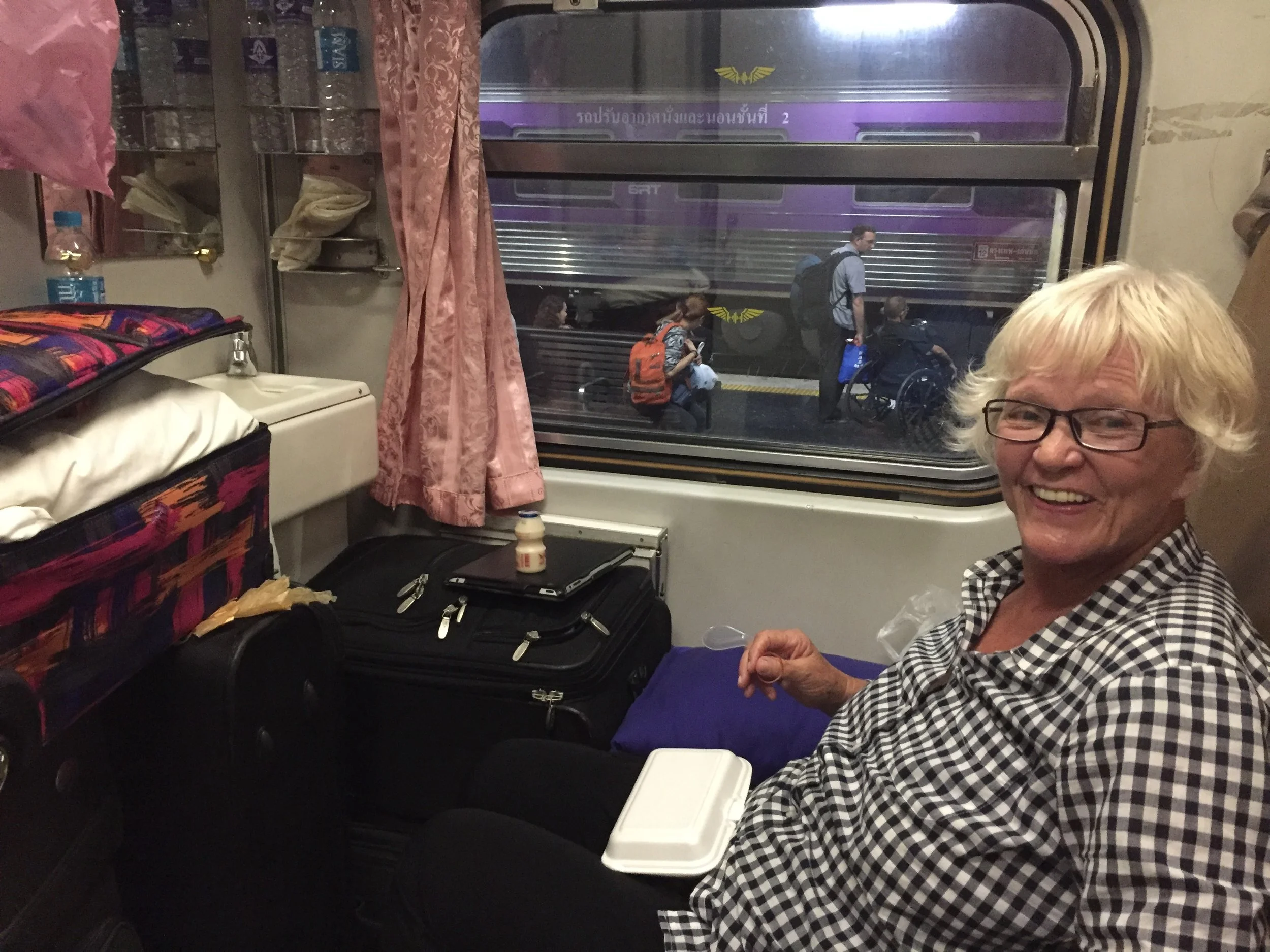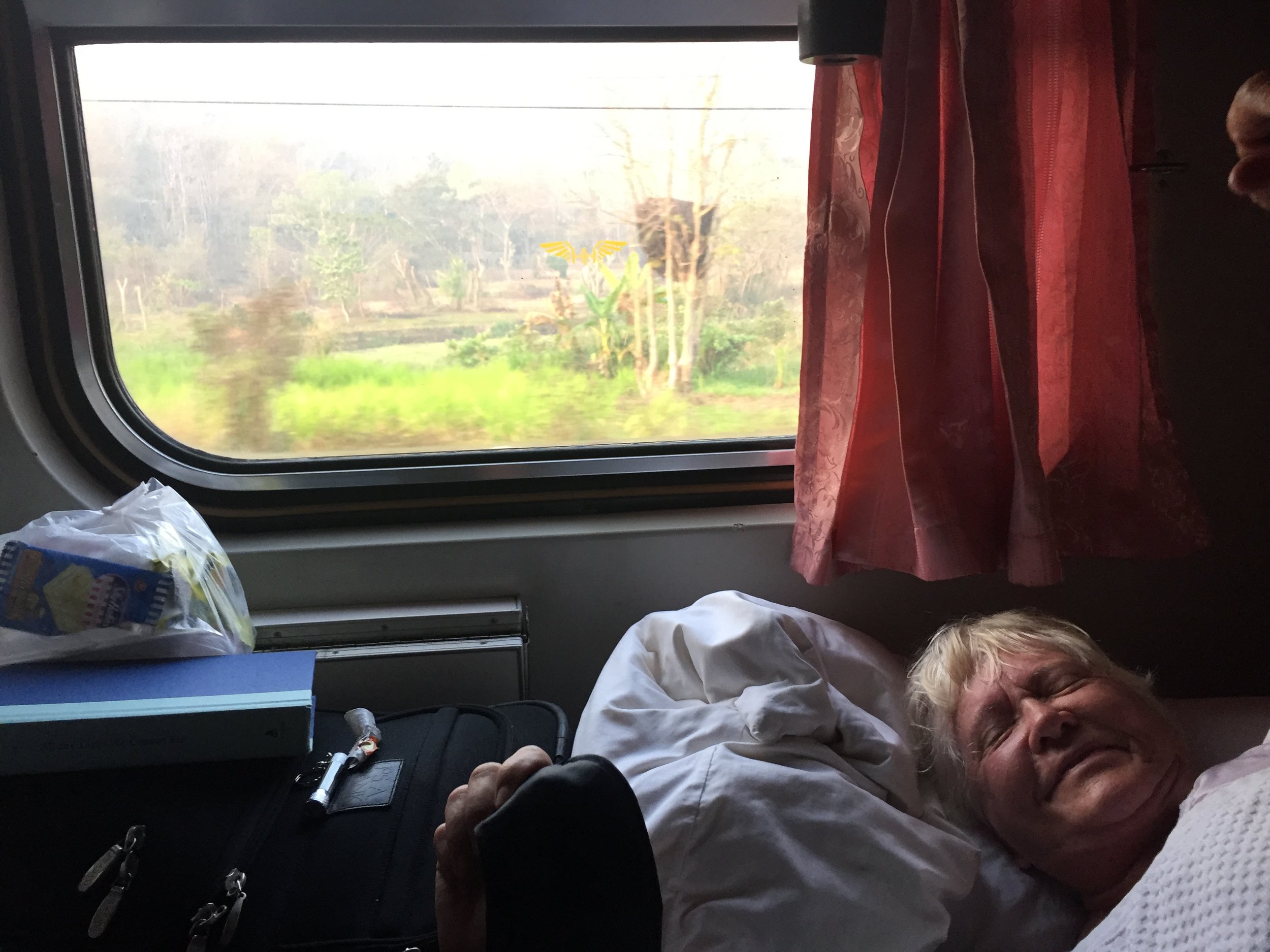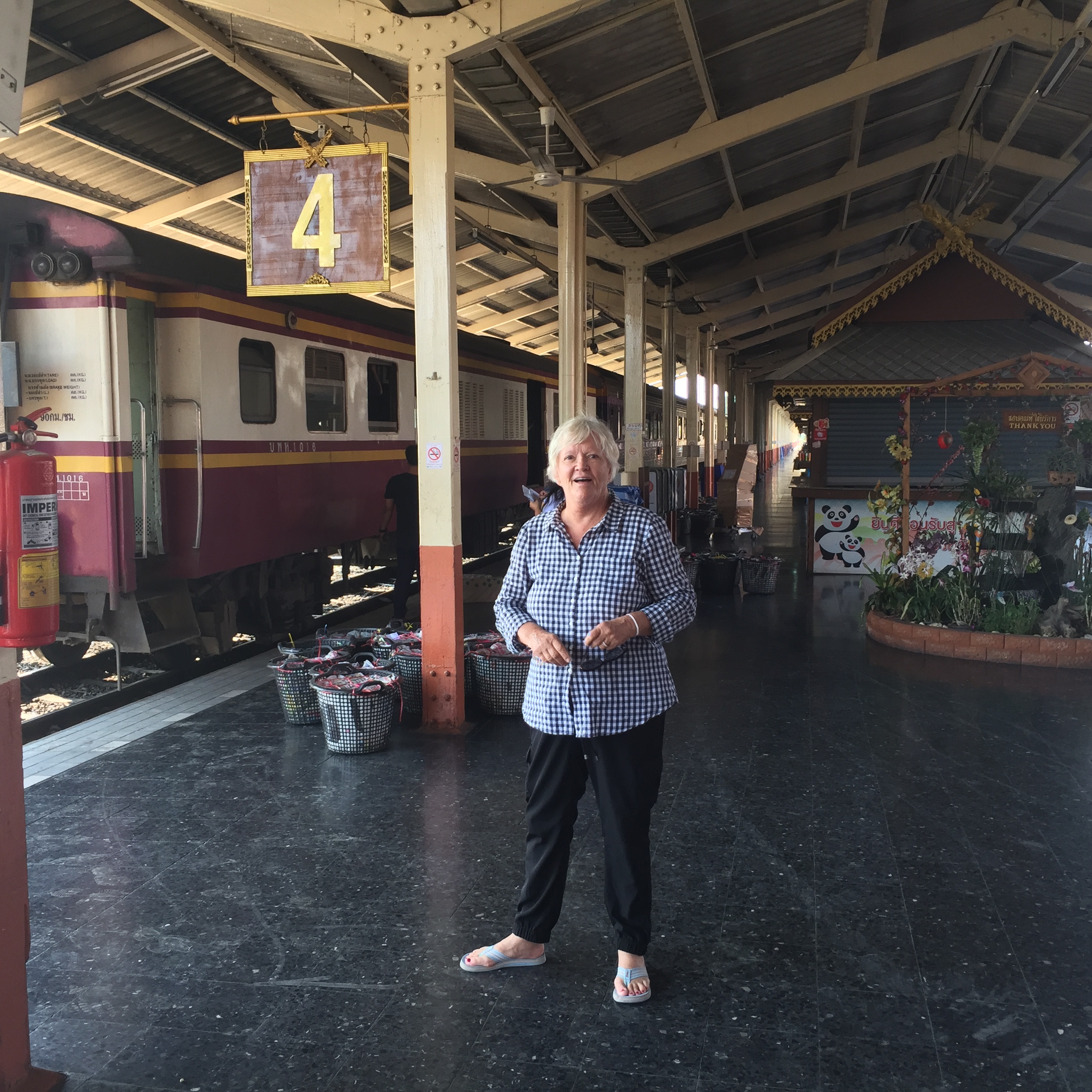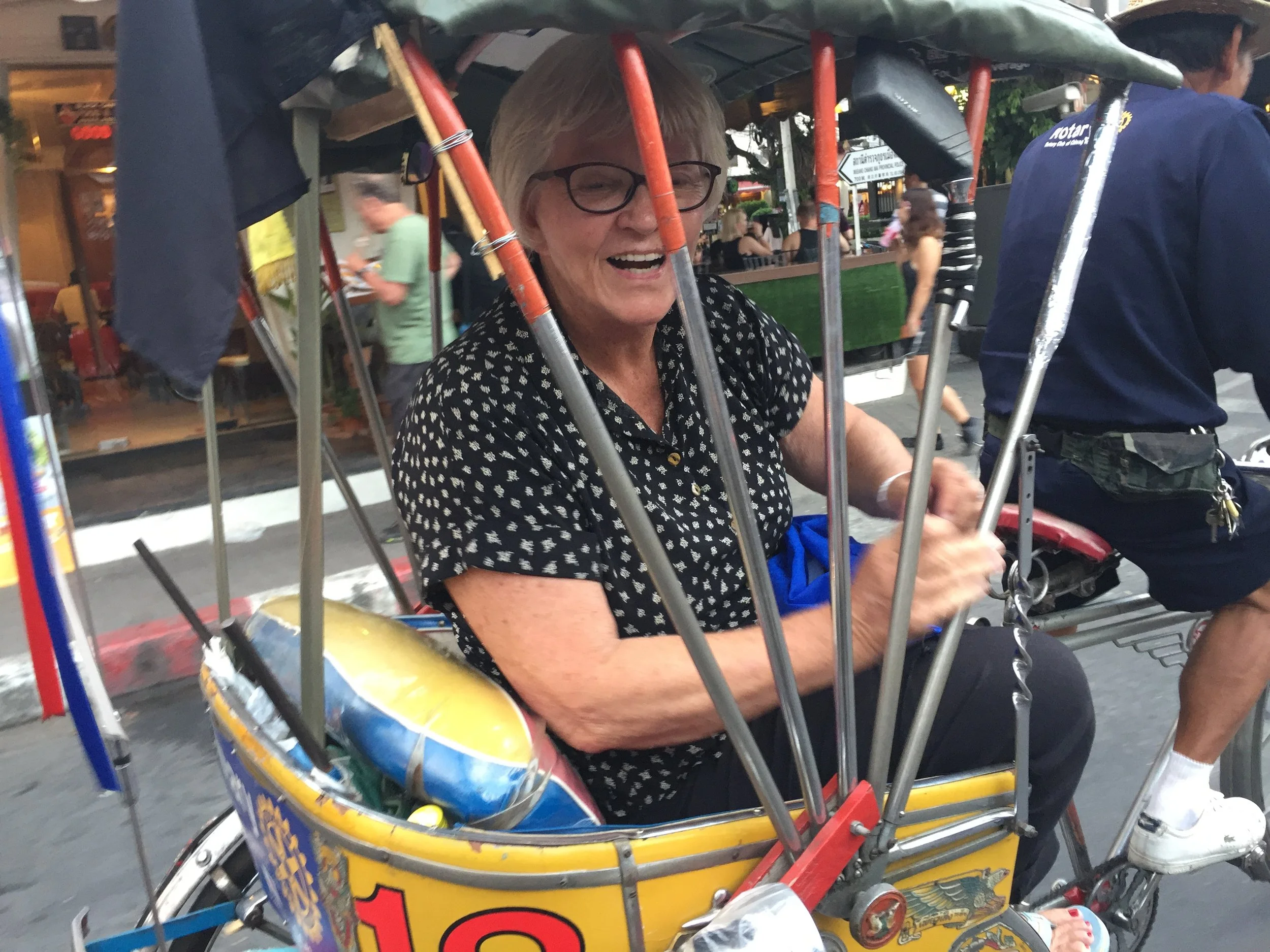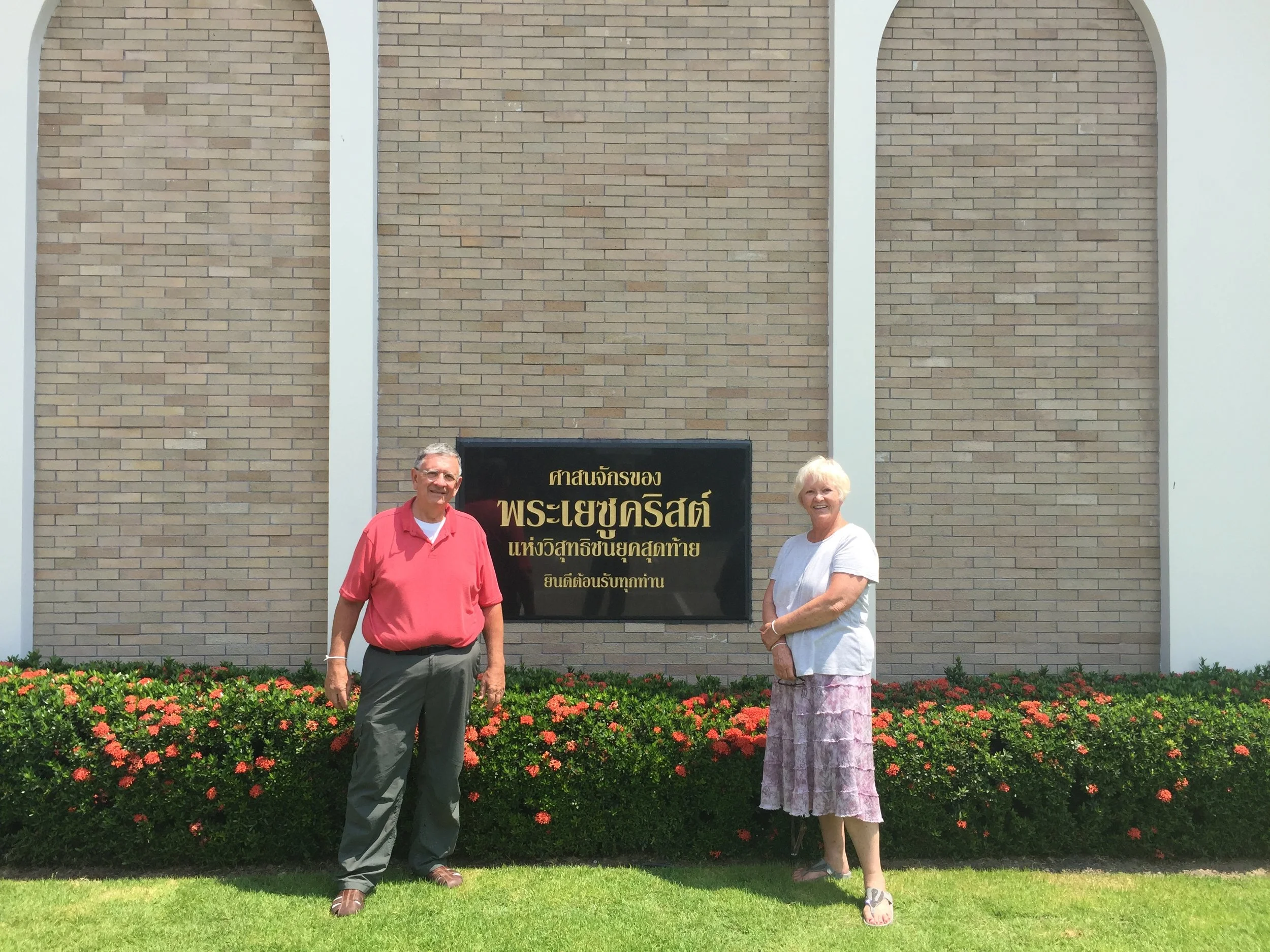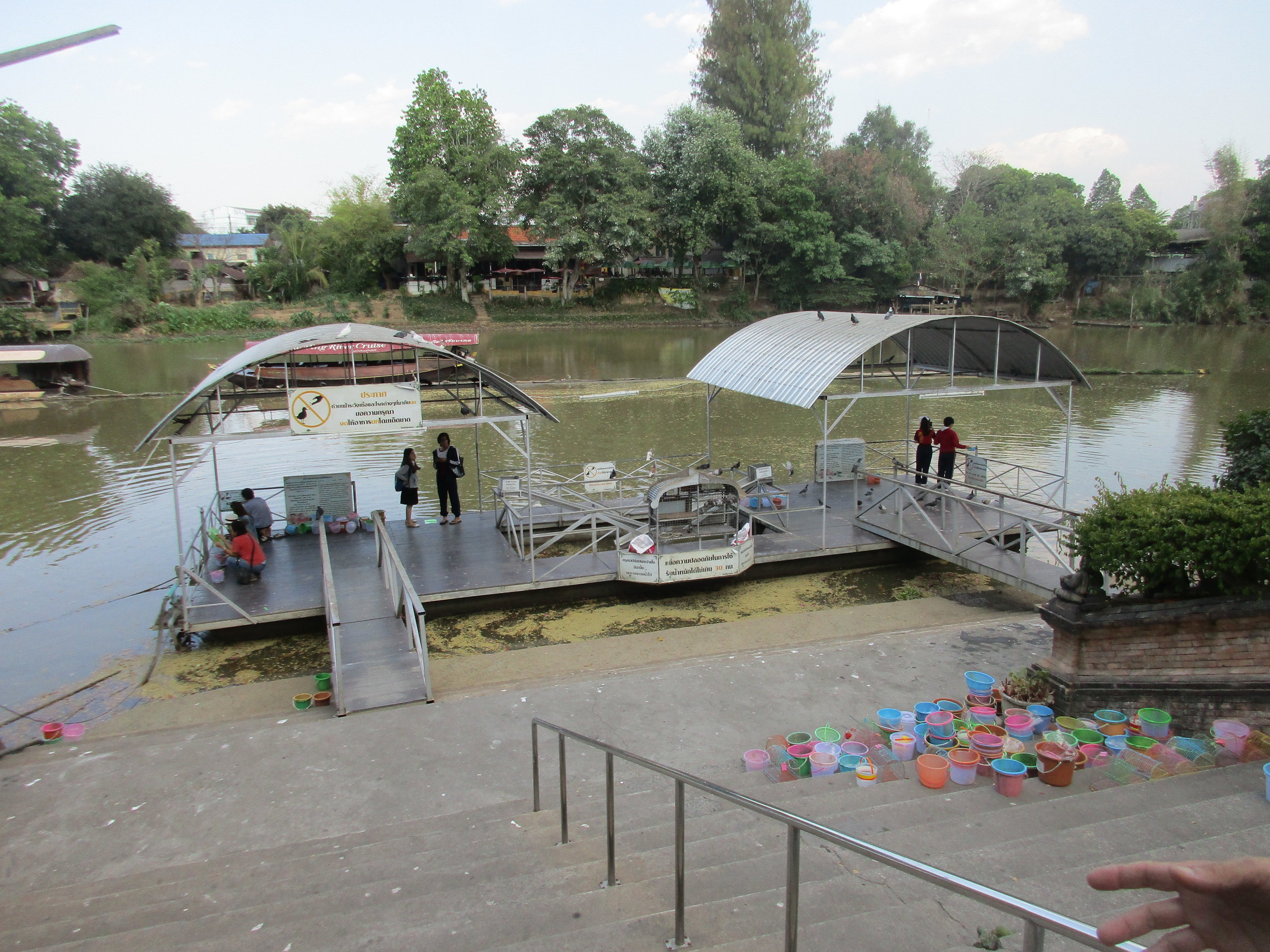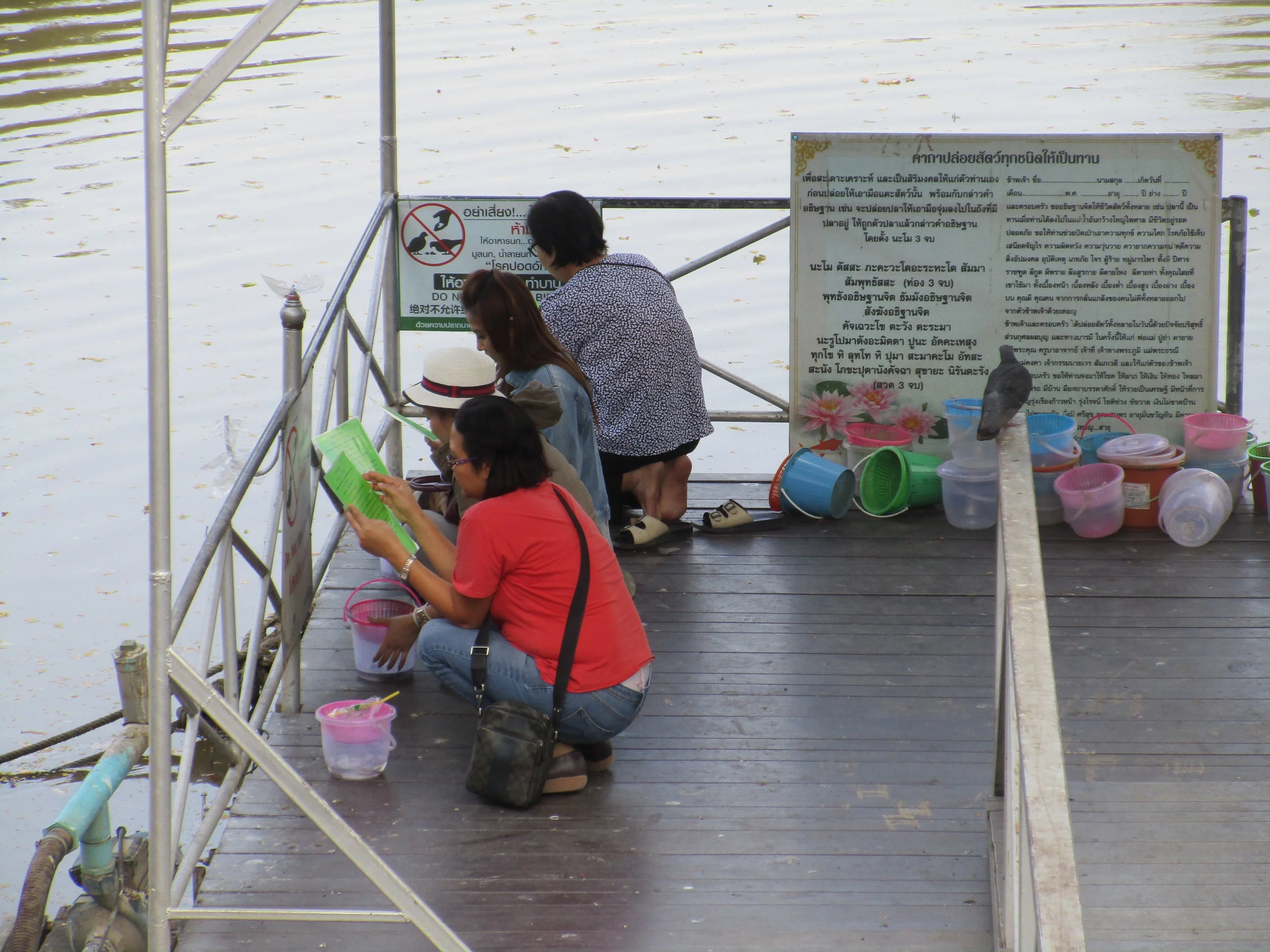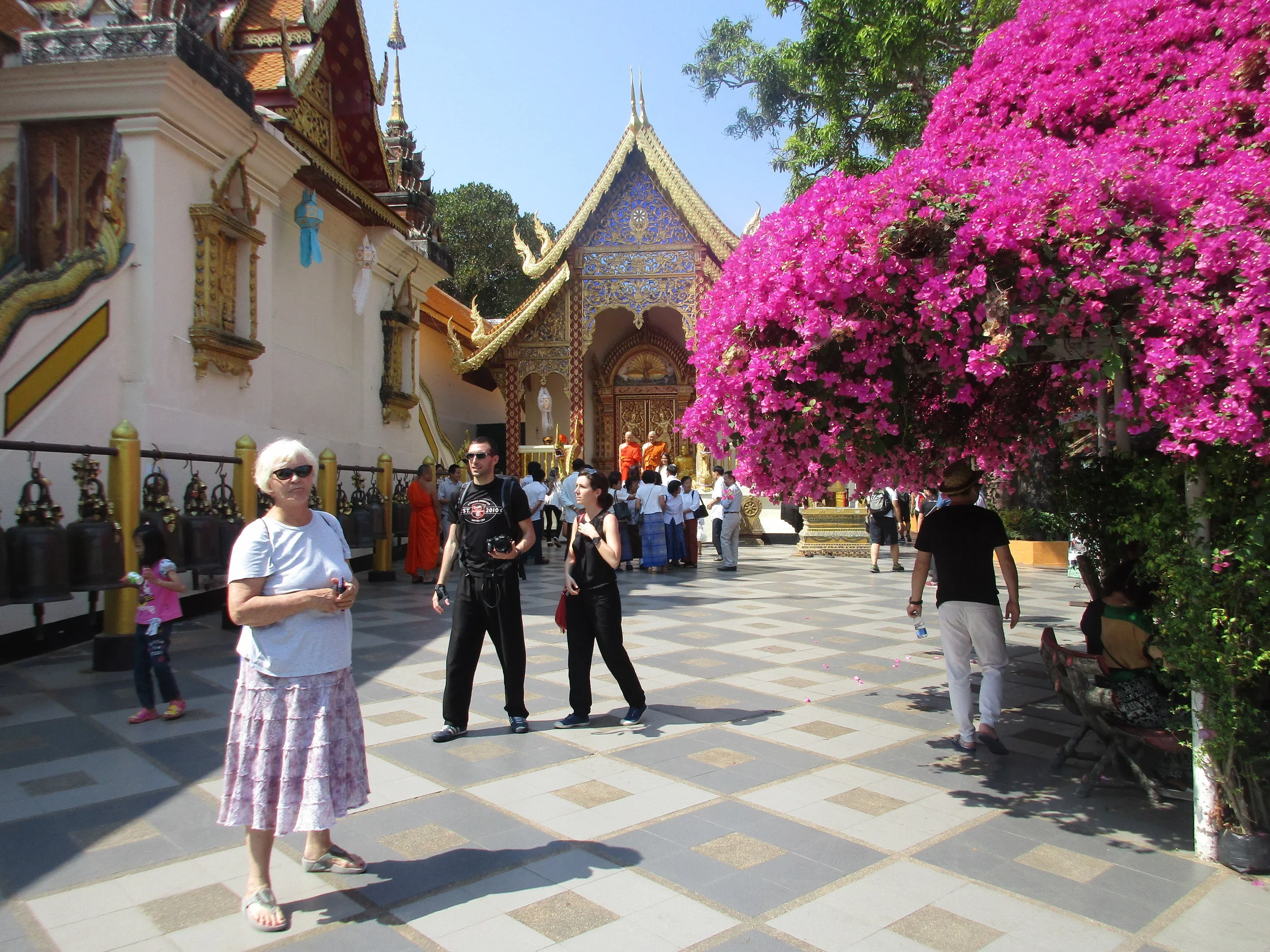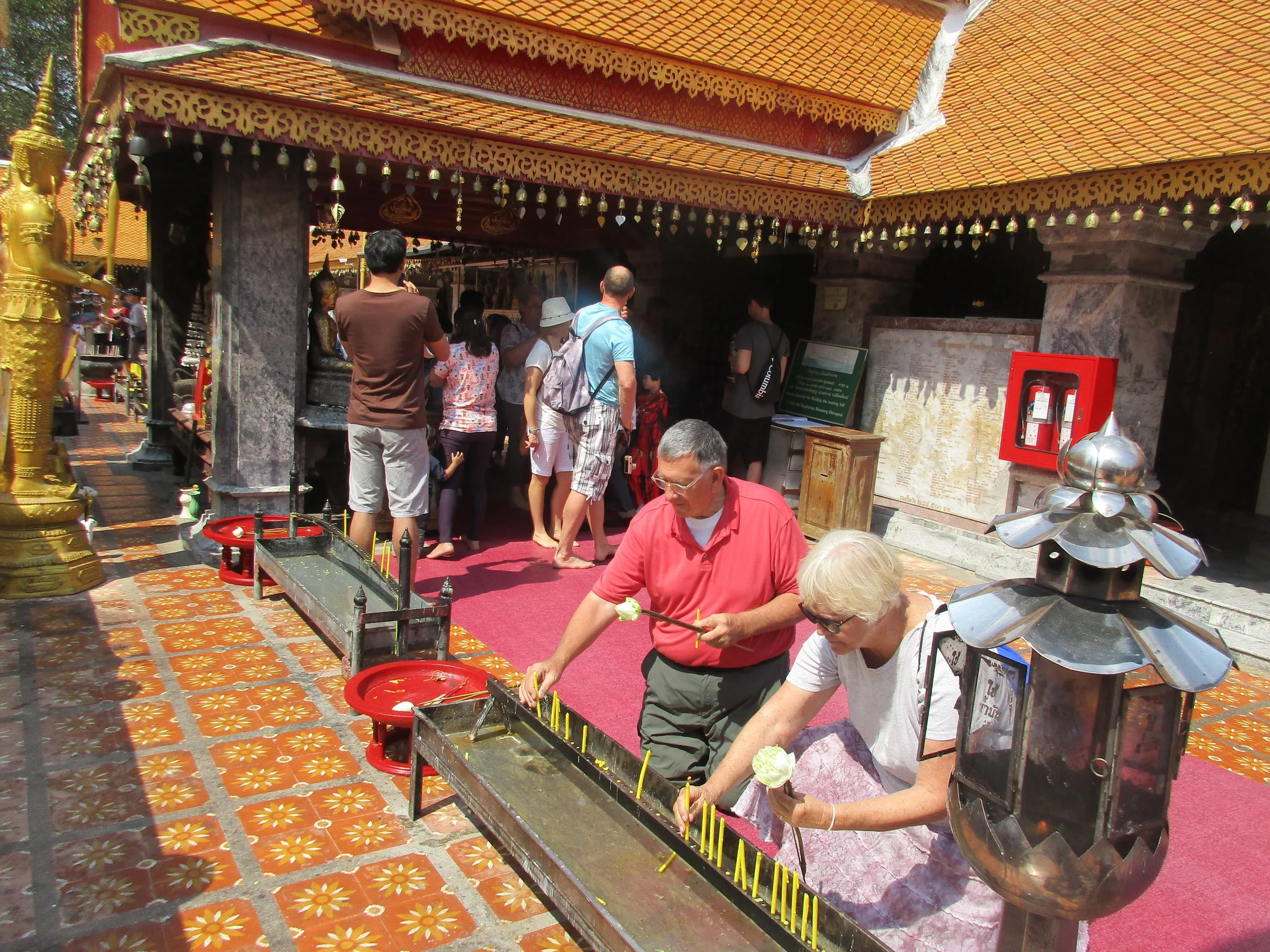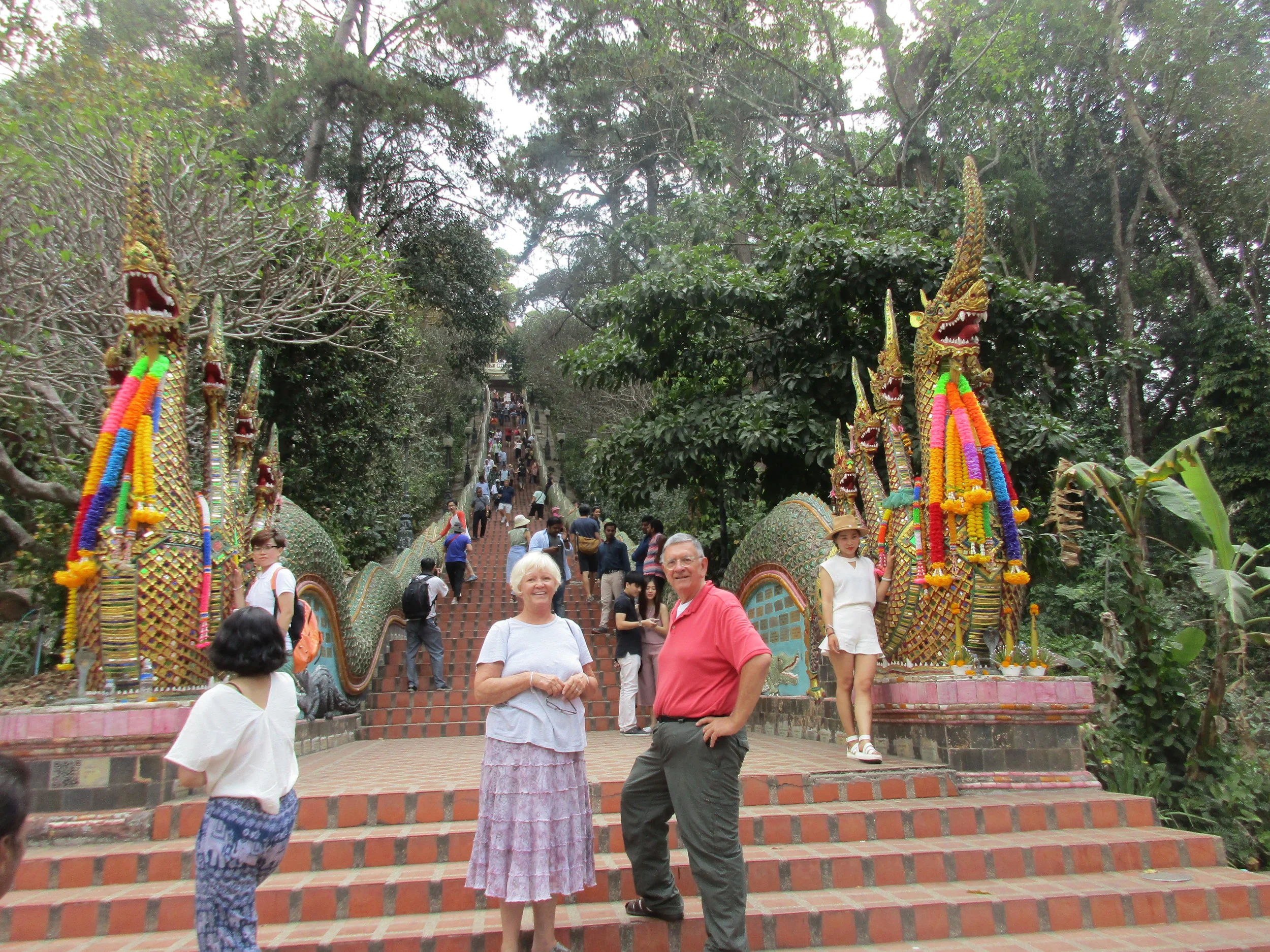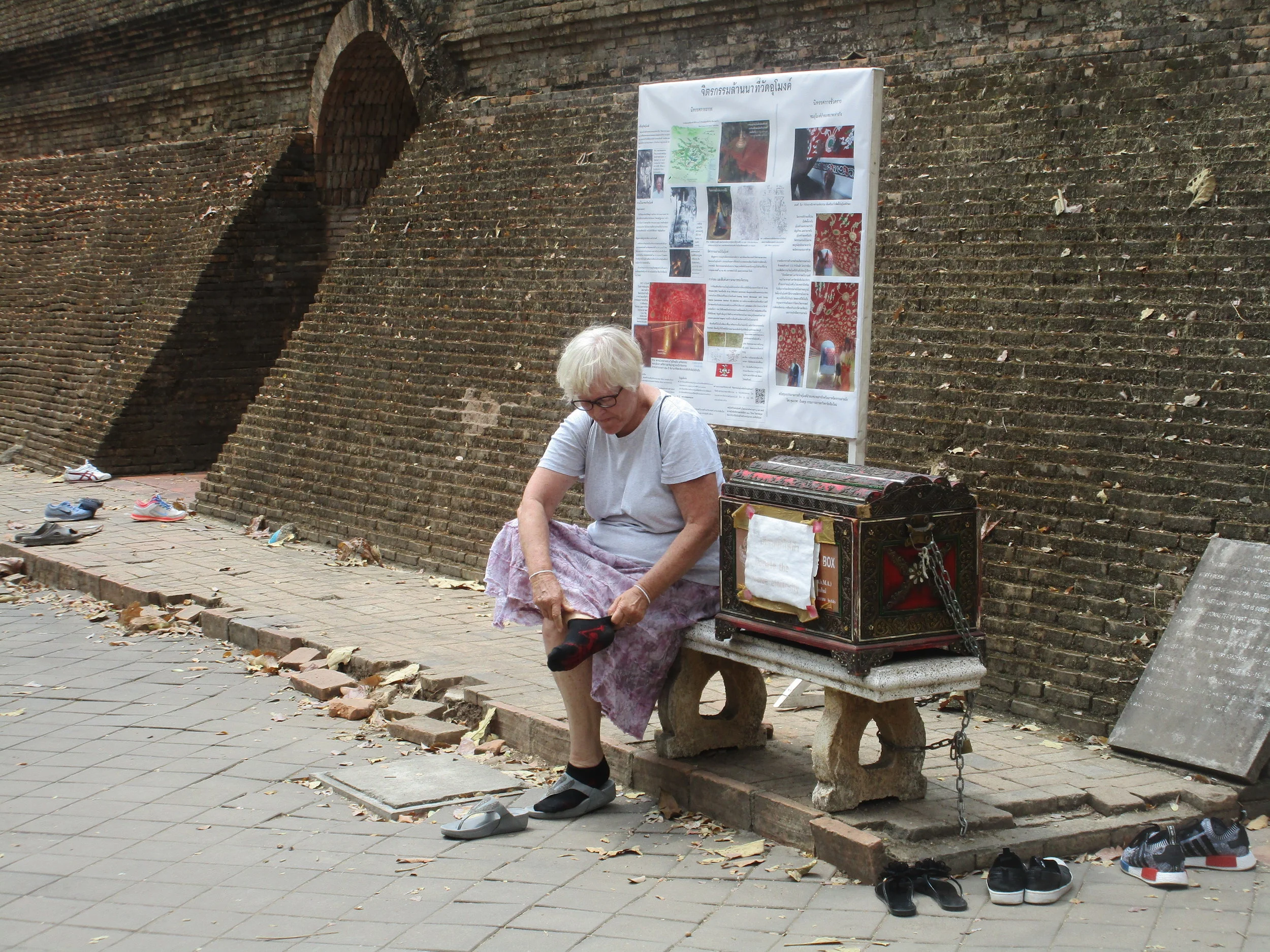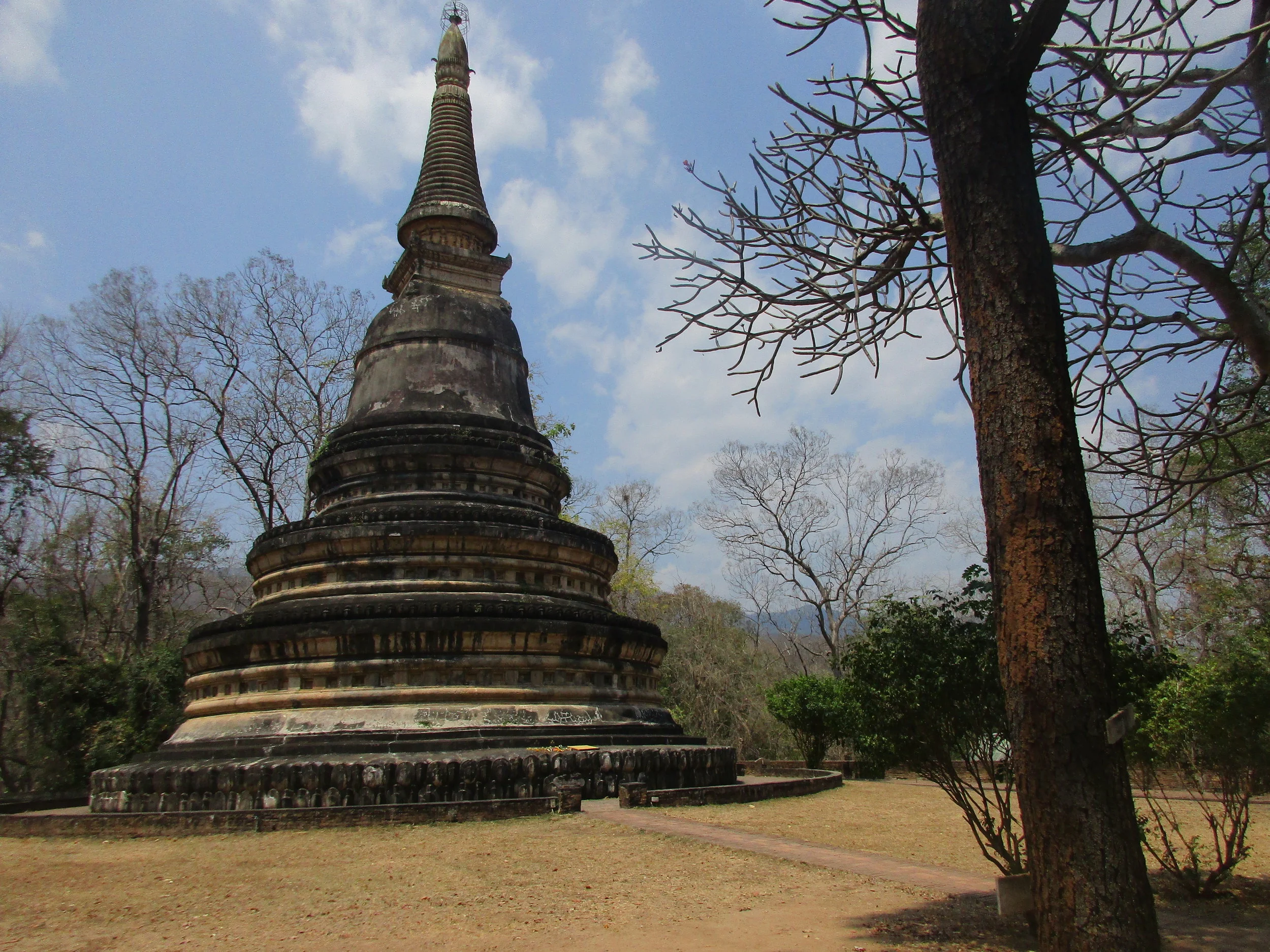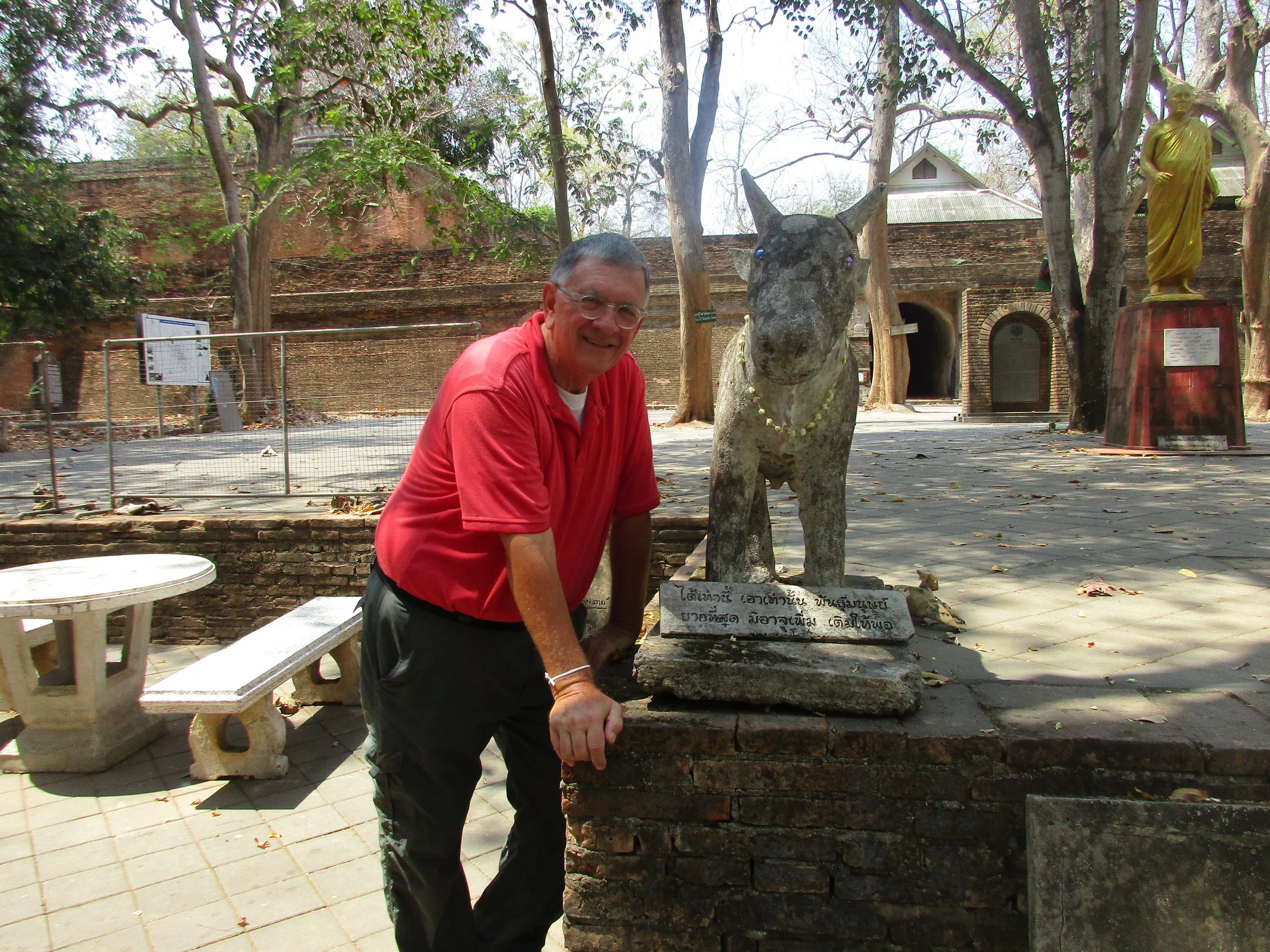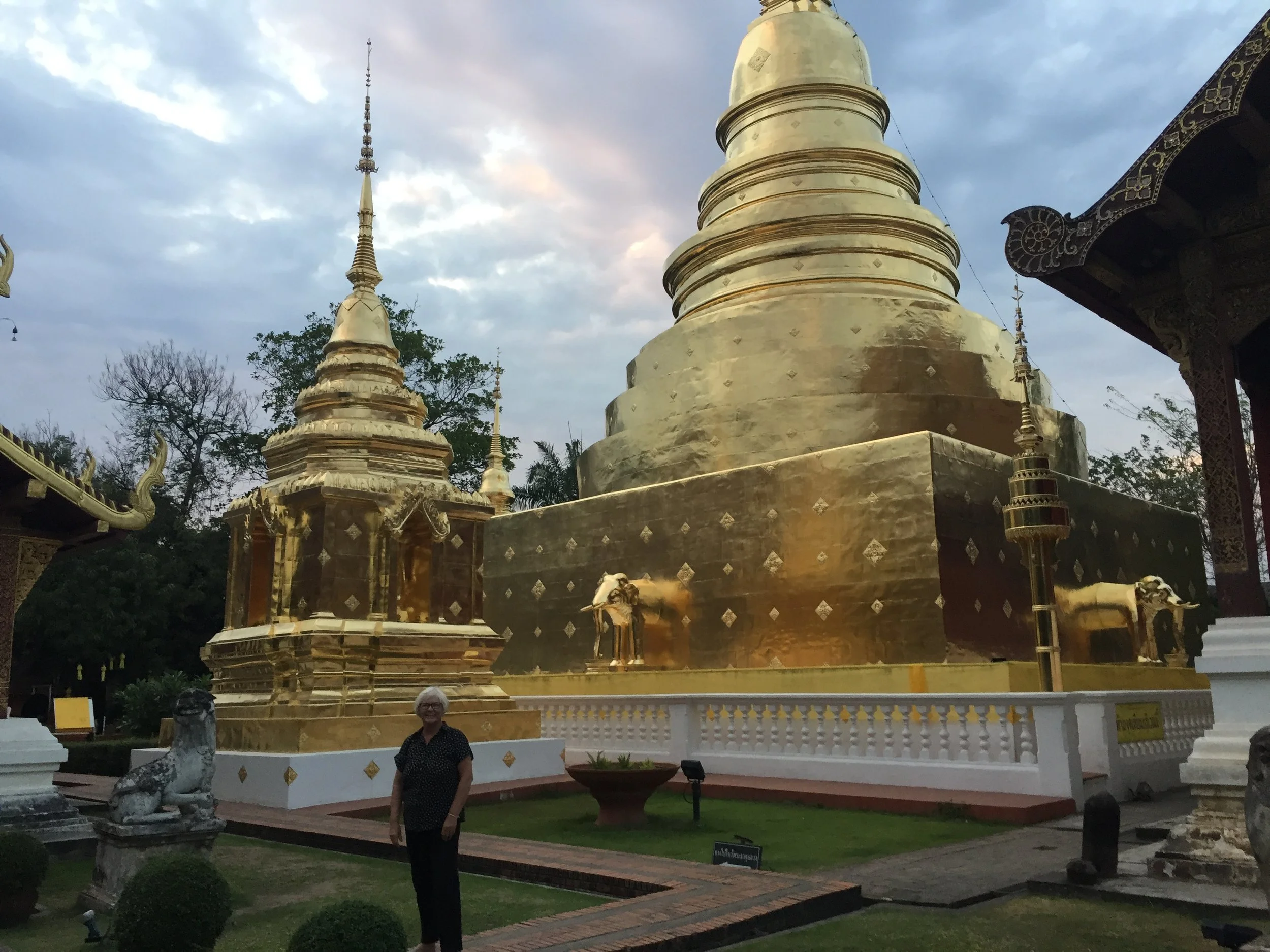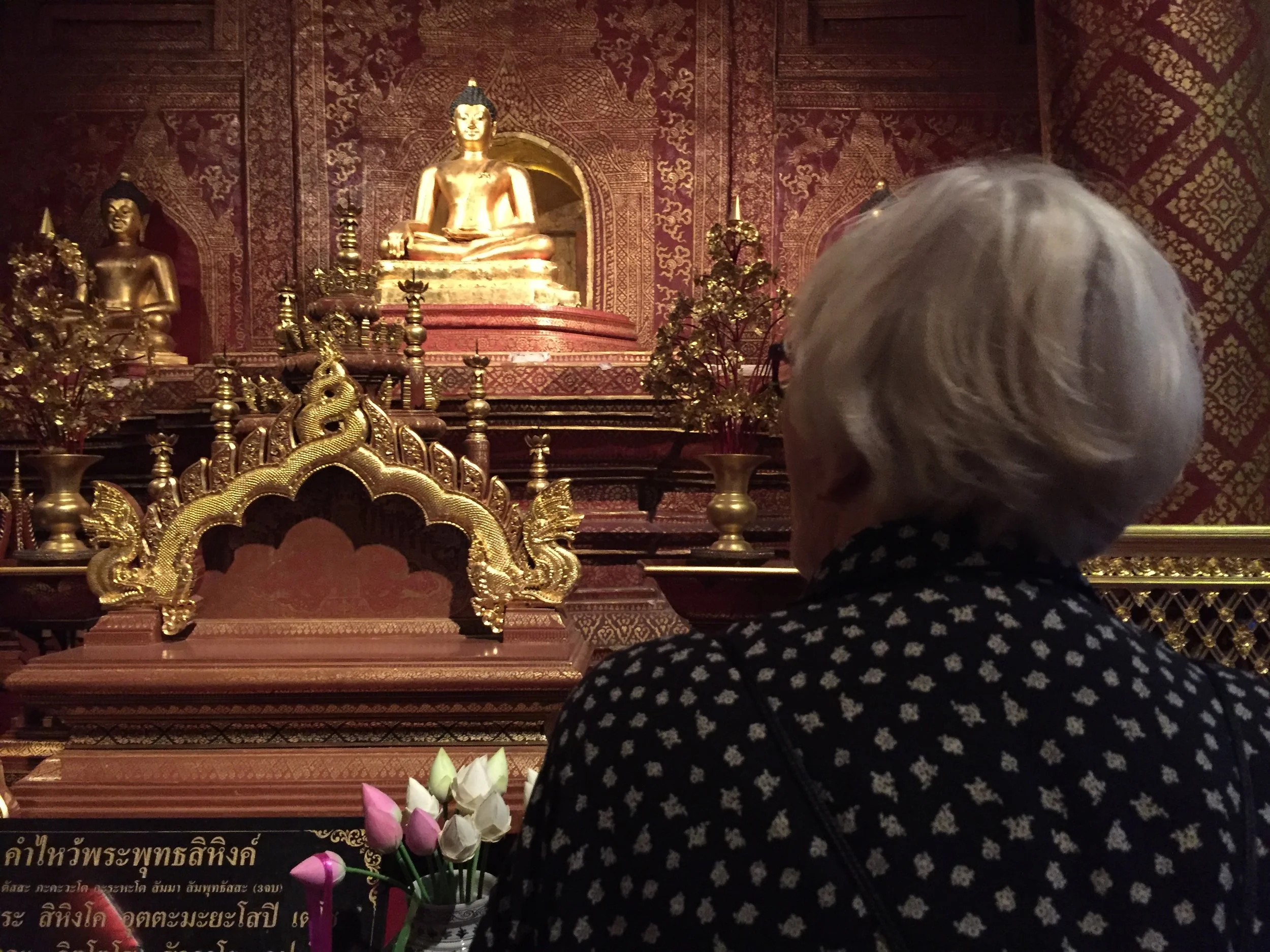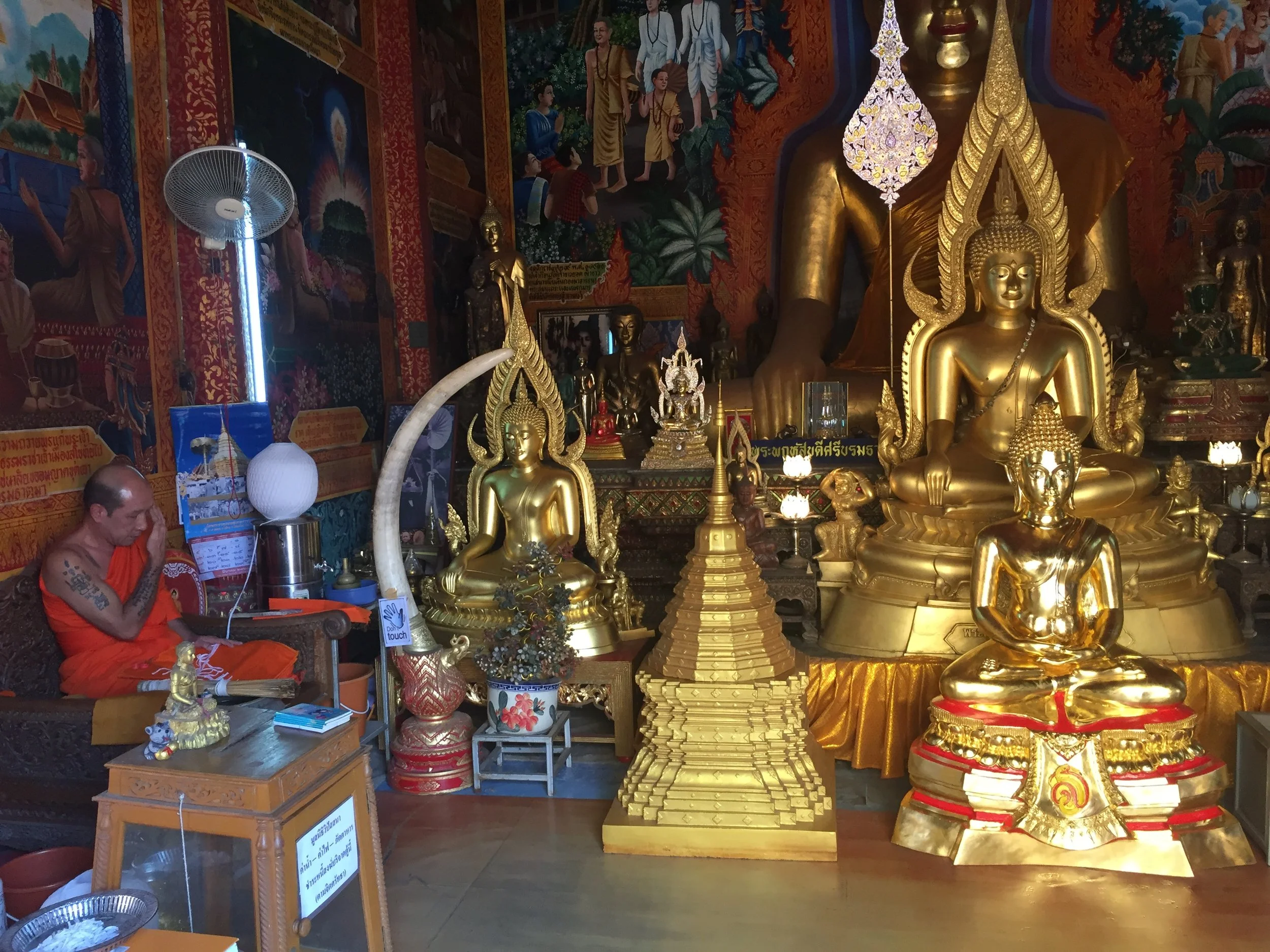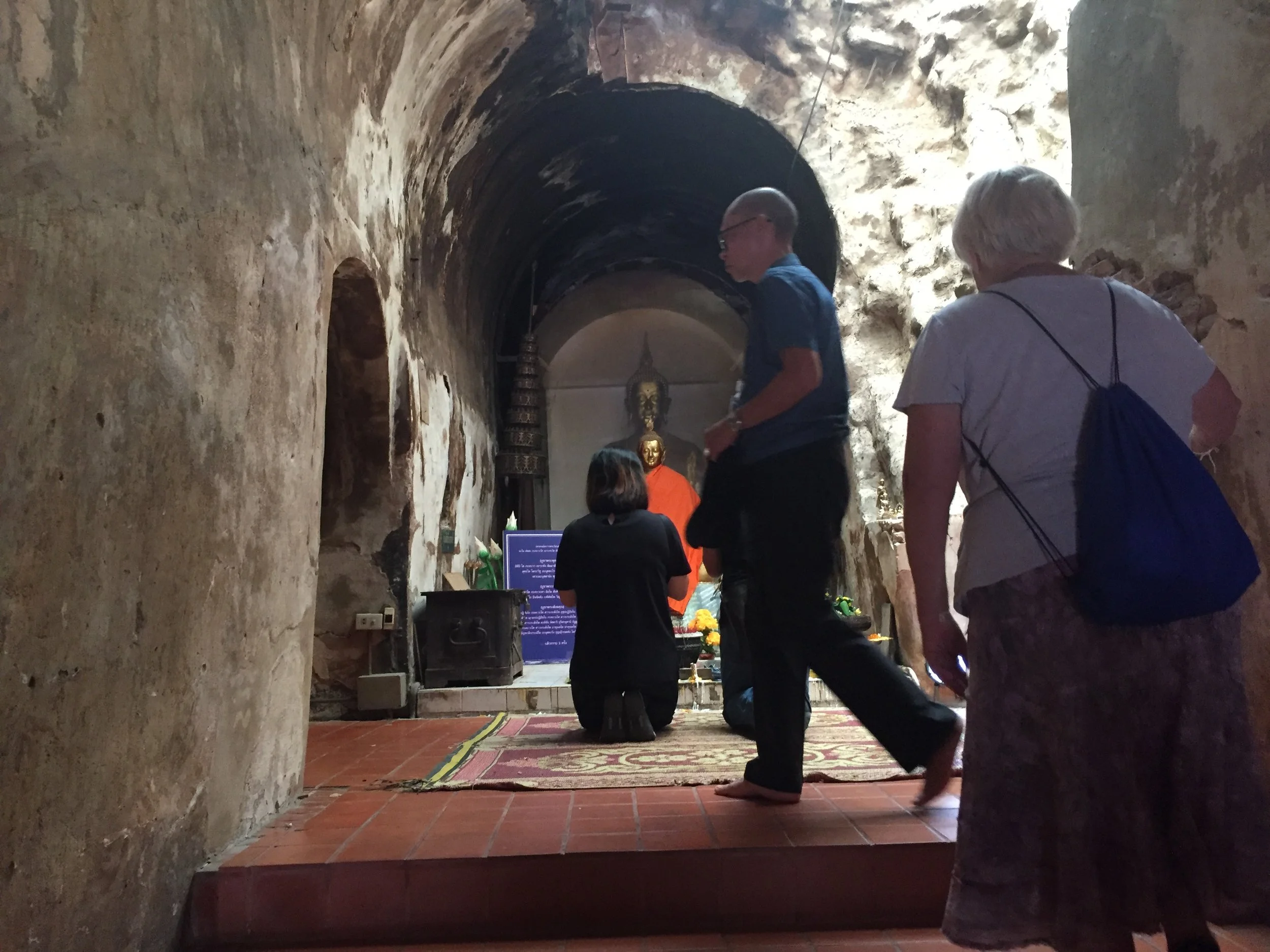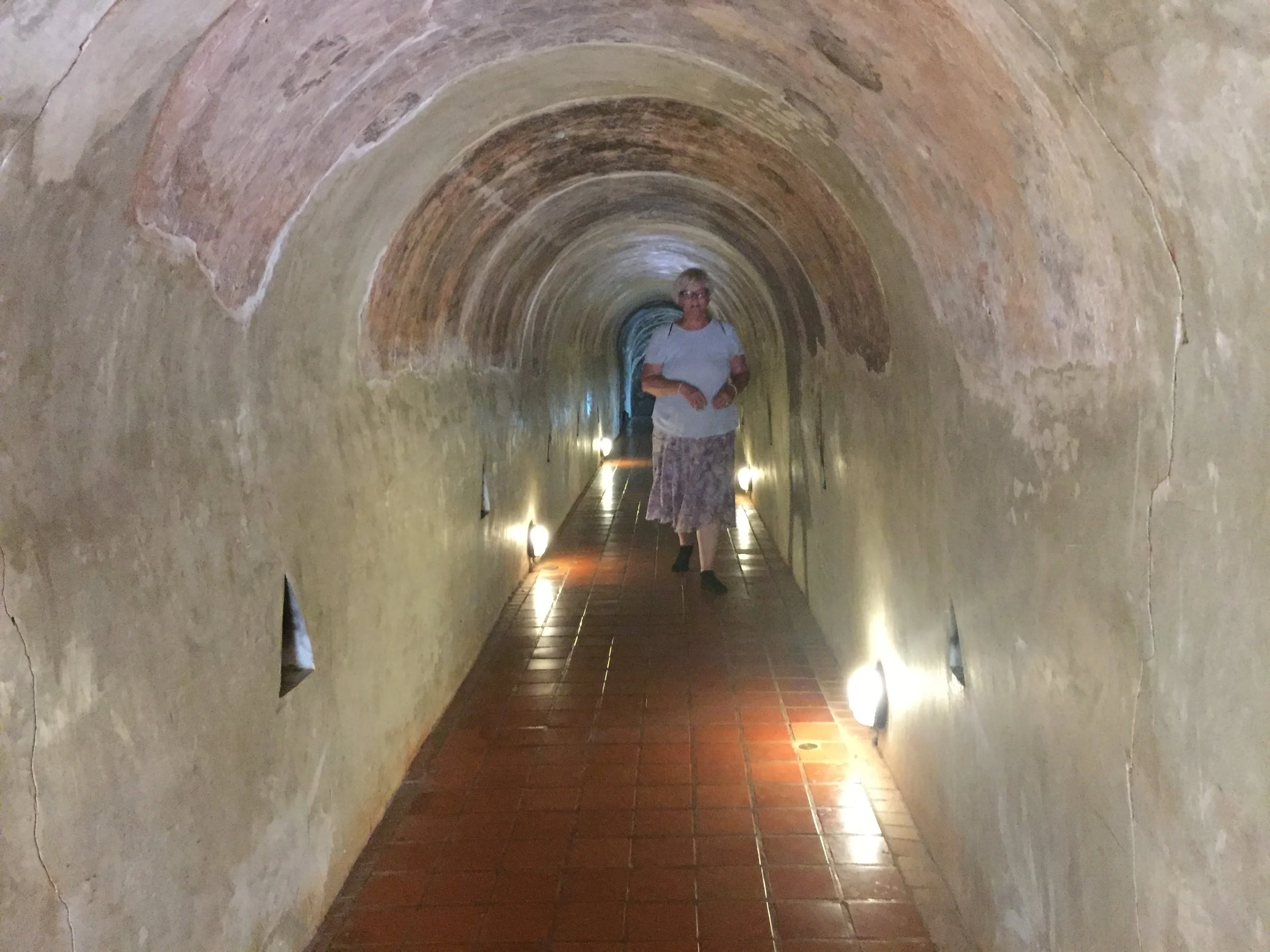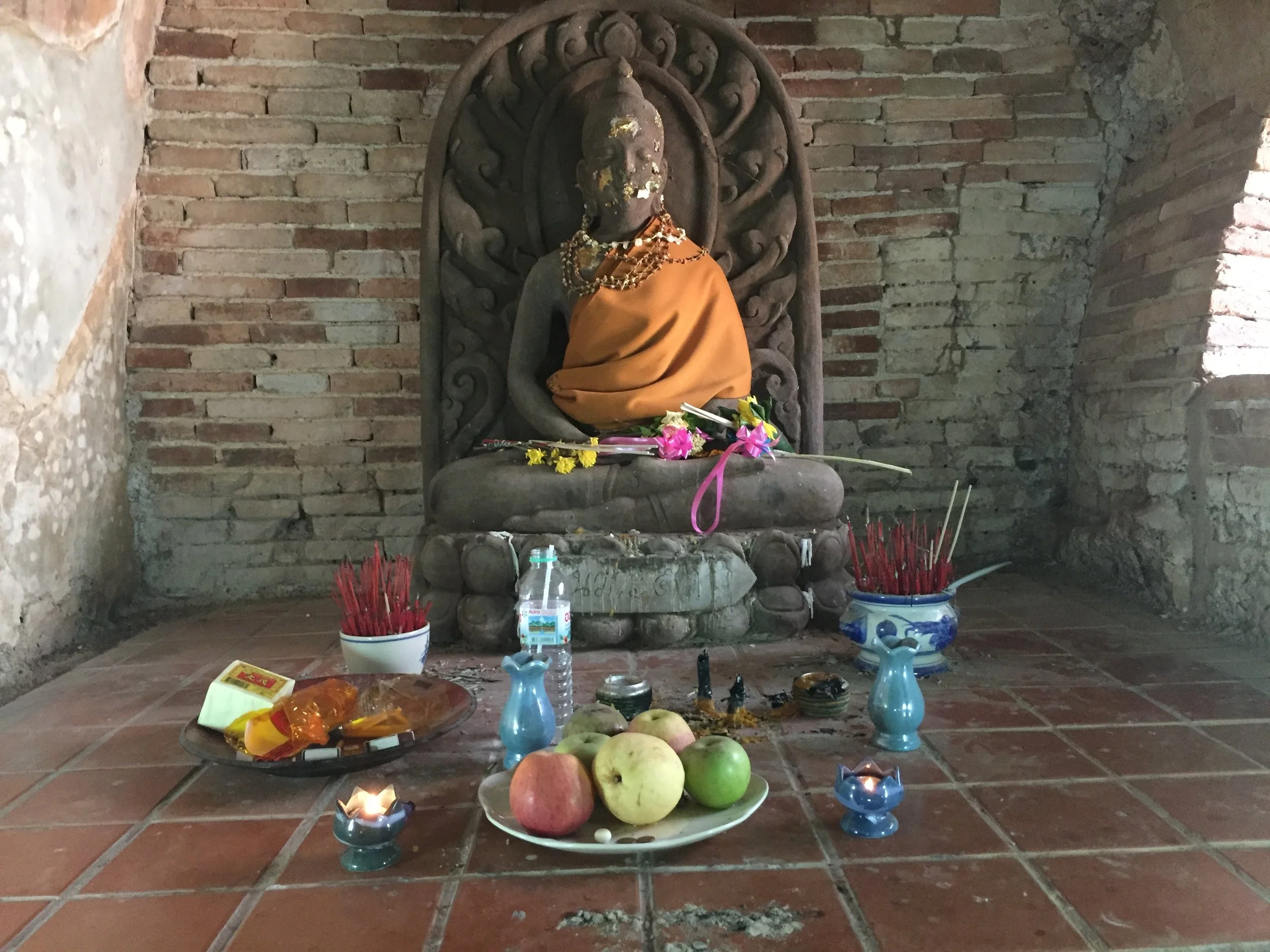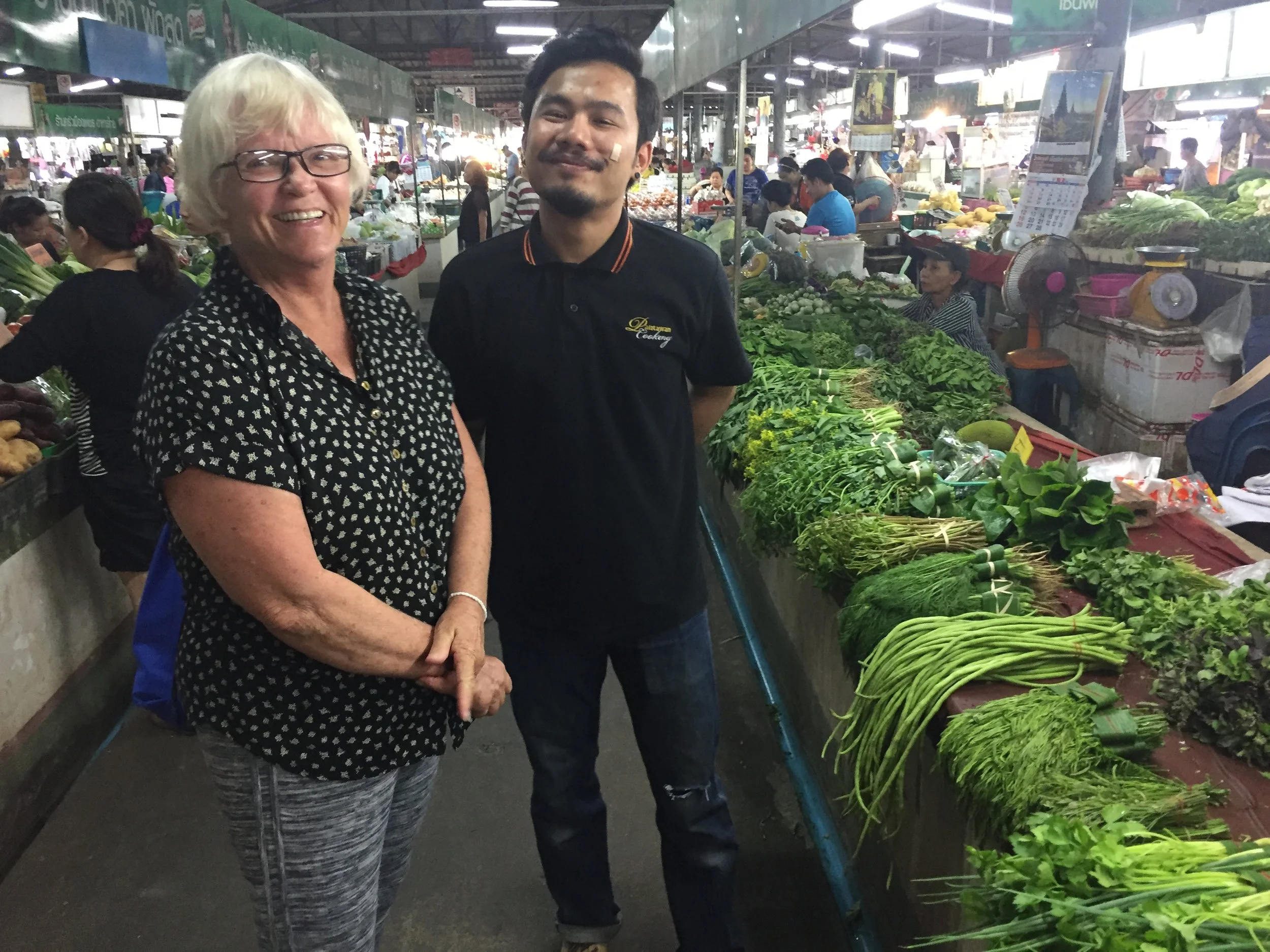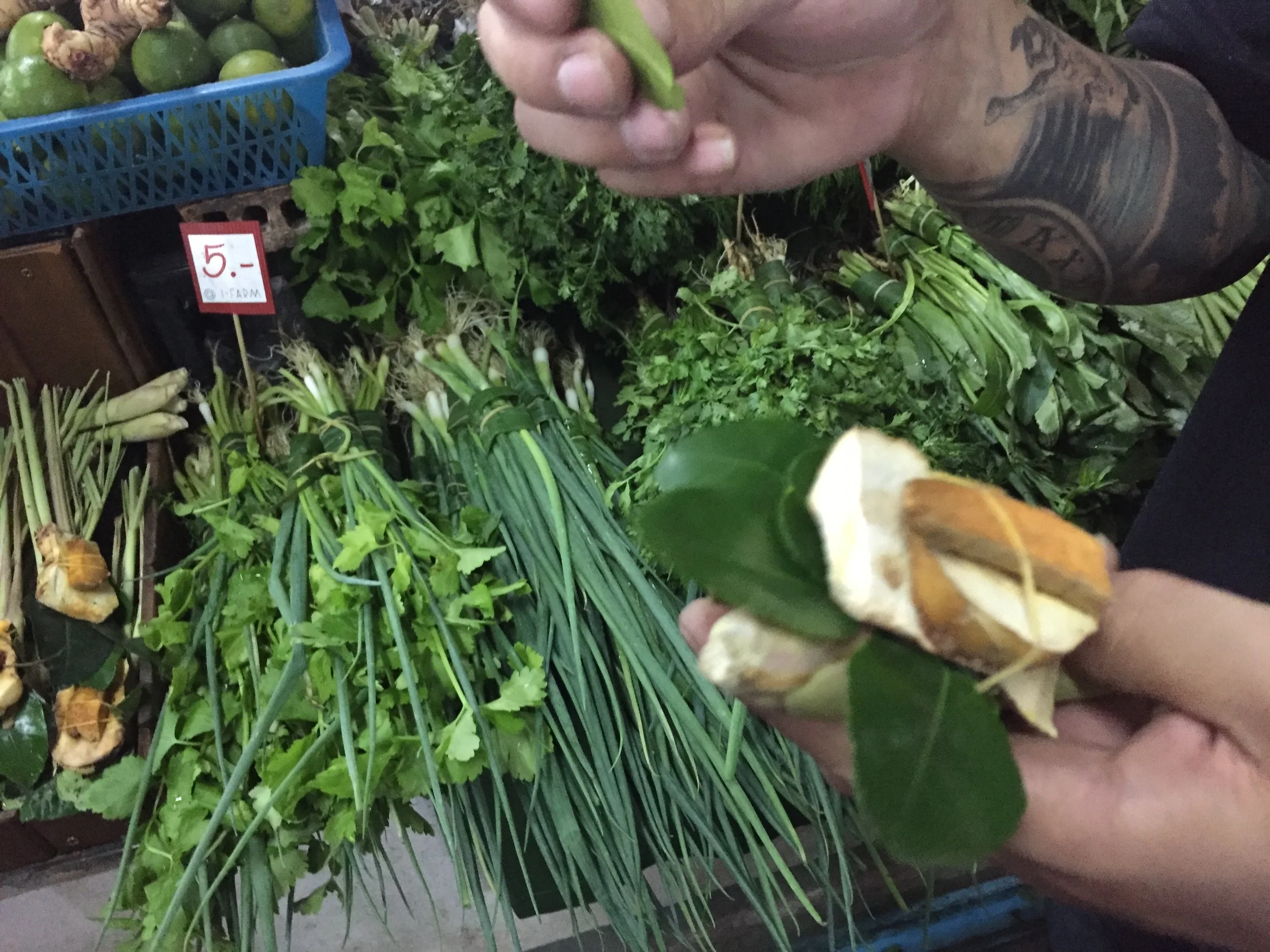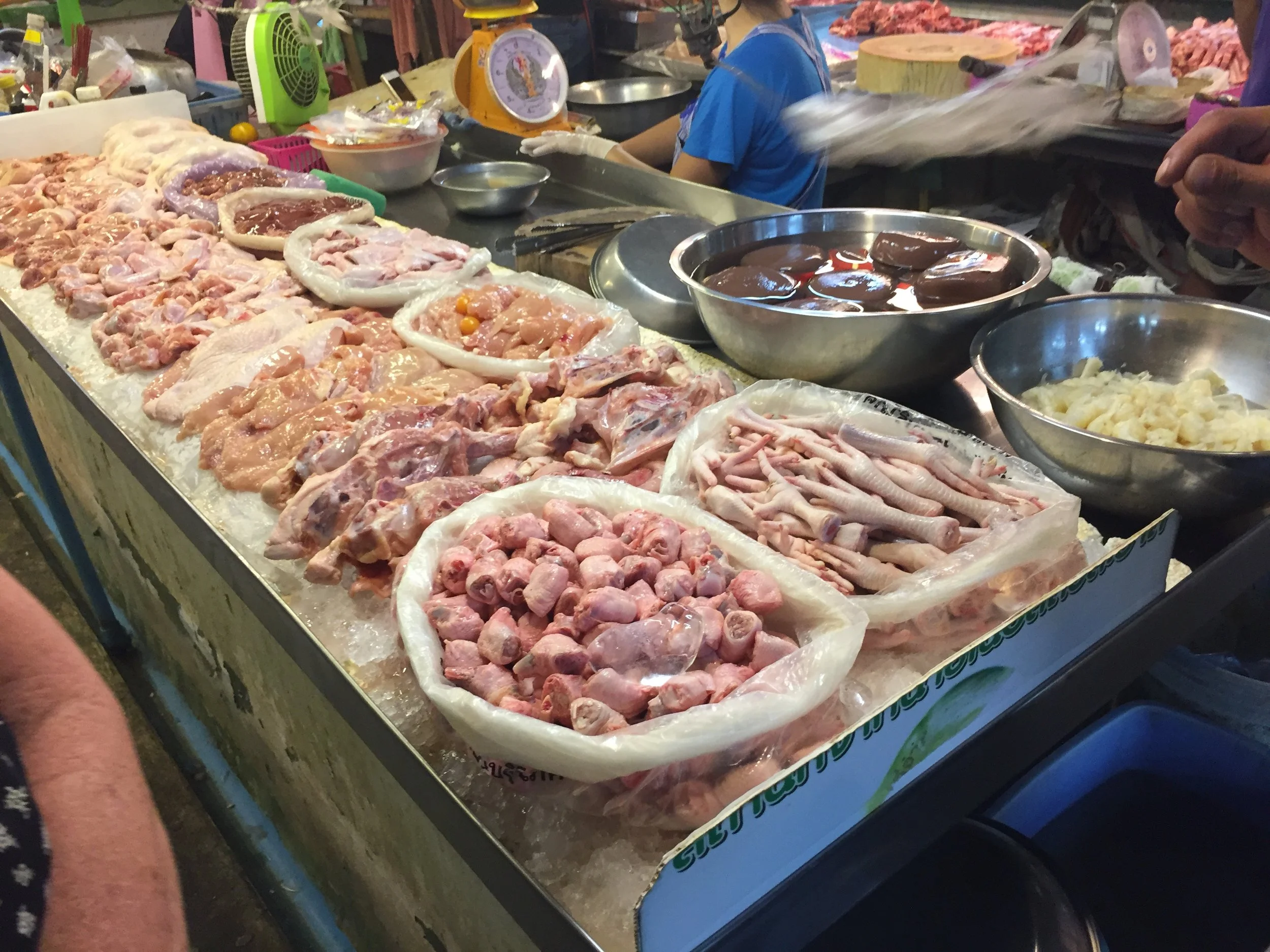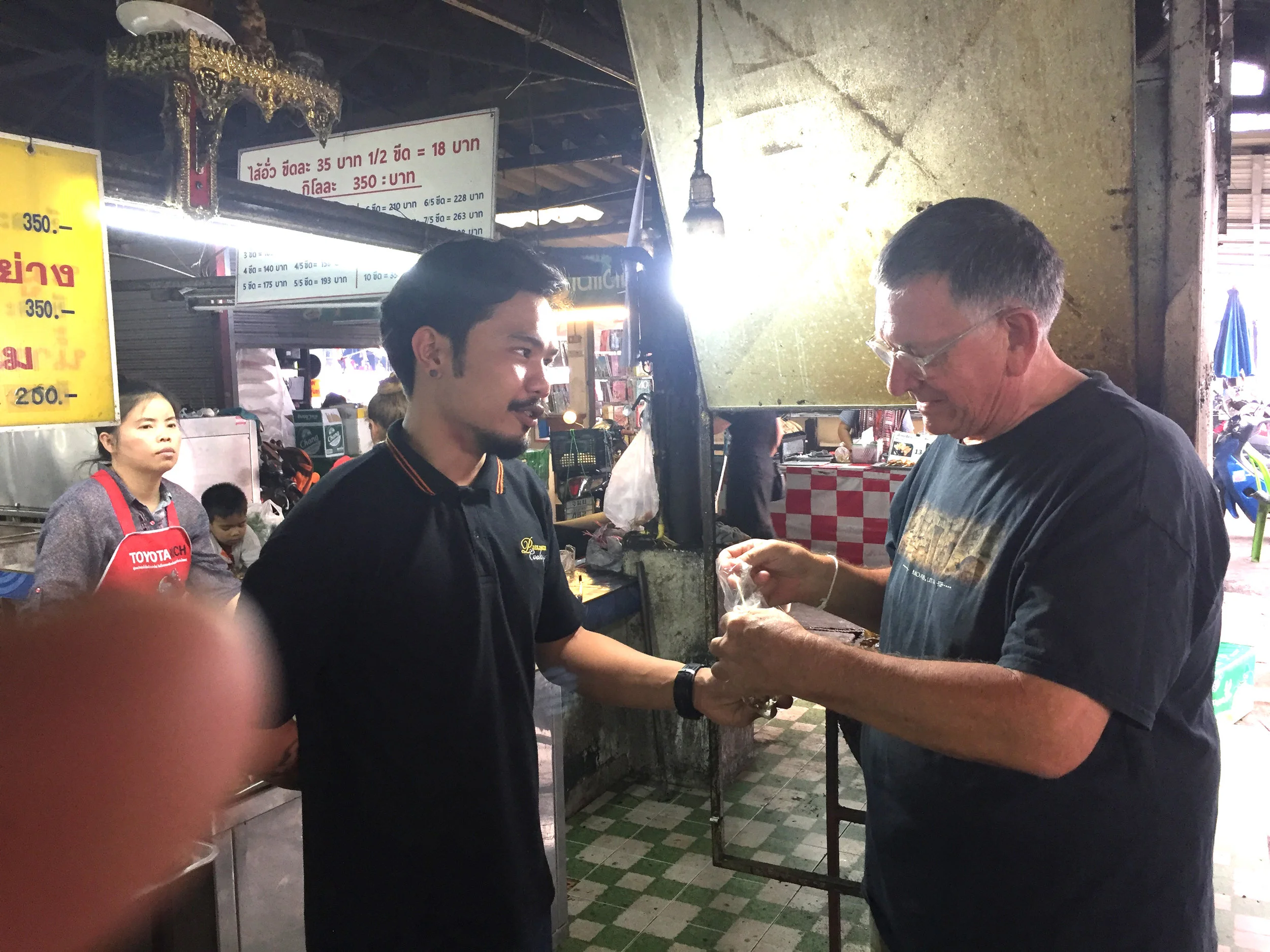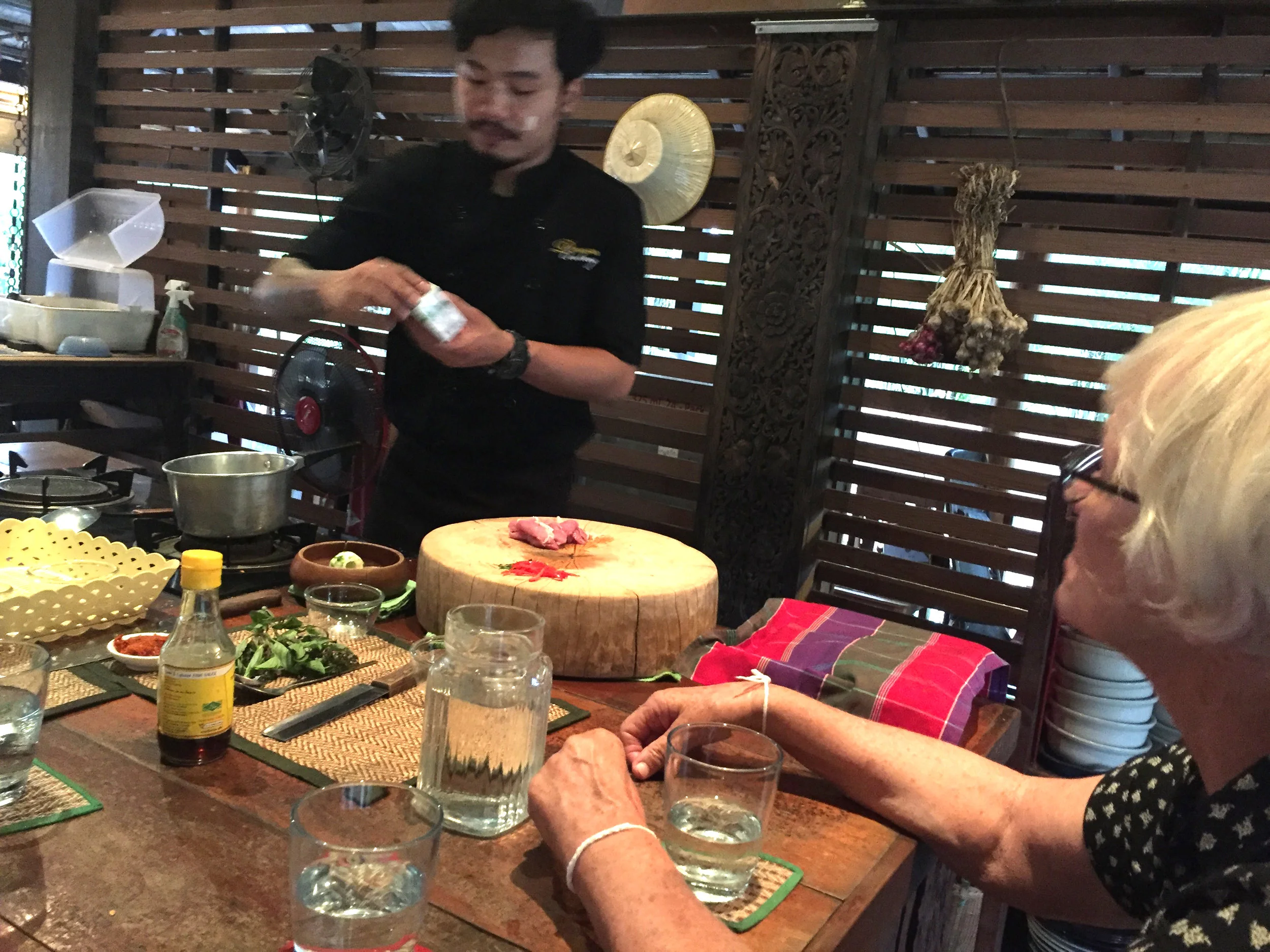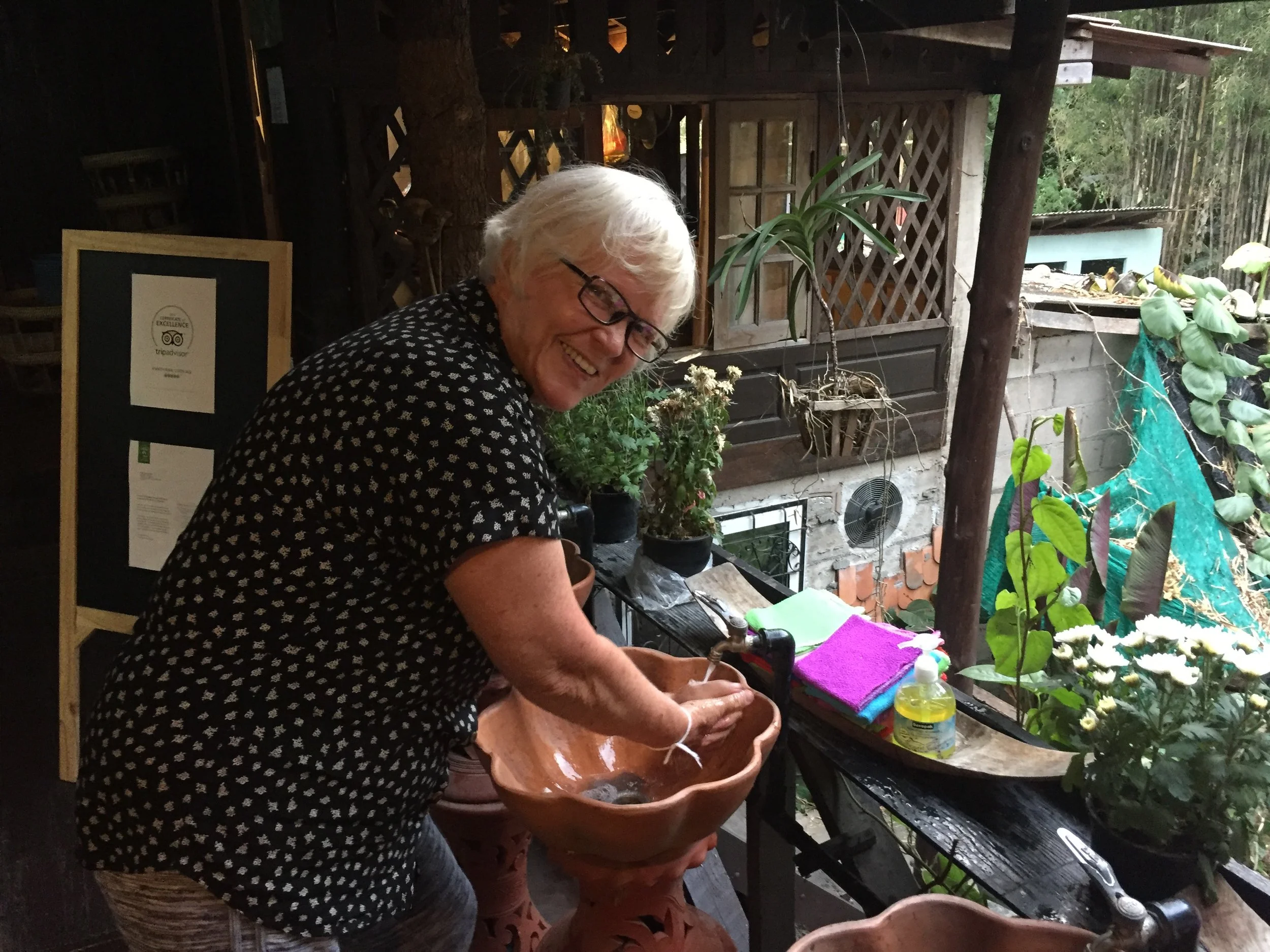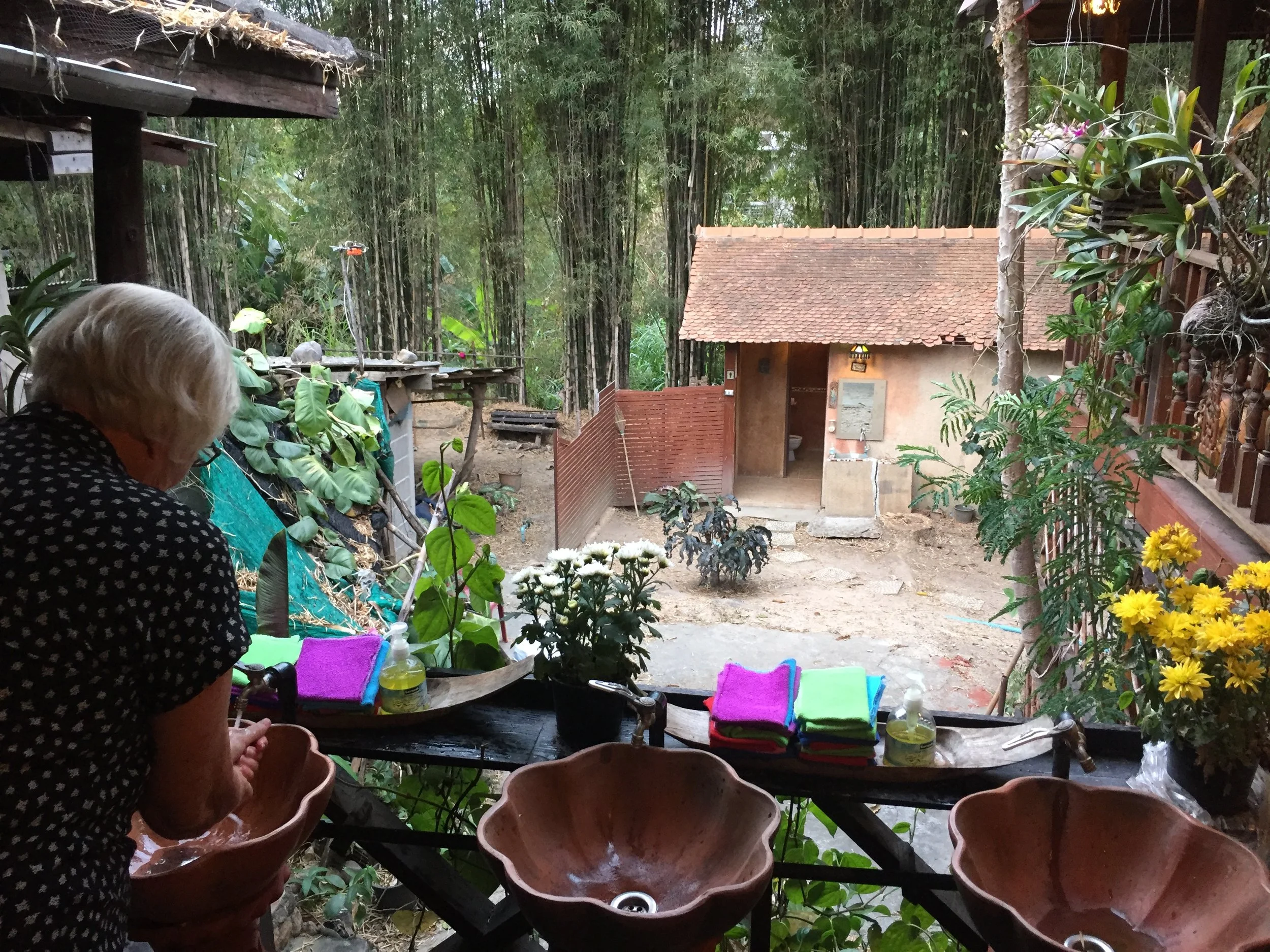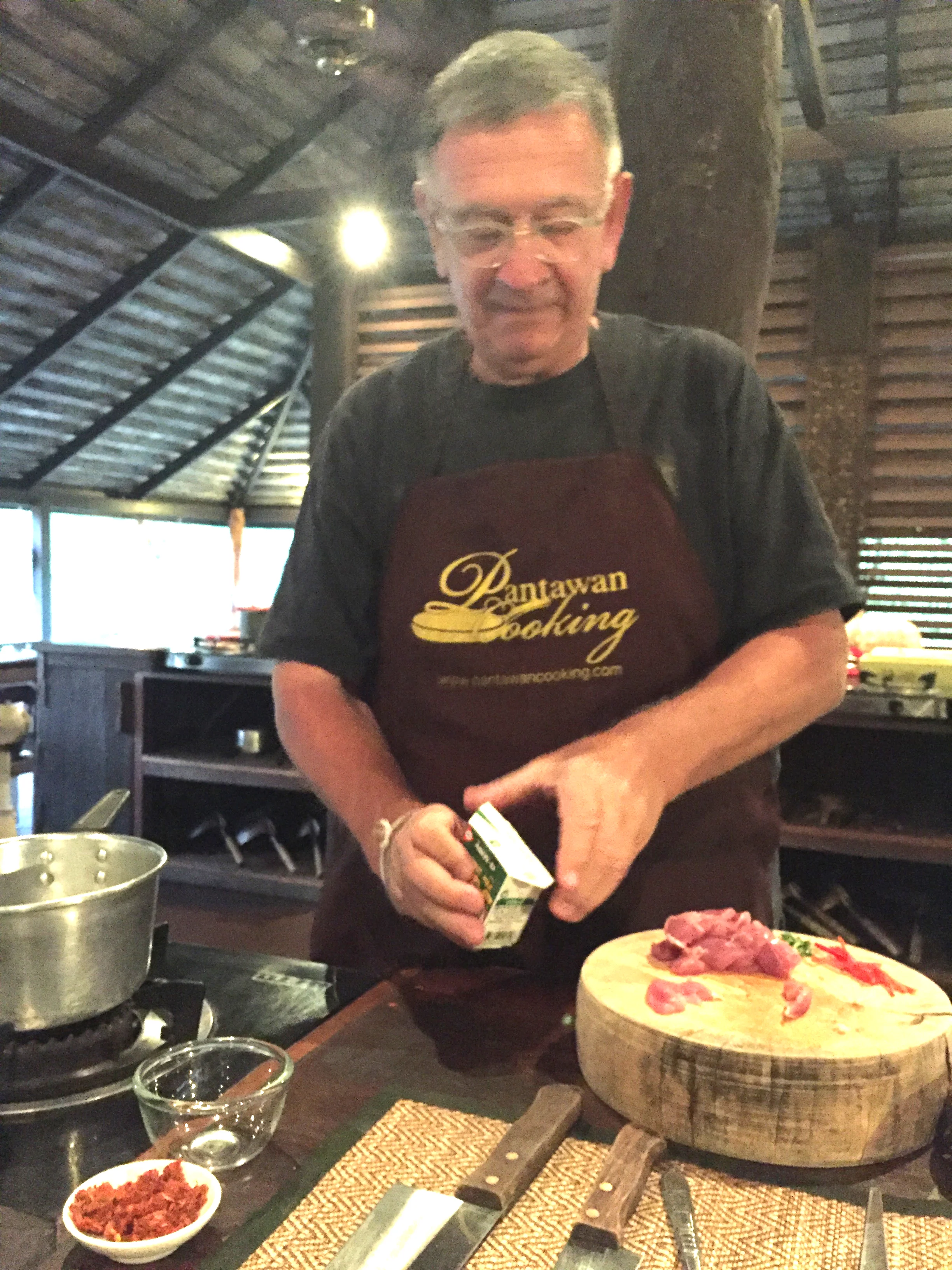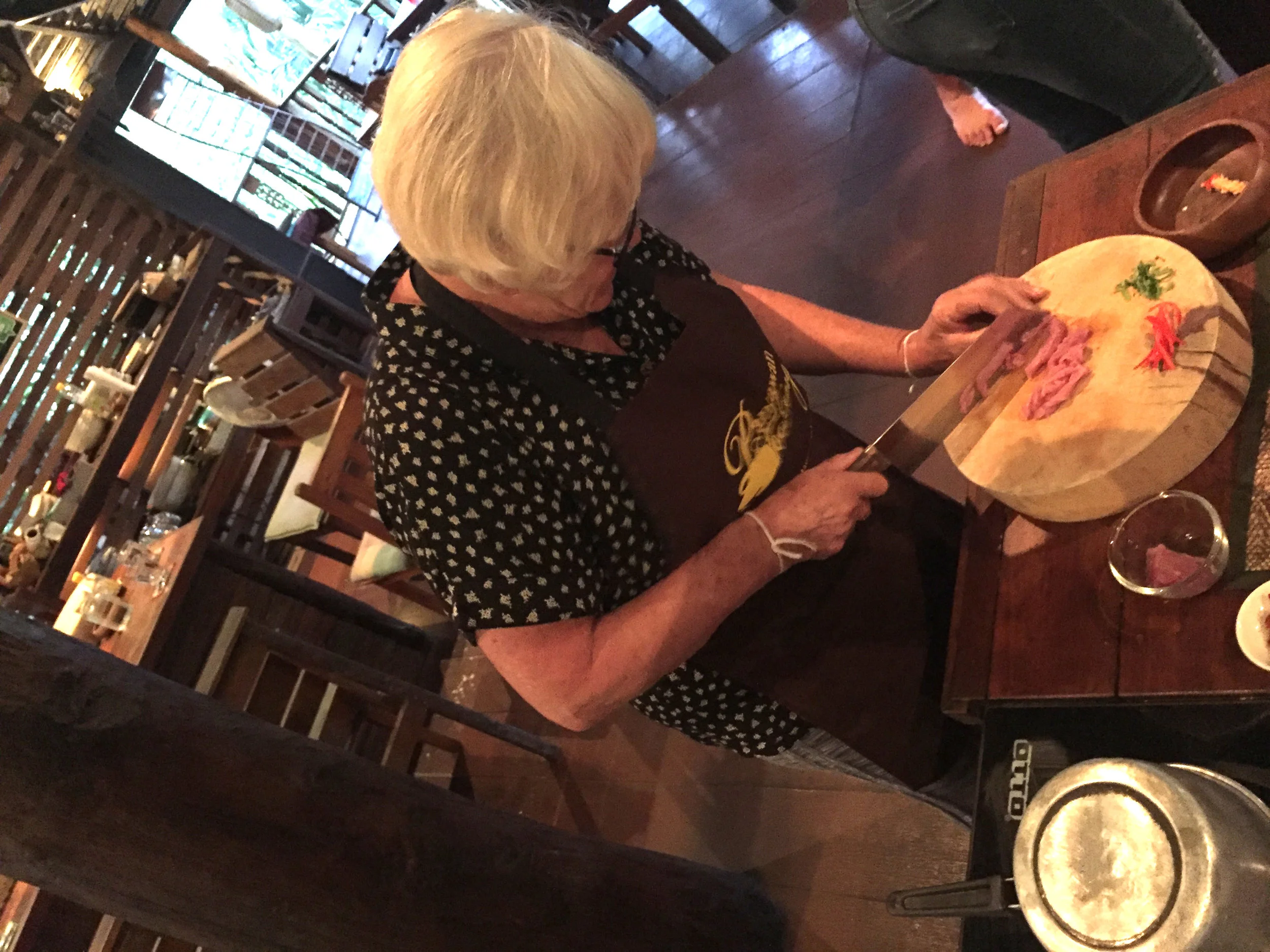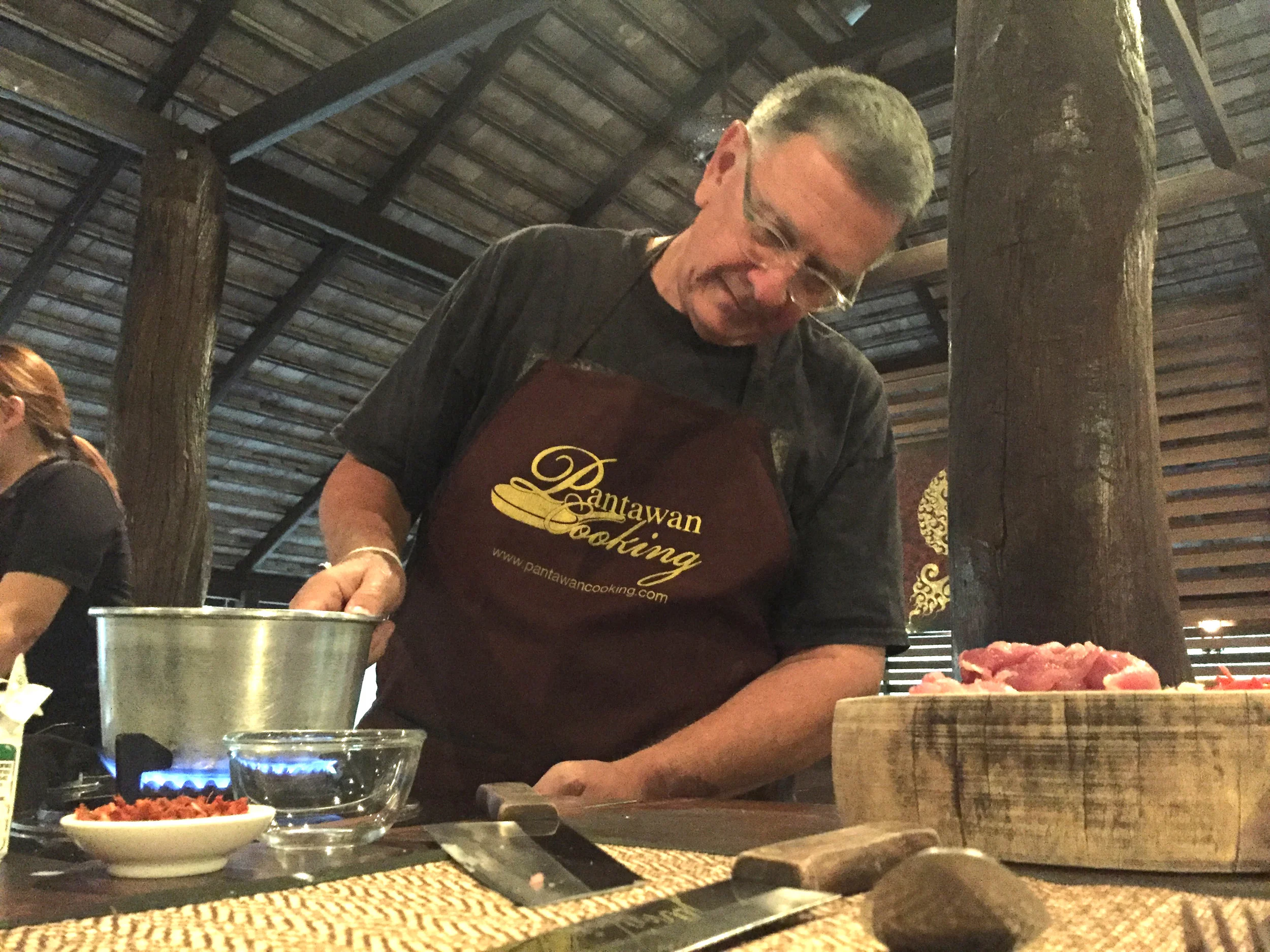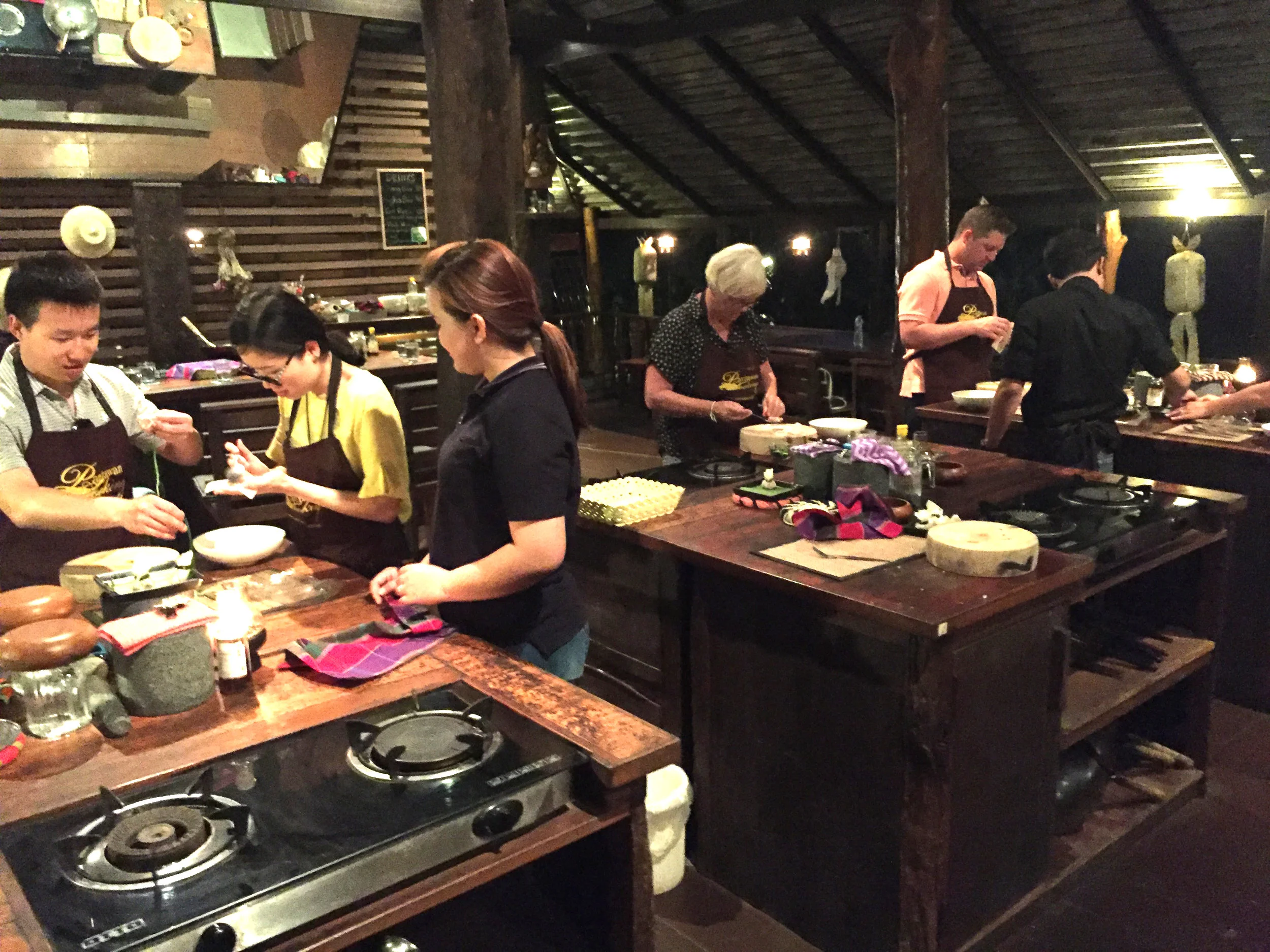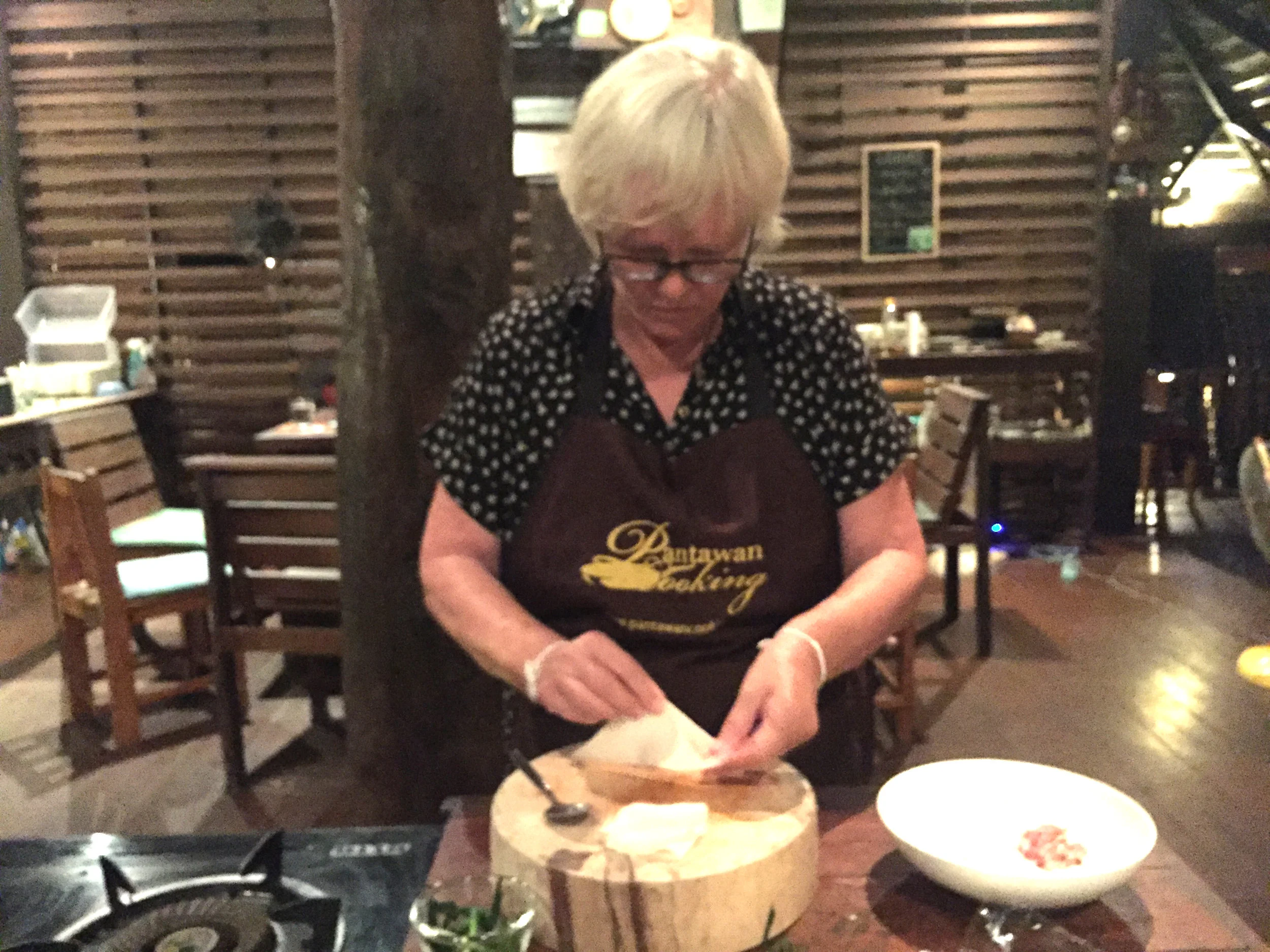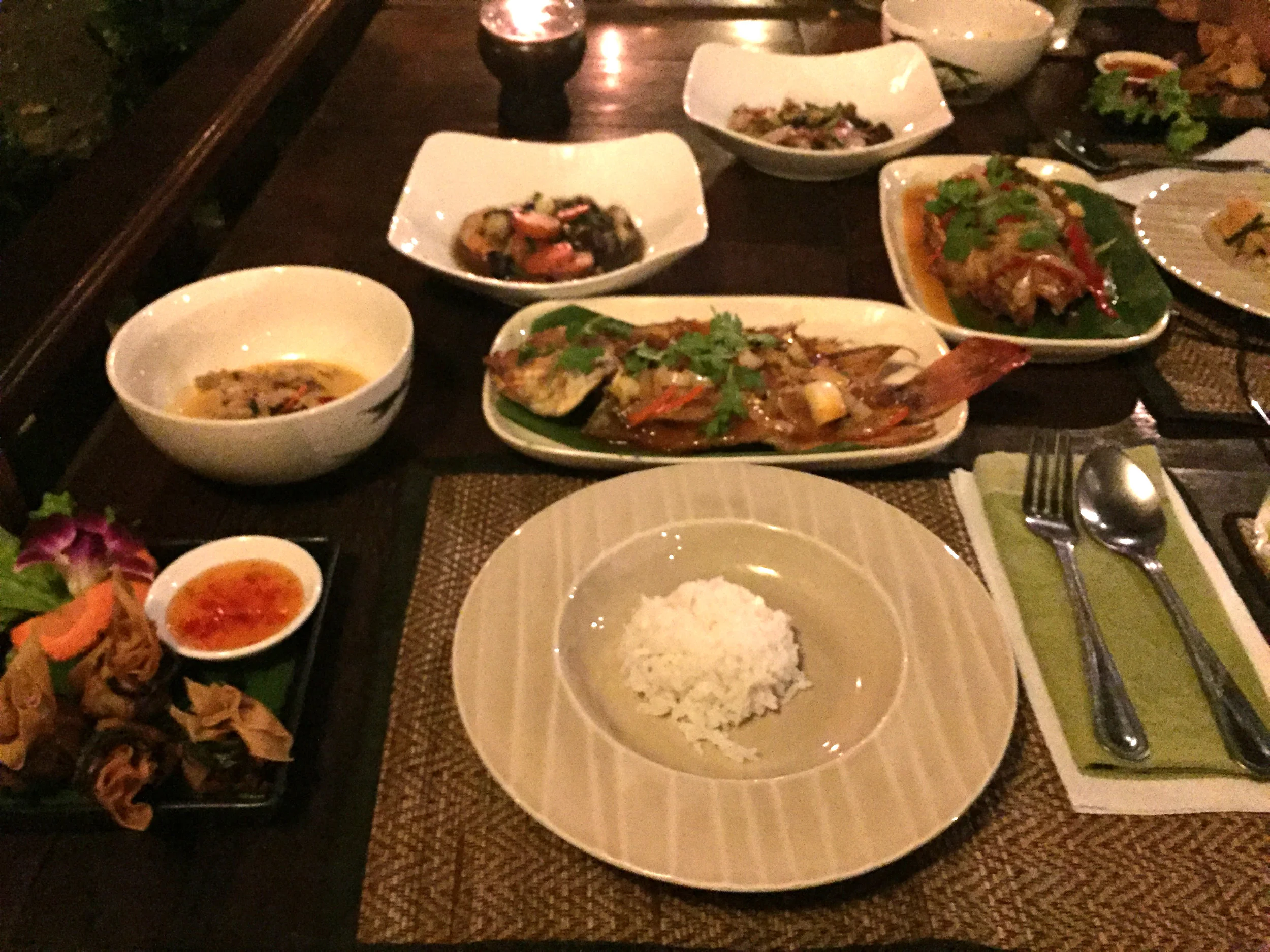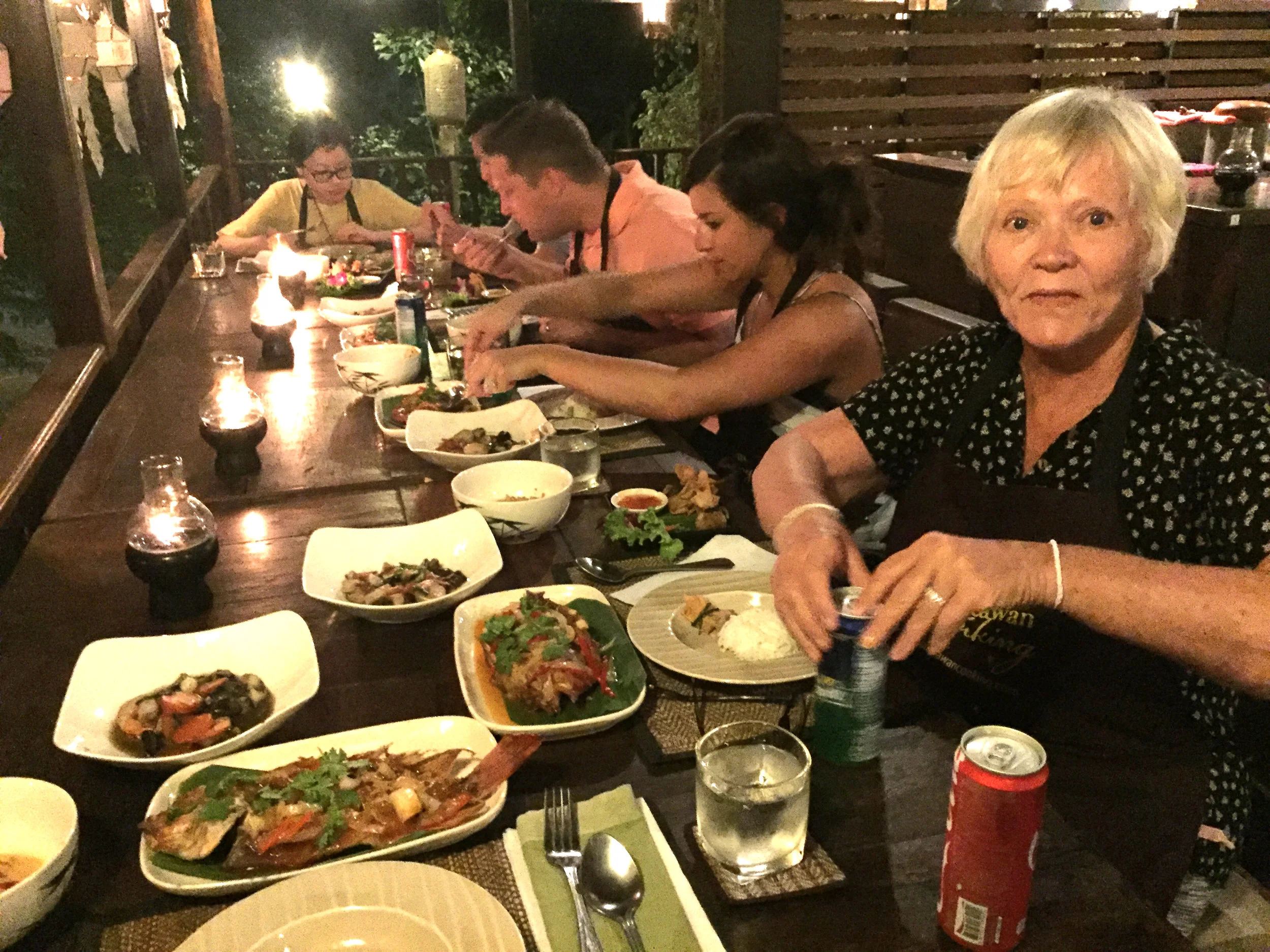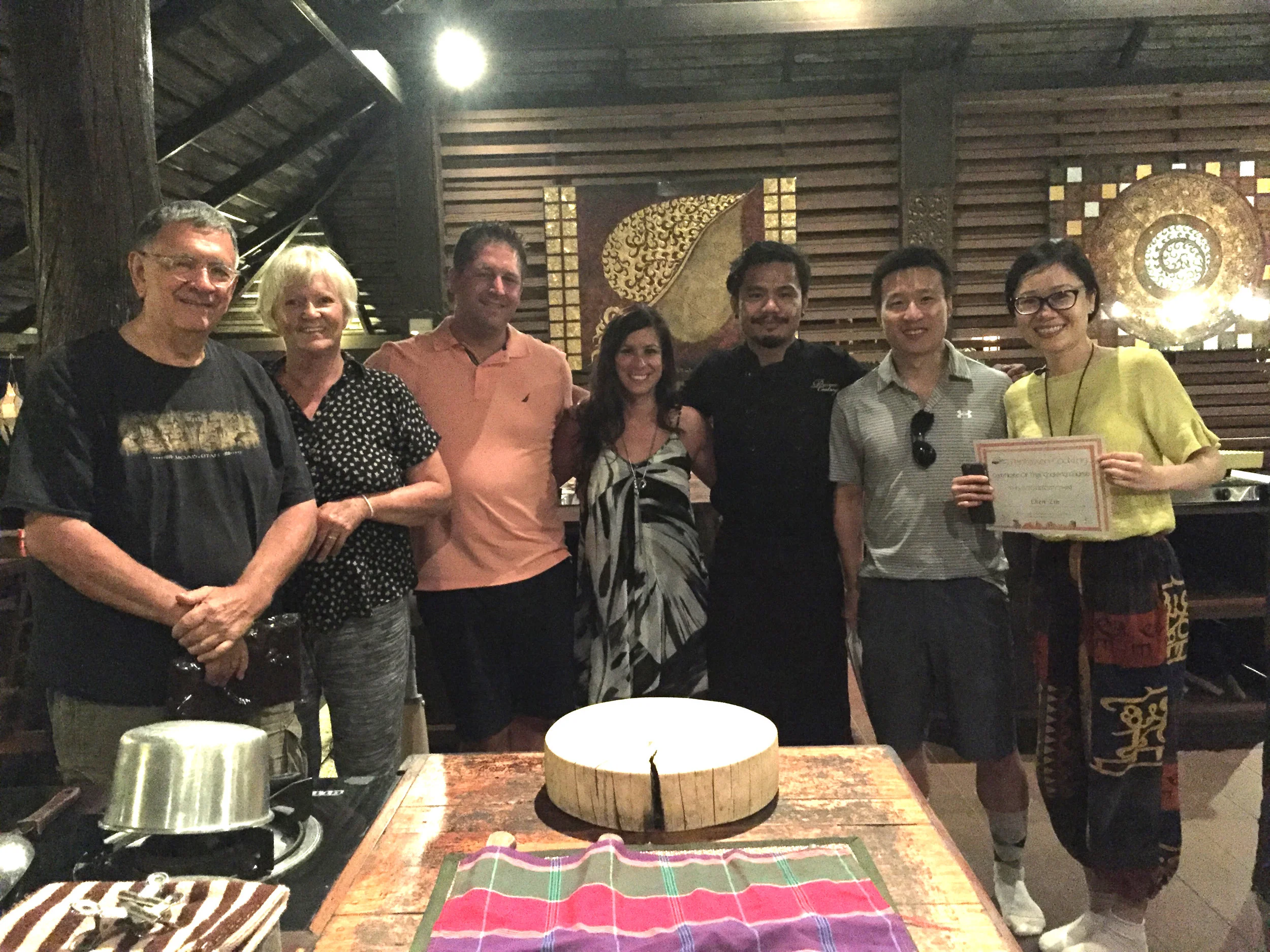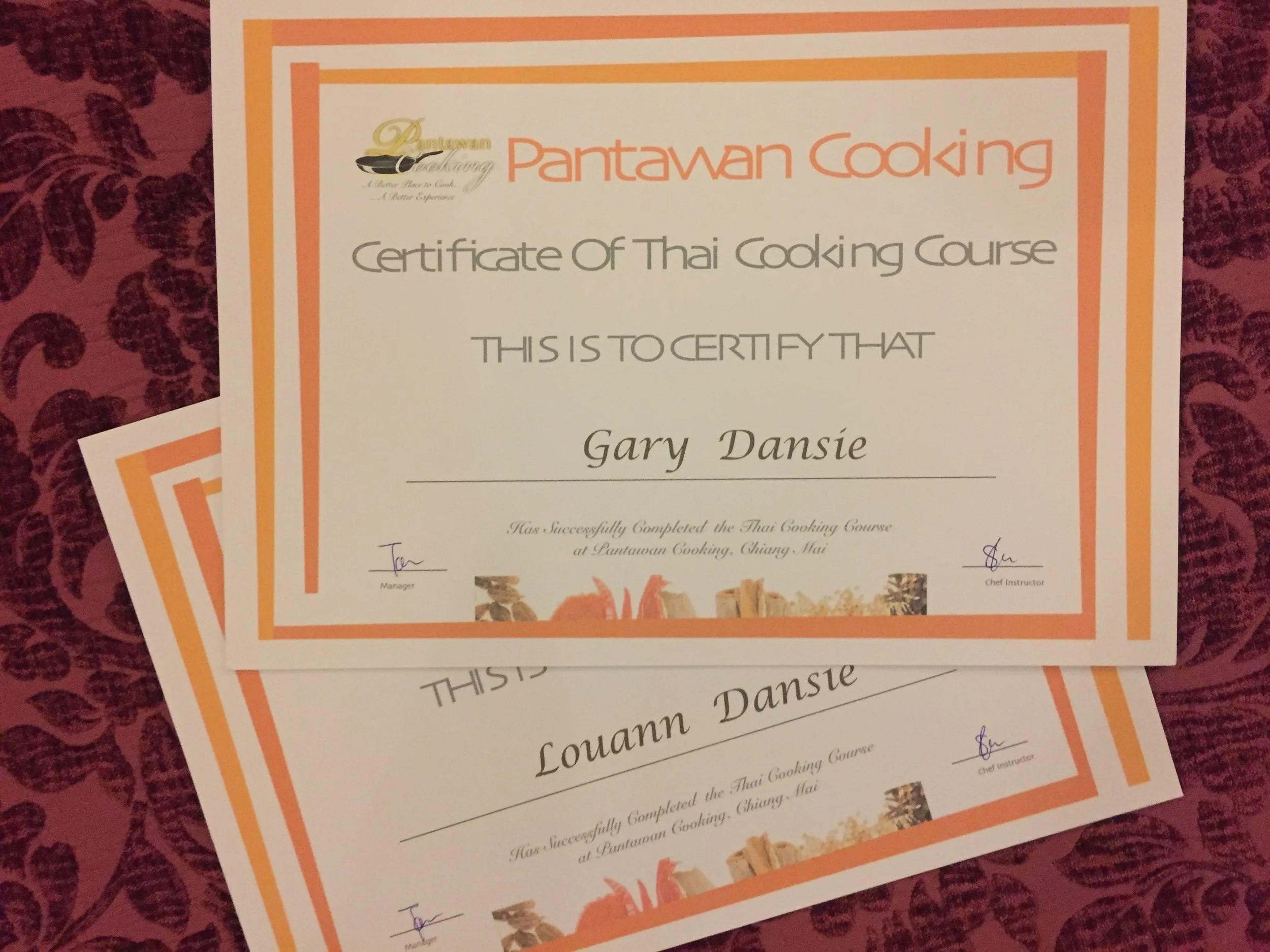Cover photo is the world largest reclining Buddha in Bangkok.
Bangkok
We spent a couple days in Bangkok seeing Buddhist temples and toured the grand palace which is now the ceremonial compound for the King. King 9 died last October and lays in state for 1 year. 10,000 people a day are allowed to walk past the Kings body so the lines are very long and hot. The king is honored in thousands of billboards and signs throughout the country. Here are a few pictures of Buddhist Temples. In one temple we joined the blessing ceremony of a monk where he sprinkles holy water on the group and then you receive a string bracelet to keep you safe.
Temples consist of one or more primary buildings where you pay homage to Buddha and the monks chant every morning and night. Many times the primary temple is surrounded by a gallery wall containing many copies of the Buddha image. Buddha is always and "image" while all other statues are "statues" and must be placed lower than the Buddha.
All temples also have pagodas where important stuff is kept including part of the ashes of important deceased monks. One Pagoda in Cambodia was raided after Thailand gave up the land for Cambodia was said to contain several tons of gold. The pagodas some in varied architectural styles ranging from bell shape to tower shape and corn cob shape coming from Cambodia architecture. They are covered with paint, gold leaf, one was gold sheet or many tiny pieces of tile.
Tradition is that every young man should spend time as a monk to find himself and learn the difference between right and wrong before marriage. Our guide in Bangkok spent one month and decided that was enough for him.
Bangkok Canals
Bangkok has a series of canals built years ago to allow people access to water and for transportation. A long tail boat ride down the river and through some canals was fascinating to see how the people build houses into the canals. We also have lunch at an exclusive restaurant. It was a set menu of variety. In these countries the guides and drivers have to eat in a different room than the guests.
Chiang Mai
We decided to take the overnight train from Bangkok to Chiang Mai. The first class compartment was totally full with our 5 suitcases. They kept coming by and giving us orange juice and breakfast, then came by to collect 700 bats (about $21 USD) for our free snacks. When we arrived in Chiang Mai, our car was #1 at the end of the train and of course the end of the platform. Guides are not allowed to wait inside the station so we dragged 5 suitcases plus our shoulder bags down the platform and into the station. The locals were laughing at us. Once we found our guide, he was allowed to come in and help us to the car.
Our guide was born in the mountains and speaks many local dialects. After the university, he taught school for a couple of years and then started guiding. He often does high adventure "survivor" type treks into the mountains since he knows how to live off the land.
Thailand is a pleasant surprise of fairly modern, clean, good roads and good food.
We took another longtail boat ride in the river, walk through the market and a rickshaw ride to the old town about 1 kilometer away. The rickshaw drivers were huff and puffing by the time we arrived.
These guides have everything down to a science. He calls the driver, boat and rickshaw from his mobile and by the time we step out of the venue, our transportation is waiting. The van driver has cold water and cold towels waiting as well as we jump in. We managed to find the only LDS chapel in Chiang Mai and introduced the Guide to another religion...although he did recognize the missionaries on their bikes.
More Temples in Chiang Mai
We visited a variety of Temples in Chiang Mai. The Buddhist Temples in the northern part of the country are a mixture of Chinese and Hindu and Thai Buddhism so they have many statues of the hindu and chinese gods mixed into the architecture. I guess you just stop at which every place that appeals to you to worship and meditate.
One was built in the 1700s and still stands. Temples consist of one or more buildings with an image of Buddha where people come to meditate and leave offerings. Offerings may consist of food for the Buddhist Monks or money. People come to pay homage to Buddha with incense, candles or flowers or birds and fish. They release the birds to the sky and if the temple is by a river, there is a dock to release the fish.
One of the temples is on top of a 4,000 foot mountain and the biggest tourist stop. They have added several new small buildings with the altar area for people to worship. Our guide bought us candles and flowers so that we could participate and wish for good luck. The first candle is for life now and the second you make a wish for the future. The wind was blowing just enough that you couldn't light the candles. This location has a donation box every 10 feet. The donations are used to build temples, feed the monks and the one on the mountain was also an orphanage.
Another temple was built as 3 tunnels with several shrines inside the tunnels and a pagoda on top.
Cooking School
The highlight in Chiang Mai was the cooking school. We started at the market to discuss the herbs and ingredients and then on to the school. There were 3 couples. Newly weds from Chicago, 2 Anniversary couple from Bejing and Gary/LouAnn on 2nd anniversary too. The bulk of the tourists are from Europe or China. This is the first US folks we have met on this trip.
